- January 2024
- December 2023
- September 2023
- August 2023
- February 2023
- December 2022
- November 2022
- September 2022
- August 2022
- Accessories
- Beginner’s Guide
- Buyers Guide
- Buyers Resource
- Comparisons
- RV Cleaning
- RV Maintenance
- Travel Guides
- Uncategorized
- Entries feed
- Comments feed
- WordPress.org


Here’s How To Paint Plastic RV Sink [Easy Tips Ahead]

Largest US RV Manufacturers & Brands They Own

Which RV Manufacturers Use Lippert Frames?
Travel trailer vs tent trailer: 15 reasons to choose a travel trailer.

RV or Trailer? Understanding the Differences and Benefits
When it comes to planning outdoor adventures, the decision between a travel trailer and a tent can be a difficult one. As an avid camper myself, I struggled with this decision for quite some time. After months of research and many camping trips, I ultimately chose a travel trailer over a tent for a multitude of reasons.
A significant factor in my decision was the desire for increased comfort and space. Travel trailers provide a more substantial living area, which allows for a more enjoyable camping experience. Additionally, travel trailers offer enhanced convenience and quicker setup as compared to tents. It’s essential to consider how well a camping option fits your lifestyle, and for me, a travel trailer made the most sense.
Key Takeaways
- Travel trailers deliver elevated comfort and space, enhancing the camping experience.
- Choosing a travel trailer offers increased convenience and reduced setup time.
- Consider your lifestyle and preferences to select the best camping option for you.
Comfort and Space
Spacious Interior
One of the main reasons I chose a travel trailer over a tent is the spacious interior. Unlike tents, travel trailers offer more headroom, wider sleeping areas, and a separate living space. Some travel trailers also have a small elevated shower , which is a luxury tents don’t provide.
Weather Protection
I also appreciate the weather protection provided by a travel trailer. Tents can be susceptible to leaks and tears, whereas travel trailers, made with materials like Azdel and Luan , provide better insulation and durability. This is especially useful during heavy rain or strong winds, ensuring a dry and comfortable experience inside the trailer.
Privacy Advantages
Finally, privacy is an essential aspect for me, and travel trailers have some significant advantages in this area. Not only do travel trailers have solid walls – something tents lack – but they also offer facilities like a separate bathroom, complete with a water supply, for a more comfortable camping trip. Speaking of a water supply, a key feature of a travel trailer is determining how long your water supply will last .
Another privacy advantage of a travel trailer is avoiding the issue of yellow water sometimes associated with RVs. This issue occurs when there is a high iron content or sediment in the water supply, which can be easily managed and fixed, ensuring clean water throughout the trip.
Convenience and Setup
Ease of Setup
When I first began my search for the perfect camping solution, I knew that one of the most important factors for me was the ease of setup. Travel trailers were an attractive option due to their simple and efficient setups . With a travel trailer, I can easily park, level, and connect utilities without much hassle. In contrast, setting up a tent often involves more labor-intensive tasks such as staking, erecting poles, and securing guy lines.
Another key advantage of choosing a travel trailer over a tent is its superior mobility. Towing a travel trailer with my vehicle allows me to cover greater distances and explore more diverse destinations. Furthermore, when properly equipped with a tow hitch , even electric vehicles like a Tesla can be used for towing travel trailers, offering a greater range of options when it comes to mobility.
Multi-Destination Travel
One of my favorite aspects of owning a travel trailer is the freedom to visit multiple destinations during one trip. The travel trailer makes it relatively easy to pack up and move between locations without the need to disassemble and reassemble a tent. In addition, my travel trailer can be adjusted to fit in various spaces like garages, giving me the flexibility to explore a wide array of locations without worrying about where to store or park my trailer. This flexibility allowed me to create unforgettable multi-destination trips that simply wouldn’t be possible with a tent camping setup.
Cost Considerations

Initial Investment
When I decided between a travel trailer and a tent, one of the first factors I considered was the initial cost. A tent can be quite affordable, ranging from basic models costing around $50 to high-end tents at several hundred dollars. On the other hand, a travel trailer’s price varies significantly, from as low as $11,000 up to luxury models costing $60,000 or more, like an Airstream . Additionally, buying a used RV often comes at a lower price, with the best time of year to buy a used RV being during the off-season.
Maintenance Expenses
Owning a travel trailer involves maintenance expenses that are significantly higher than those for a tent. Various costs such as insurance, yearly maintenance, and possible storage fees should all be taken into account when considering the cost of RV ownership . Conversely, tent maintenance is minimal, with cleaning and the occasional repair being the primary costs.
Travel Trailer Maintenance Expenses:
- Storage fees (if applicable)
- Regular maintenance (brakes, tires, etc.)
- Appliance and system repairs
Tent Maintenance Expenses:
- Repair or replacement of poles, stakes, and fabrics
Resale Value
When considering resale value, a travel trailer tends to depreciate more quickly than a tent, partially due to the higher initial investment. However, well-maintained RVs can still retain a relatively good resale value. In contrast, tents do not have a significant resale market, as they often wear out over time and are relatively inexpensive to replace. Ultimately, I took this factor into account when choosing between a travel trailer and a tent, balancing the long-term investment against my budget and travel preferences.
Lifestyle Fit
Family Needs
When I first began considering a travel trailer over a tent, one of my main concerns was how it would fit with my family’s needs. Travel trailers come in a wide range of sizes, layouts, and capabilities, catering to various family sizes and preferences. Various RV brands, like Jayco and Gulf Stream , offer different benefits and features that were essential in meeting my family’s needs. For instance, travel trailers usually have spacious sleeping arrangements, a bathroom, and a small kitchen, making them the ideal choice for a family like mine.
Remote Work Capability
As a remote worker, having a dedicated workspace is crucial. One major advantage of travel trailers is their potential for accommodating remote work. Just as with the living spaces, you can customize the workspace to your needs. I’ve found that many well-known brands like Winnebago and Lance offer travel trailers with dedicated workspaces, making it easier for me to maintain productivity while enjoying the benefits of this lifestyle.
Community and Networking
Another deciding factor for me was the opportunity to connect with other like-minded individuals on the road. There is a strong sense of community among RV enthusiasts, which is something hard to replicate in tent camping. As I researched various RV manufacturers , I learned that many of them host rallies, events, and online forums for their customers to network, share experiences, and create lasting friendships. By choosing a travel trailer, I could enhance my travel experience and connect with other travelers who share my passion.
In conclusion, opting for a travel trailer over a tent was a decision that significantly impacted my overall lifestyle for the better. Taking into account my family’s needs, remote work capabilities, and the opportunity for a supportive community, a travel trailer has definitely met and even exceeded my expectations.
Amenities and Features
Modern conveniences.
When comparing a travel trailer vs a tent, the modern conveniences of a travel trailer are incomparable. In a trailer, I enjoy amenities such as indoor plumbing, climate control, a kitchen, and a comfortable mattress, all of which aren’t available in a tent. Even small pop-up trailers offer more comfort than tents. Furthermore, I appreciate the option to have an outdoor kitchen in my RV as it enhances my overall camping experience.
Customization Options
Another reason I chose a travel trailer over a tent is the wide range of customization options available. With an RV, I can choose from a variety of well-respected manufacturers such as Airstream and Lance , offering me the opportunity to select the design and features that best suit my needs. Additionally, having a choice of RV manufacturers allows me to ensure the quality of components used, like a Lippert frame , which is crucial for the longevity and durability of my travel trailer.
Entertainment
Lastly, when it comes to entertainment options, a travel trailer provides much more than a tent. Not only does it offer more space for activities, but it also allows me to integrate various electronic devices and entertainment systems into my living space. This is especially handy during rainy days or when I want a break from outdoor activities. In contrast, a tent provides limited space and minimal protection from the elements, restricting my options when it comes to entertainment. Overall, my decision to choose a travel trailer over a tent was heavily influenced by the modern conveniences, customization options, and entertainment possibilities it offers.
Safety and Security
Structural Integrity
One of the main reasons I chose a travel trailer over a tent is the increased structural integrity that a trailer provides. Travel trailers are built with solid walls and roofs, which provide better protection against the elements compared to a tent. In extreme weather conditions, such as heavy rain, high winds, or snow, a travel trailer can withstand the elements much better than a tent. Moreover, proper maintenance of an RV, such as lube maintenance , can help ensure the longevity and safety of the structure.
Protection from Wildlife
While camping, coming into contact with wildlife is always a possibility. A travel trailer offers a greater level of protection against potential dangers from wildlife compared to a tent. For instance, if a curious bear or other large animal were to wander into your campsite, you would be much safer inside a solid structure like a travel trailer than in a fabric tent. In addition to protection from large animals, travel trailers can help minimize exposure to insects, snakes, and other small creatures as well.
Secure Storage
Travel trailers come equipped with secure storage compartments that can be locked, offering a higher level of safety for your belongings compared to storing items in a tent. The ability to lock up valuables can give you peace of mind when leaving your campsite for a hike or a day trip. Furthermore, proper maintenance and attention to common issues, such as fixing an RV storage compartment leak , can help ensure the security and protection of your belongings inside the trailer.
In addition to being structurally more secure, travel trailers can also offer added privacy and comfort. Tinting the windows in a travel trailer, for example, provides not only better insulation but also more privacy , which can be particularly important when camping in crowded areas.
Seasonal Use and Versatility
Four-season camping.
One of the primary reasons I chose a travel trailer over a tent is the four-season camping capability. Travel trailers are designed to withstand various weather conditions, from hot summers to cold winters. With features like insulation, heating systems, and double-pane windows, I am able to camp comfortably throughout the year. Furthermore, this RV Atlas article highlights the added benefits of having a seasonal spot, which allows for a hassle-free camping experience with a sense of community. Tent camping, on the other hand, can be limiting during colder months and requires more preparation when dealing with harsh weather.
Adaptability
Another significant factor that influenced my decision is the adaptability of travel trailers. They offer a wide range of options and configurations, allowing me to customize it according to my needs. This Camper Report article mentions that travel trailers are an excellent option for those who don’t have a heavy truck to tow a traditional trailer, making them more accessible. Furthermore, using a travel trailer makes it easier to switch locations and camping spots compared to tent camping, providing more flexibility in choosing the perfect site for my trips.
I am confident that investing in a travel trailer was the right decision for my camping adventures. Its year-round usability and versatile adaptability have significantly enriched my outdoor experiences and offered a comfortable home-away-from-home during my travels.
Sustainability and Environmental Impact
As someone who spends a considerable amount of time on the road, I’ve been very conscious of my impact on the environment. Two of the main deciding factors for choosing a travel trailer over a tent were energy efficiency and adopting sustainable practices .
Energy Efficiency
Travel trailers generally require less energy than other forms of accommodation. For example, some trailers come equipped with solar panels or the capability to install them, allowing me to harness clean and renewable energy. Additionally, modern trailers are designed with better insulation, making temperature control easier while reducing the need for heating or cooling appliances.
Furthermore, I’ve discovered that using an RV wind generator while driving can be a great way to supplement onboard energy supply and reduce the reliance on nonrenewable energy sources.
Sustainable Practices
One major advantage of living in a travel trailer is that it encourages me to be more conscious of my waste and water usage. For example, having a limited water supply has made me more efficient with water consumption, decreasing the amount I need to refill. I also have a black tank (the wastewater storage container in an RV) which makes me more aware of what I’m putting into the environment.
Maintaining the black tank is essential; it’s important to act quickly if there’s a clog due to dried poop , as problems can escalate and negatively impact the environment. By being proactive in managing waste disposal, I am lessening my environmental footprint.
All in all, owning a travel trailer has made me more environmentally conscious. The focus on energy efficiency and sustainable practices, combined with the ability to minimize my dependence on nonrenewable resources, made choosing a travel trailer a clear decision for me.
Legal and Regulatory Factors
As I was deciding between a travel trailer and a tent trailer, legal and regulatory factors played a significant role in my decision-making process. Some of these factors include zoning laws and parking regulations.
Zoning Laws
One concern for me was the zoning laws in various states and campground areas. Zoning laws can restrict the types of trailers allowed in certain areas, which may impact your choices when selecting a campsite. For example, some states have specific laws regarding travel trailer length limits, which can vary significantly between regions. I found that travel trailers had more options for campsites, as they complied with a broader range of zoning requirements.
Parking Regulations
My decision was also affected by parking regulations related to travel trailers and tent trailers. When planning trips, I wanted to ensure that I could park my trailer in different locations without violating local laws. I discovered that many trailer towing laws outline parameters such as maximum trailer length or width and brake system requirements. Compliance with these regulations is crucial to avoid fines and unnecessary complications during my trips. The travel trailer I selected fits within most parking regulations, allowing me to avoid potential issues and giving me peace of mind during my travels.
Overall, navigating legal and regulatory factors enabled me to choose a travel trailer that met my needs and complied with local laws. By considering zoning laws and parking regulations, I was able to make a confident and informed decision.

After thorough research and consideration, I chose a travel trailer over a tent for the following 15 factors. The main advantages that swayed me towards a travel trailer are the comfort, amenities, and convenience, especially when compared to tent camping.
A significant deciding factor was the availability of comfortable beds in a travel trailer, unlike the floor sleeping style in a tent. This not only improved my sleep quality but also reduced the stress on my body during extended trips 1 . In terms of amenities, travel trailers offer a more home-like experience with a compact kitchen, bathroom, and climate control system. This makes it easier to cook meals, maintain hygiene, and stay comfortable in varying weather conditions 2 .
Travel trailers also provide more safety and privacy compared to tents, as they are built with sturdy materials and have lockable doors. This aspect was important to me, as it allowed for greater peace of mind while camping in unfamiliar locations.
In addition, travel trailers are more versatile when it comes to different camping experiences. While tents can limit you to specific terrain and weather conditions, travel trailers offer more flexibility, allowing me to explore various camping destinations without hassle 3 .
The benefits don’t stop there. Travel trailers also allow for:
- More storage space
- Easier packing and unpacking
- Better protection from the elements
- A designated place for electronic devices and charging
- Easier transportation of camping gear
Of course, there are some drawbacks to choosing a travel trailer over a tent, such as increased costs and potential maintenance requirements. However, for my personal preferences and camping goals, the advantages of a travel trailer far outweigh these downsides.
Ultimately, the decision between a travel trailer and a tent comes down to individual preferences, budget, and camping goals. For me, the comfort, convenience, and versatility of a travel trailer made it the best choice for my outdoor adventures.

Exploring the Existence of Airstream 5th Wheels

Airstream Basecamp Review: Is It the Perfect Couple’s Getaway Camper?

Fifth Wheel Etymology: The History Behind the Name
Rv classification: are camper trailers considered rvs.

Is an RV Considered a Motorhome? No, Here’s Why

Travel Trailer or 5th Wheel: What’s Best for Your Road Trips?

Tent vs. RV Camping
Last Updated on February 19, 2024 by Grant
After roughly seven years of tent camping (four major road trips and several other shorter ones), we finally upgraded to a camper. We always figured we would get a travel trailer (which you pull) or a motor home (which you drive) eventually, but for a variety of reasons we ended up making the purchase a bit sooner than we expected.
Our major motivators for making the upgrade were 1) the older we get the harder it gets to not just sleep on an air mattress, but get up from one in the morning and 2) we didn’t like leaving the cat alone for three to five weeks… With a camper, we can take her with us. There were a few other factors, such as finding the right model (a Passport Elite 23RB) for the right price, and the time came to take the plunge into the RV world!
(Disclaimer: When we link to places where you can buy our stuff or places we stayed, we are using special codes that earn us commissions on the sales at no additional cost to you. Please see our Review Policy for more information.)
Tent Camping
There are MANY kinds of tents and many kinds of tent campers. We chose to tent camp when traveling because we both enjoy being outside and the rustic nature of camping. We also enjoy taking rather long road trips and camping is cheaper than getting a hotel every night.
Our Small Tent
We actually had two tents, one “big” and one small. The small tent, which we still have, is the REI Half Dome 2 Plus . This tent is very quick and easy to put up and take down (five to 10 minutes). It is barely big enough for a full-size air mattress (not big enough for a queen) but has a door on each side so that neither person has to crawl over the other to get in or out. It is almost all mesh, so the ventilation is great, and the rain fly works well. We used this tent mainly if we were only staying one night or there were high winds (the low profile helps to keep it from waving in the wind).
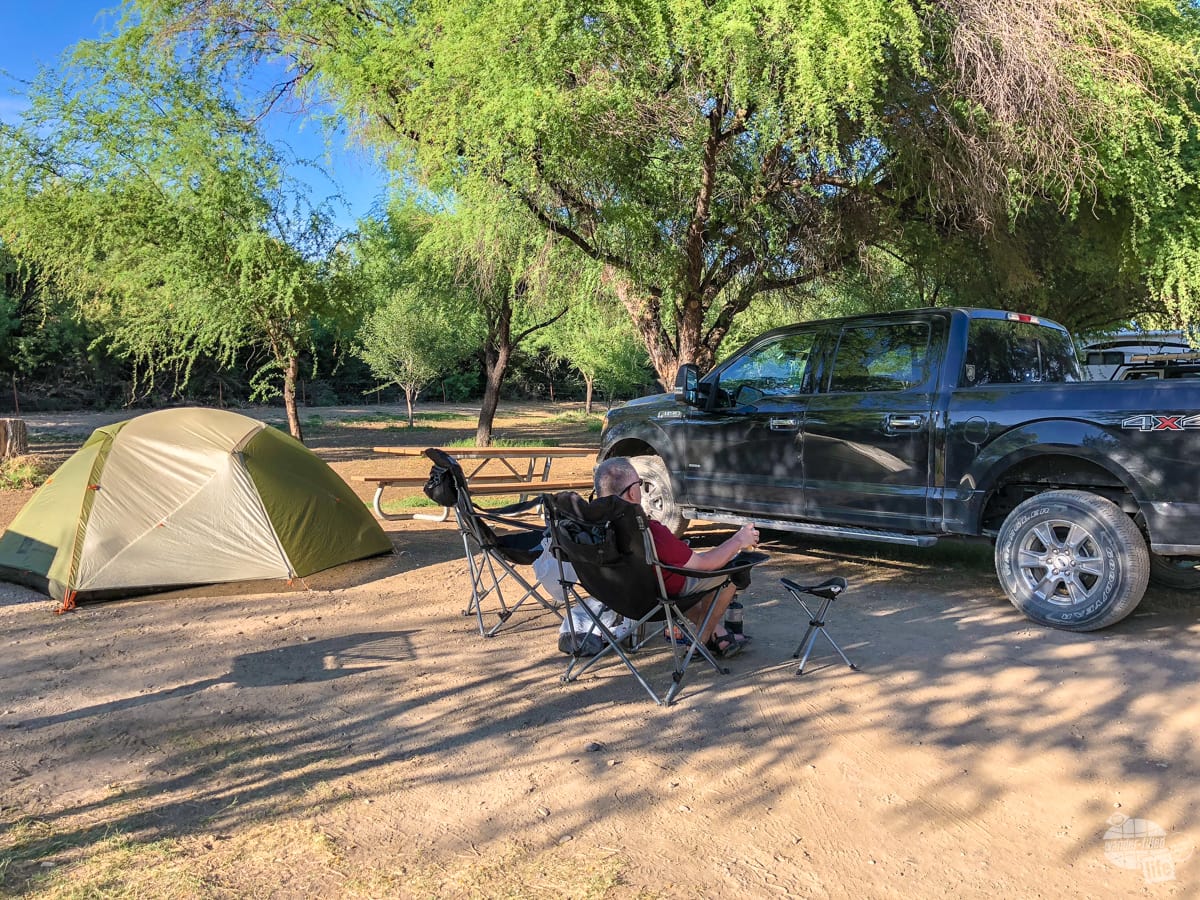
We did learn the hard way with this tent that high winds and sand don’t mix. When staying in Dinosaur National Monument, we set up the tent, including the rain fly, then fixed dinner, sat out and read and went to a ranger program. When we crawled into bed, there was a mound of sand all over the sleeping bag. Take our advice: If there is sand, make sure the rain fly is buckled down very tight and low to the ground!
Our “Big” Tent
Our bigger tent was still pretty small, in the fact that it wasn’t a multi-room or anything like that. It was the REI Hobitat 4 tent. They have since discontinued that line, but it is similar to the Grand Hut 4.
We liked this tent because it did allow us to have extra room on three sides of a queen size mattress and we could pretty much stand up inside (much easier in the middle of the tent, but not if there is an air mattress there). It also had a vestibule “attachment” that allowed a covered entryway and a place to put our camp chairs if it was raining.
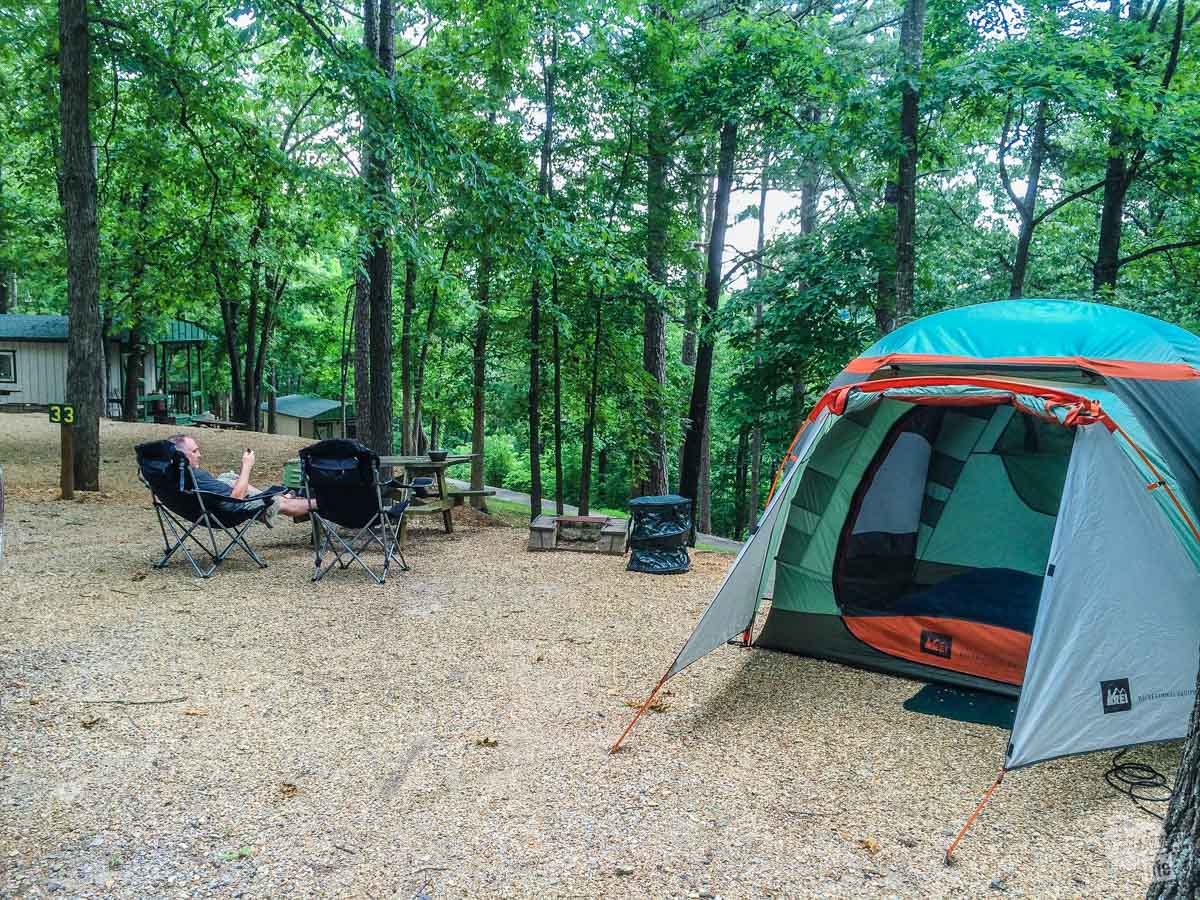
We enjoyed both tents and usually traveled with both. An outdoor extension cord to charge phones, tablets, lanterns, etc. if we were at a campsite with electricity made it easy to stay connected.
We had bins of clothes, food, cooking supplies and lots of other camping gear in the truck. The system we had worked really well. We would stay in hotels maybe once or twice a week, especially on days we were driving long distances, which was a nice break from the air mattress and public showers.
Pros and Cons of Tents
Our biggest complaint about tent camping was the difficulty we had in finding a place to wash dishes. You can’t use “normal” dish soap if you are washing dishes using the spigot at the campsite and camp soap really is mostly worthless for getting grease off a pan. Most campgrounds don’t allow washing dishes in the bathrooms, and very few of them had a dishwashing sink/station. We ended up eating out at times when we wanted to cook simply because we didn’t have a good way of cleaning up.
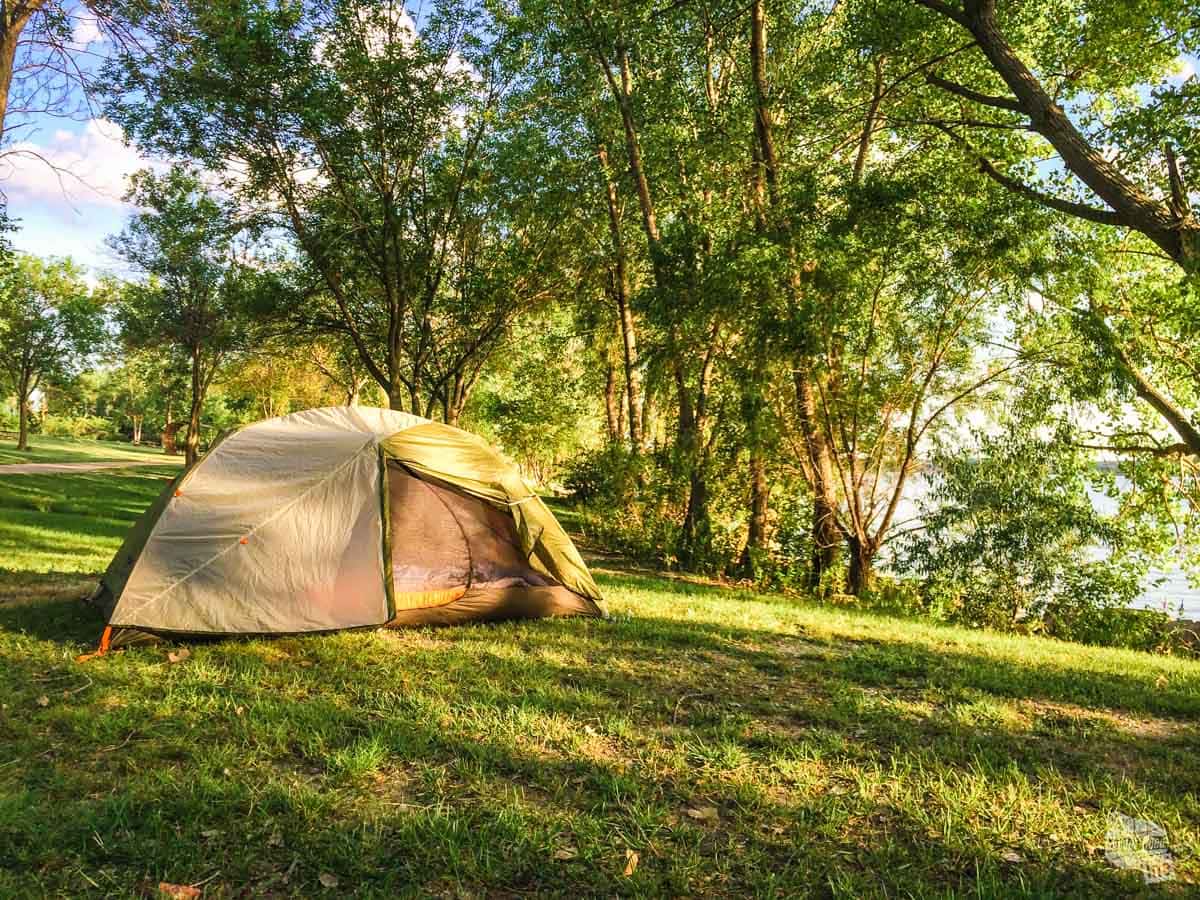
Another major con of tent camping, especially out West, is it can be hard to find shaded campsites. This can be a major issue in the summer in places like Wall, SD and the whole state of Kansas, both of which we struggled to find shade to keep us somewhat cool.
That being said, tent camping is a great way to start out. If you don’t want hook-ups (water, electricity), you can generally get a campsite fairly cheap (no more than $20-$30). You can easily alternate camping with staying in a hotel to break things up.
With tent camping, you can easily stop somewhere during the day, then head to your campsite and get set-up. Those are some things that you just can’t do when pulling a trailer.
As much as we loved tent camping, we quickly embraced the RV life with the camper!
The first thing about RVs: They are not cheap! There are all kinds of different sizes and prices when buying a camper. I’m sure it is possible to get something for just a few hundred or a thousand dollars if all you want is a place to sleep. Or if you truly want a house on wheels you could spend several hundred thousand or more than a million if you want!
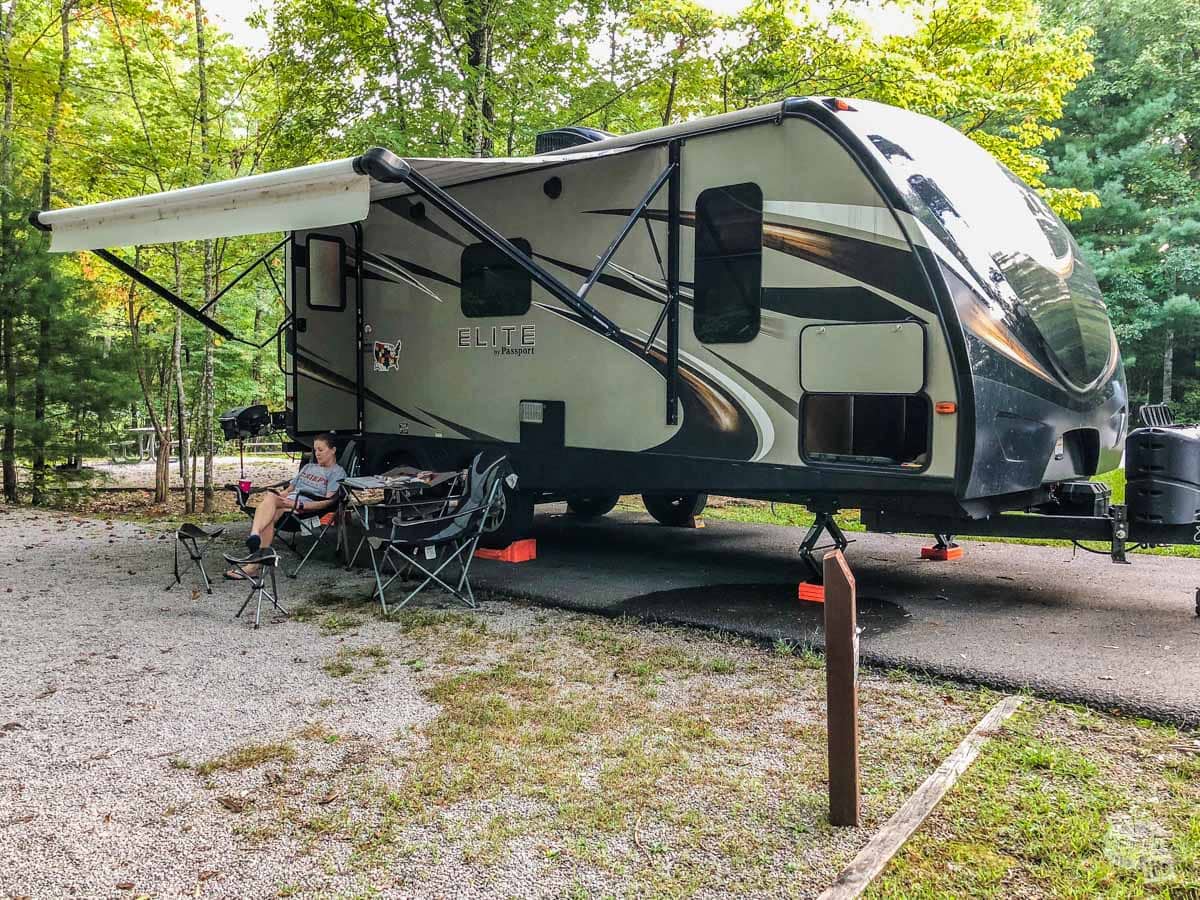
While we did choose to get a full-fledged camper, rather than a pop-up or camper van, etc., we still stayed fairly small and cheap in the grand scheme of things. Regardless of what size camper/RV you get, one thing to know is that you have to buy MUCH more than just the camper itself to actually be able to use it ( see our articles on Outfitting Your RV ). These expenses will add up, so be ready.
Campsites will also be more expensive, especially if you want sewer and cable hookups. Personally, we can generally do without cable, but if we are staying anywhere for more than two nights, we want a sewer connection. Your gas expenses will be higher as well. These are all things that you have to factor in, in addition to the cost of the camper, before making sure you are ready to take the plunge.
Be sure to check out our cost comparison between road trip styles here.
Driving with a Camper
Driving is also more stressful and you generally can’t drive as fast. Stopping for lunch or gas is more difficult because there isn’t always a place to park your vehicle. We have learned to love the truck stops such as Pilot, Love’s and TA, but even those can be difficult if you aren’t getting diesel. You definitely will not be pulling through the nearest Chick-Fil-A or McDonald’s pulling a camper or driving an RV!
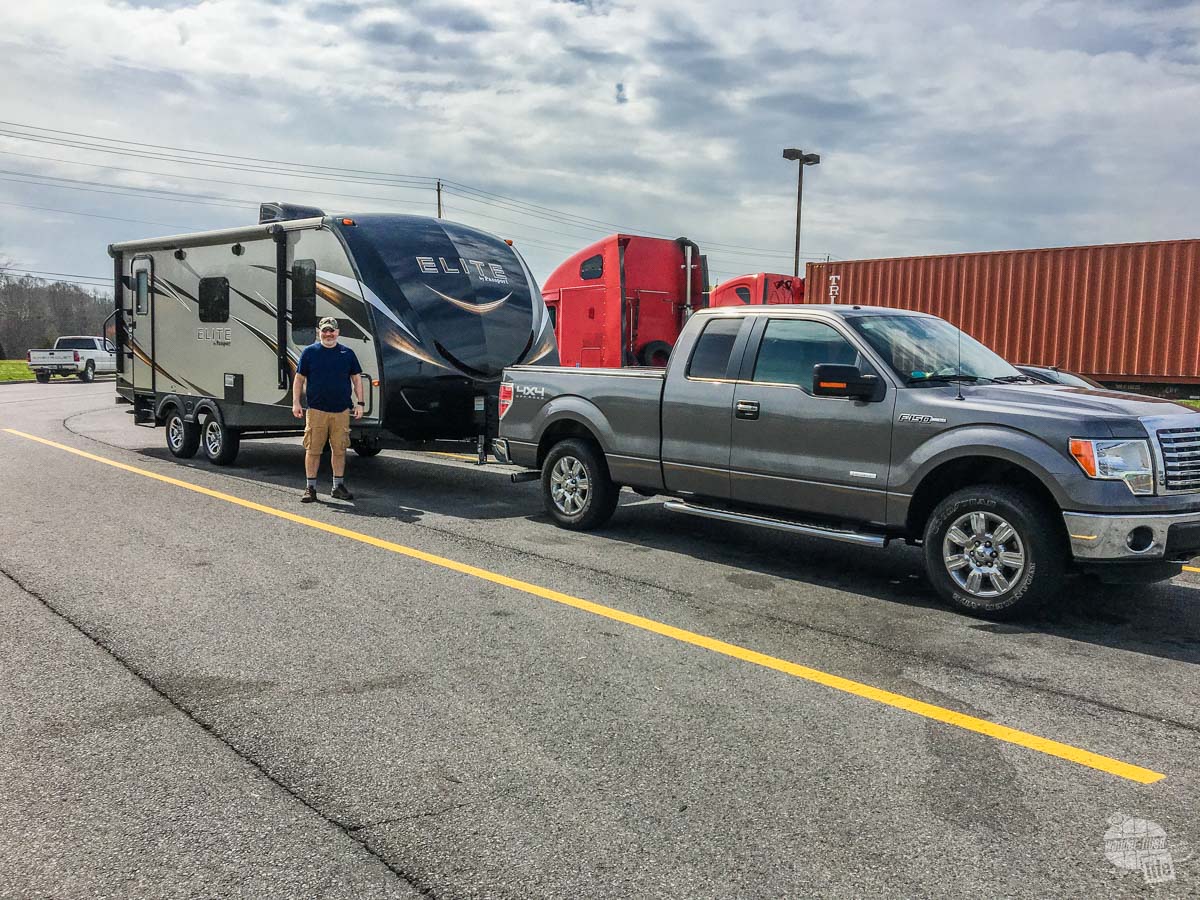
With the camper, we also had to rethink our itinerary. Sites, that with a tent would have been a one to two-hour “layover” on the way suddenly became a one or two night stays. Again, you can’t just park the camper anywhere. And with the cat with us, we certainly couldn’t leave her in the truck or camper without AC.
Advantages of a Camper
That being said, there are many advantages of a camper that hooked us immediately! First, you have your own shade. If you are in a big, open campground with very few trees you can extend the awning or even sit inside in the air conditioning (assuming you have an electric hookup).
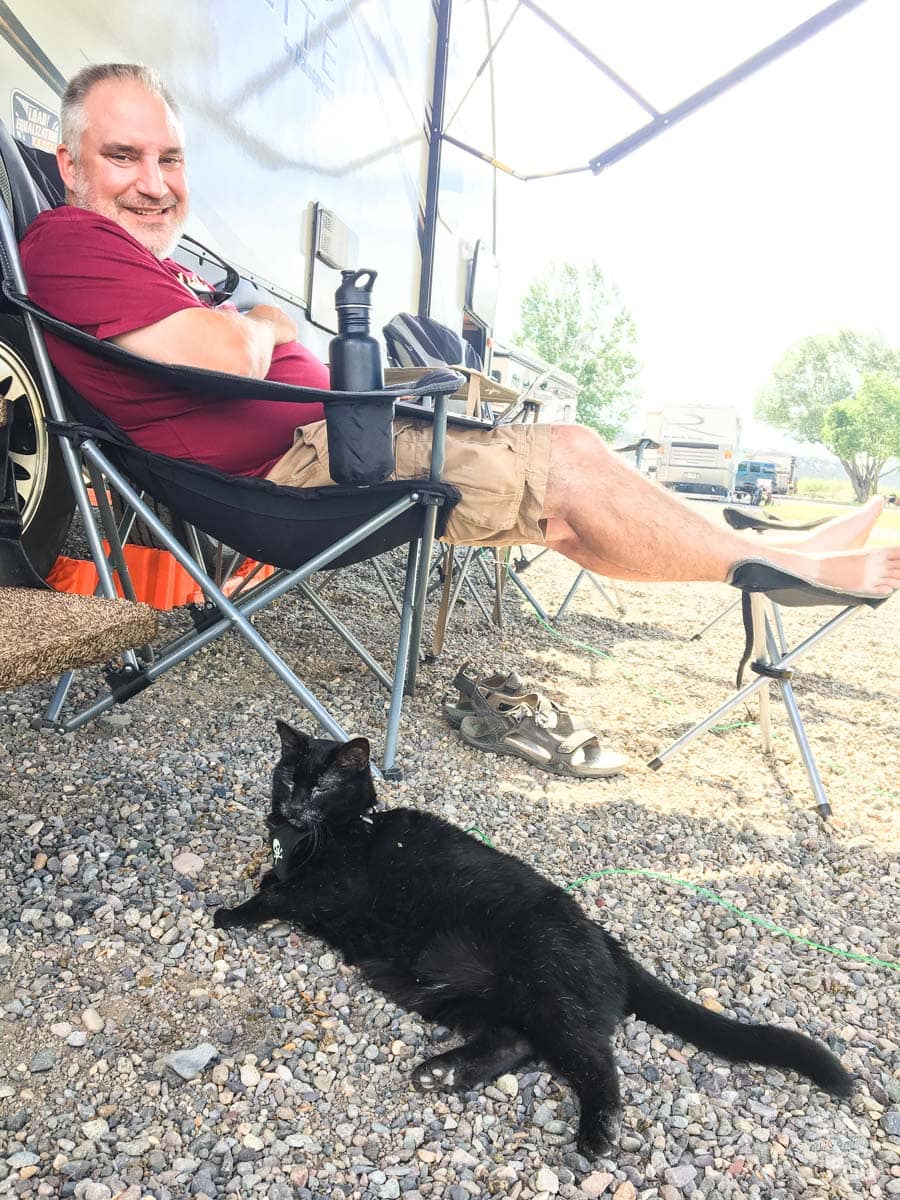
You also have a bathroom, which means if the showers are yucky or you just gotta go in the middle of the night, you’re in a much better position. Granted, you also have to clean the bathroom, but you’d have to do that at home anyway and it’s probably a much smaller bathroom, which means less to clean!
Not having to pack and unpack boxes and bins every time you stop just to get clothes or a plate is great! We definitely took a wider range of clothes with us than we ever did when tent camping.
We also loved having a refrigerator and cabinets, which allowed us a lot more freedom at the grocery store and removed the need to buy ice every day. I’m not sure we actually saved money at the grocery store, but we did get to enjoy leftovers a few times, which we rarely did when traveling with a cooler.
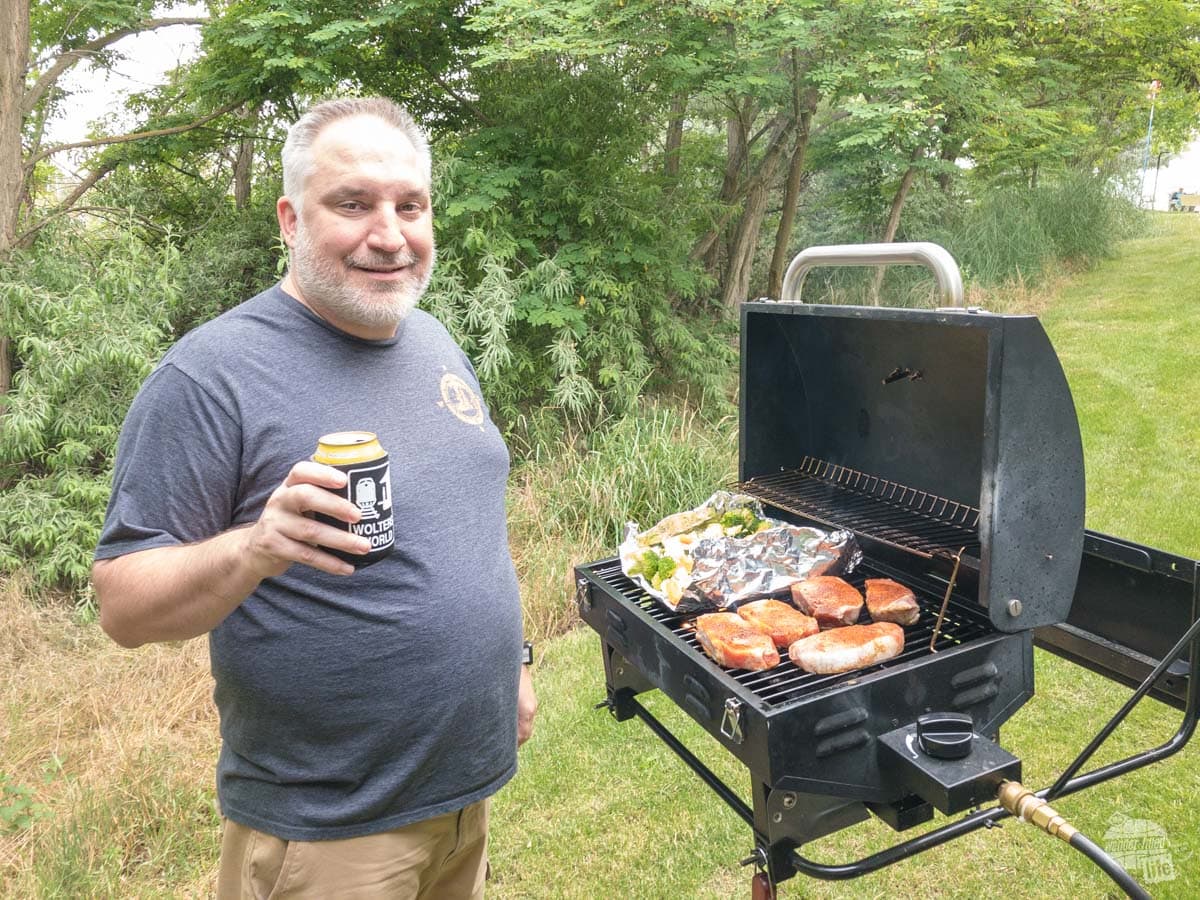
Lastly, if it is raining, not only can we sit under the awning or inside to stay dry, but we can cook! In the camper, we do have a stove, oven and microwave. Granted, we haven’t actually used anything other than the microwave, because we prefer to cook on the grill, but eventually, we will need them and will be very glad that we have them!
Setup and Take Down
The setup and takedown of the camper is certainly longer than with a tent. We figured that over time we would get better and faster at the routine, and we did get better at setting up. Packing up camp is still a process and took us about an hour every time. Dumping the sewer tanks and making sure the slide is free of pine needles, acorns, etc. can be time-consuming. With the tent we could generally be out within about 20-30 minutes.
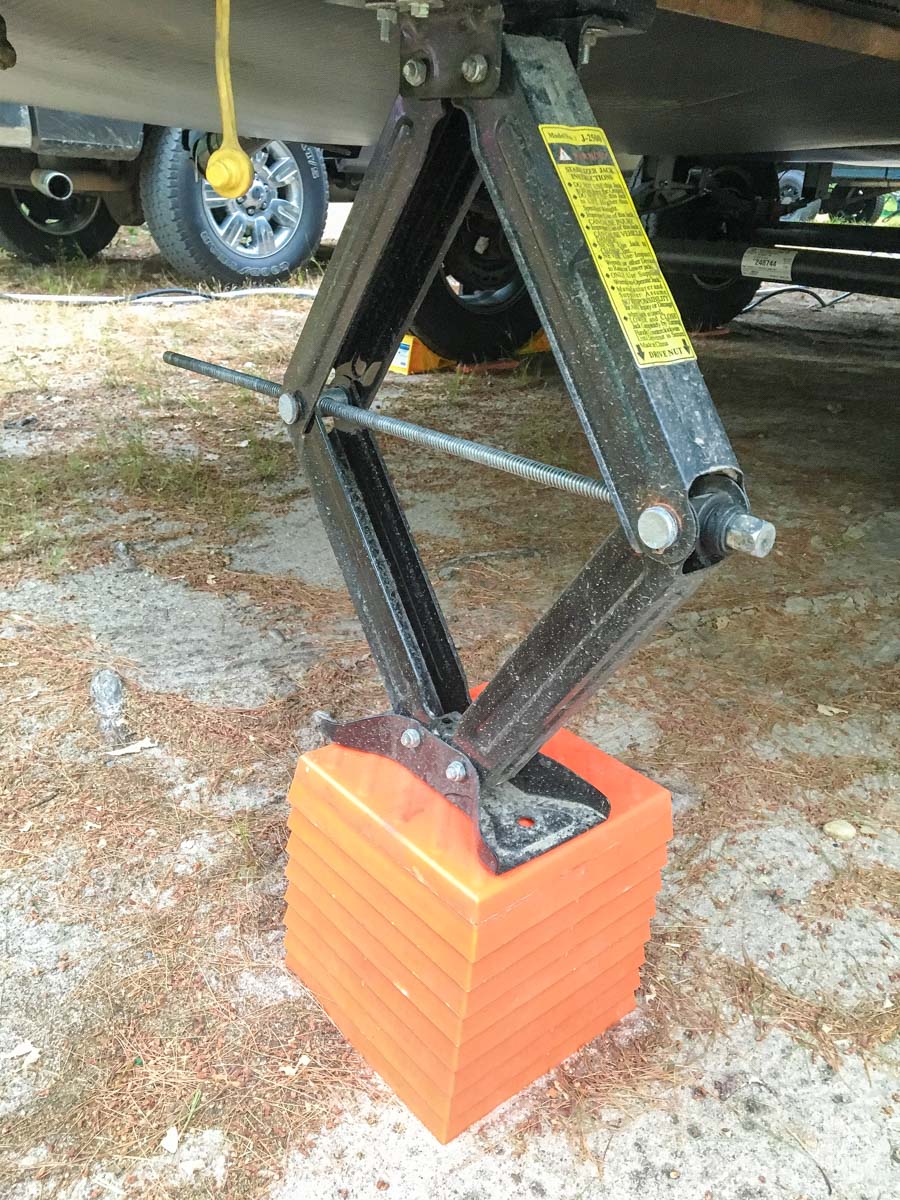
What About a Camper Van?
In September 2019, we actually rented a camper van for a trip to Rocky Mountain National Park and the Custer State Park Buffalo Roundup. It was a great experience.
Read more about our experiences in Rocky Mountain National Park and the Custer State Park Buffalo Roundup.
First and foremost, if we had never camped in an RV and switched to a camper van, we would have been blown away by how easy it was. Packing up the campsite was a breeze. If we had gotten any chairs out, we packed them up. We made the bed and started driving. Easy.
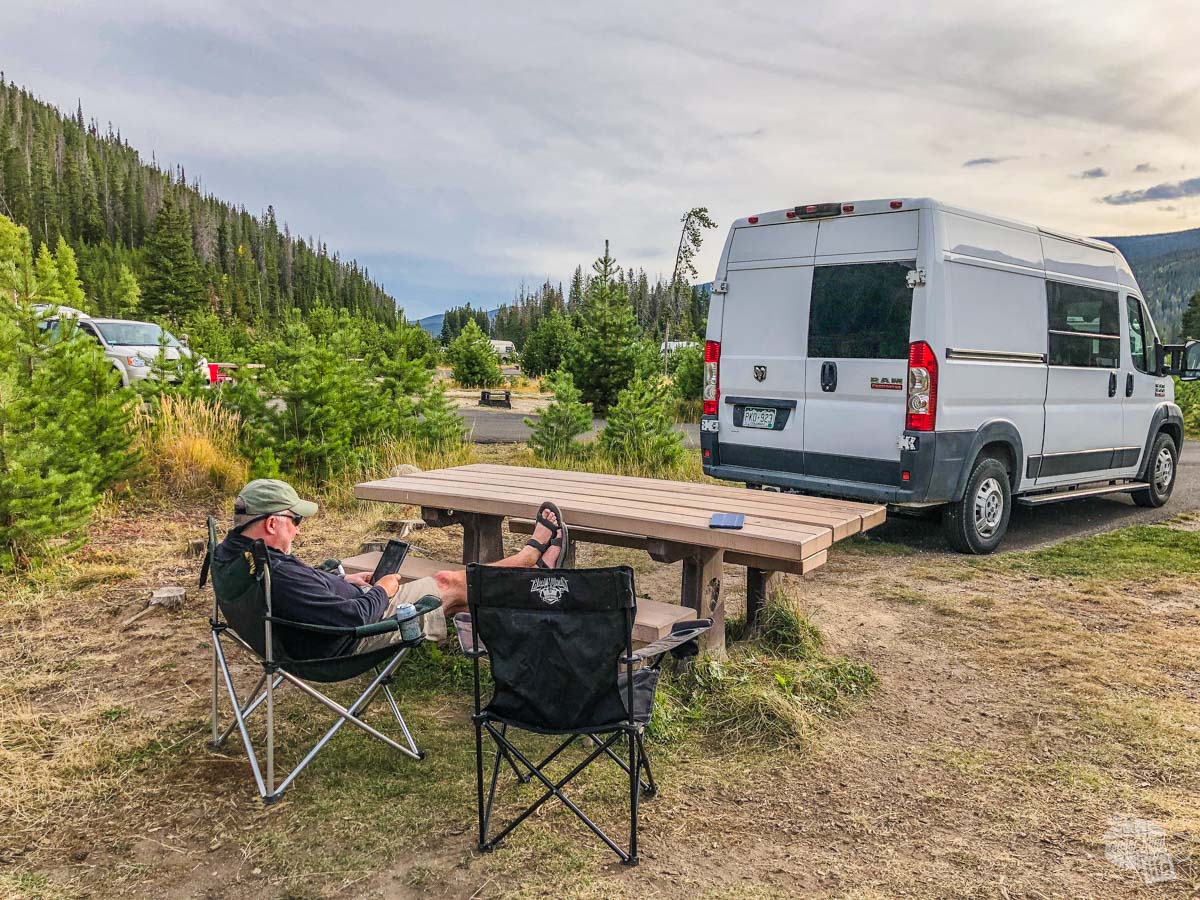
That said, the RV has a LOT more room and is a lot more comfortable. Having a full-size queen bed is a lot comfier than the bed in the camper van. There was not a ton of room in the van, so that made things like getting dressed in the morning and cooking a bit difficult with two people.
Still, the agility and ease made the camper van a great experience and something I would certainly consider if I were upgrading from a tent. The biggest downside is maintaining the van and its engine. I am not a fan of having a second engine to maintain.
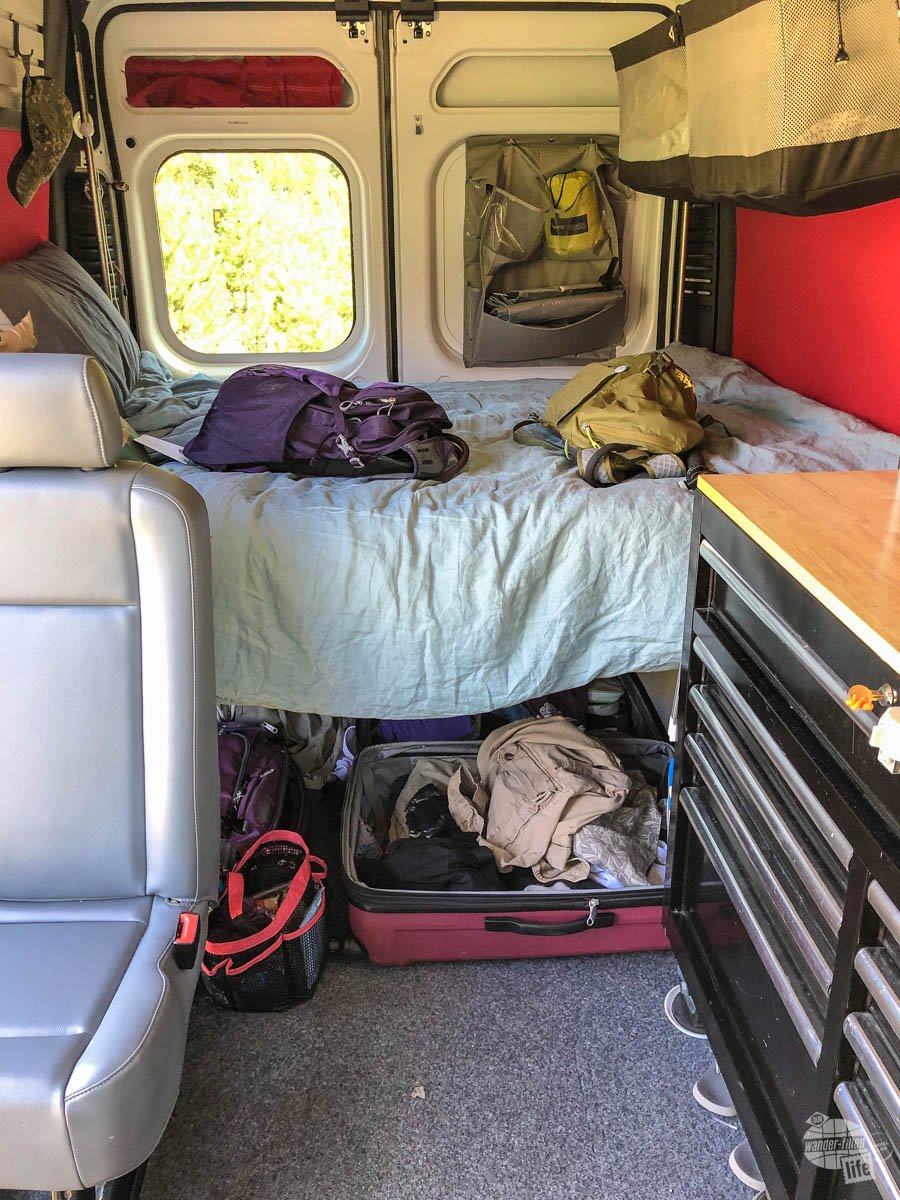
Read more about renting a camper van from Outdoorsy here.

Final Thoughts on Tent vs. RV Camping
There are definite advantages and disadvantages to both tent and RV camping. If you are considering an upgrade to a camper, do your research on the financial aspects. Make sure you can afford it. There certainly isn’t any point in buying a camper and then not having the money to enjoy it! If you are new to camping and looking for a place to start, tent camping is a good introduction. Some folks will adapt to it better than others… It certainly helps if you can handle the idea of maybe not being able to take a shower one day!
Whatever your travel style, our hope is that you will get out and explore the world. Get out and discover all the amazing things out there that you never knew you would enjoy.
Travel Resources
What do you use to find a flight.
We use Skyscanner to find deals on flights. Skyscanner has a great interface and compares tons of airlines for the best pricing and routing. That said, it does not always have every airline and some airlines will have better deals on their website. Still, Skyscanner is a great place to start. Click here to search for a flight.
What do you use to find a hotel?
We typically stay at Hilton properties , so we use the Hilton website . You can find good Hilton Honors discounts or AAA discounts for a hotel there. We make great use of our free night certificates from our Hilton Honors American Express. Click here to book a Hilton property.
If there are no Hilton properties available, we use TripAdvisor to read reviews and book the hotel. We find we can get the best price that way. Click here to search for a hotel.
We recently partnered with Stay22 to add interactive maps to each of our destination posts. This will allow you to see a plethora of hotels and vacation rentals all in one responsive map of the area.
What if I need more space than I can get at a hotel?
We use Vrbo for the times when we have rented a cabin for a weekend getaway, like this cabin in Townsend, TN , or needed to rent a house for a large family vacation. We had a great experience with them in terms of refunding deposits when COVID hit and will continue to use them. Click here to search for a vacation rental.
Who do you use for rental cars?
As a general rule, we book with Hertz for rental cars. We have had nothing but good experiences with them. Plus, we really like unlimited mileage and not worrying about crossing state lines. We have even rented from Hertz overseas in both Slovenia and Croatia . Click here to book a rental car.
How about booking a cruise?
We have found some amazing prices for booking a cruise through Cruise Direct . We have saved a lot of money on our cruises compared to what we found elsewhere, making a last-minute Bahamas cruise even cheaper. Click here to book a cruise.
What if I want to rent an RV?
We highly recommend Outdoorsy for RV rentals. We rented a camper van for a week to visit Rocky Mountain National Park for the elk rut and Custer State Park for the Buffalo Round-Up and had a blast. The program was easy to use and we really enjoyed the freedom of having a camper van for that trip. Click here to rent an RV.
What do you use for booking tours?
We don’t often book tours. Typically, we like to do stuff on our own. That said, there are some experiences you can’t have any other way. So, when we do want to book a tour, we always check Viator first. Click here to book a tour.
Do you use anything to get discounts on the road?
We make extensive use of both Good Sam and AAA on the road. Good Sam is normally regarded as a discount card for RVers at campgrounds and Camping World but anyone can use the 5 cents off a gallon at the pump at both Pilot and Flying J. Click here to get a Good Sam membership. We have had AAA as long as we have been married and it has more than paid for itself in discounts at hotels, aside from the peace of mind of having roadside assistance. Add in paper maps and the ability to get an international driver’s license and it is more than worth it for any traveler out there. Click here to get a AAA membership.
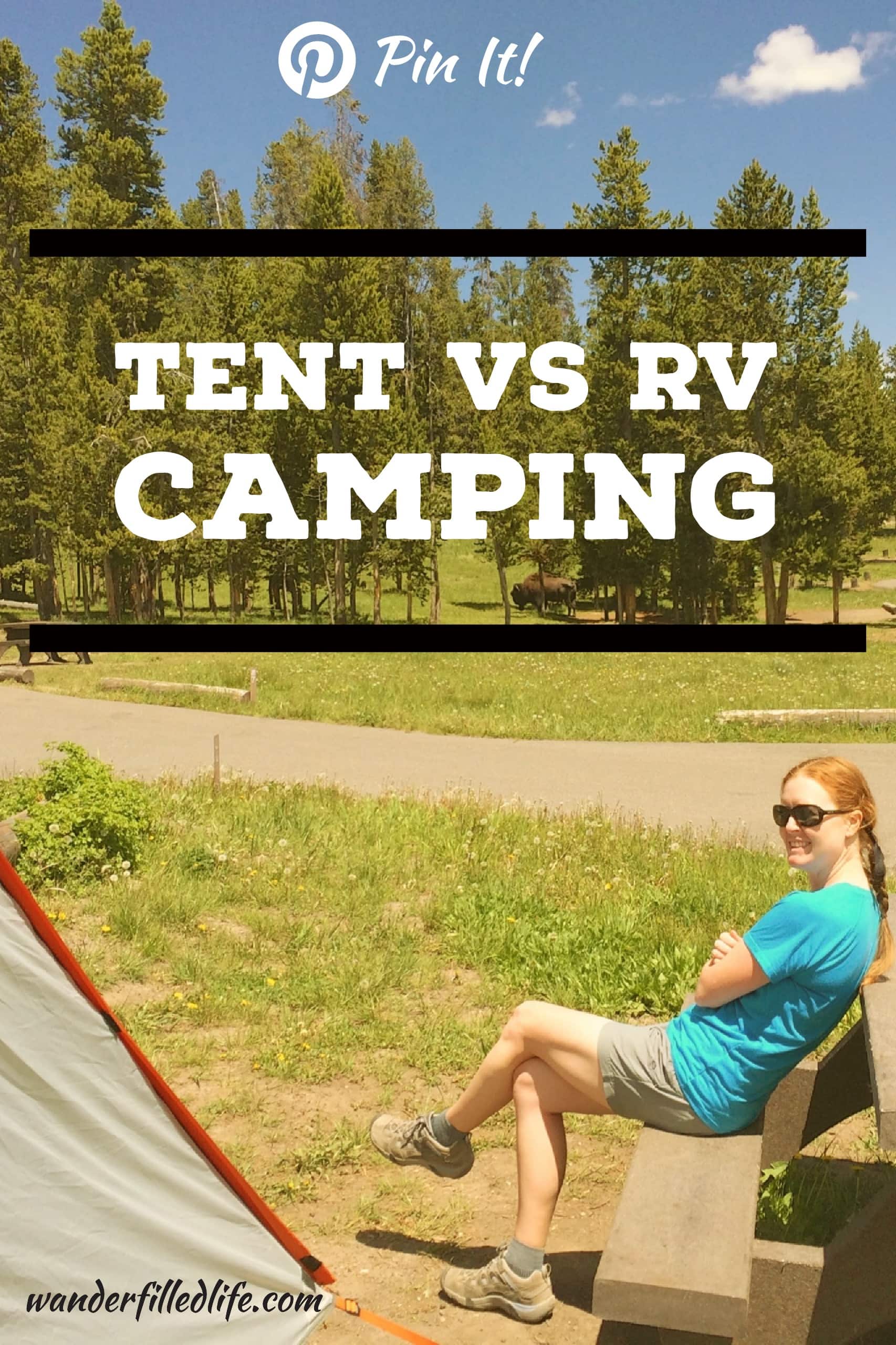
Leave a Comment Cancel reply
I accept the Privacy Policy
Tent Camping Vs Trailer Camping: A Definitive Comparision
My family and I love camping. It is something I have done since I was a kid, and is now our family’s primary form of vacation (although we love travel of all sorts). We have tried just about every style of camping; tent, travel trailer, camper van, and tent cabin. While some were short-term trials (van, tent cabins), I’ve spent more nights in a tent than I can count, and I have owned two separate trailers.
Each has its individual pros and cons. In this article, I’m going to weigh the pros and cons of tent camping vs trailer camping. I’ll save the camper van, RV camping, and tent cabin comparisons for another time.
If you are reading this article I’m guessing you fit into one of two groups. Either you are new to camping and are trying to decide whether to try a tent first or jump straight to a trailer. Or you are already a tent camper and are considering moving to a trailer.
I have written this article with those two audiences in mind, though anyone interested in camping will find the information useful.
Is Tent Camping Better?
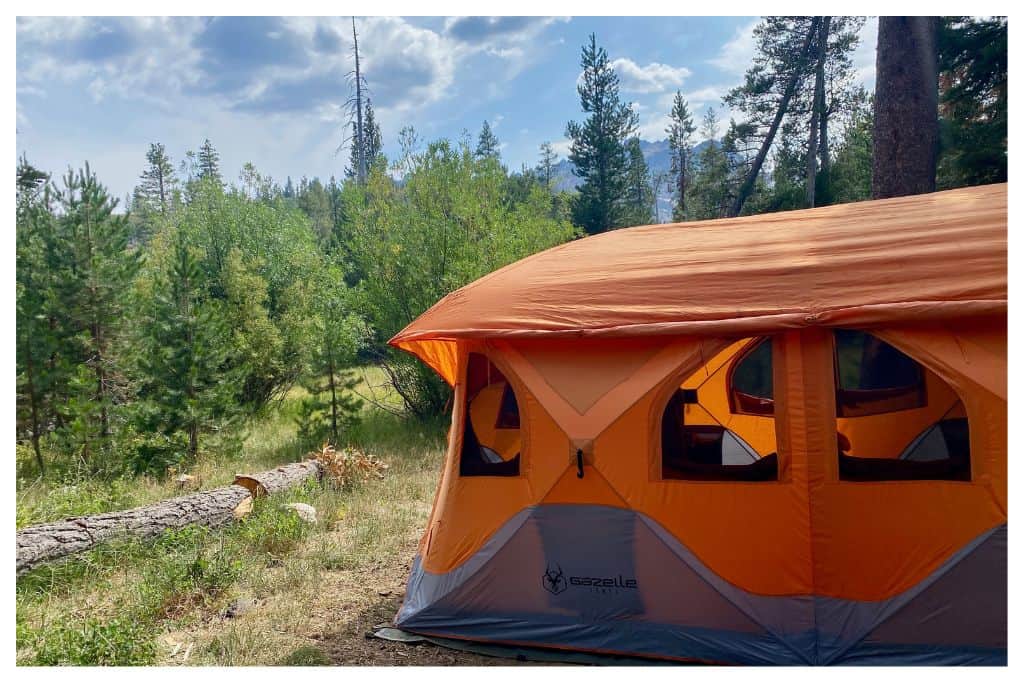
If you ask a purist, the answer will be yes, tent camping is the only true form of camping. Well, spoiler alert, I’m not a purist. In my opinion, whether tent camping is better than trailer camping depends on a variety of factors, including, your budget, the locations you visit, the camping experience you are looking for, the size of your family, and more.
Tent camping certainly has its advantages, which I will dive into later, but whether or not it is better than trailer camping, is strictly in the eyes of the beholder. The bottom line is that everyone has their own camping style, what’s right for one, may not be for another.
Is Camping In A Trailer Really Camping?
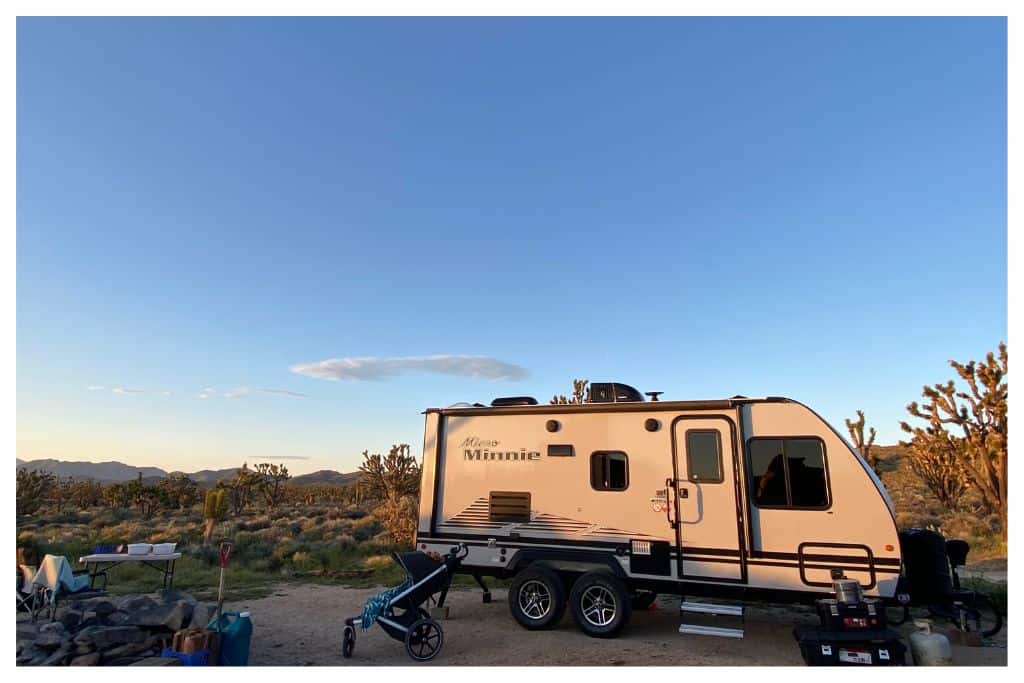
Okay, so some of you may be asking, ‘is trailer camping really even camping?’. Considering the size, and opulence, of some of the trailers that are available nowadays, honestly it’s a valid question. You can get trailers today that are 40 feet long, have multiple rooms, big screen TVs, fireplaces, and yes, even a bathtub.
Whether you want to call staying in a trailer like this a camping trip or not, one thing is for certain. It is in no way comparable to tent camping. These types of trailers are, for the most part, meant for, and limited to designated RV parks.
In this article, I’m really talking about smaller trailers, trailers that are capable of going to many, if not most, of the same places that you would want to go tent camping. Namely, places like national parks, state parks, and other similar locations.
So my answer is if you are going to the same places, and getting outdoors, then yes, trailer camping is definitely still camping!
Tent Camping Vs Trailer Camping: A Breakdown
I broke my comparison of tents and trailers into five categories; Cost, Ease of Set Up, Comfort, Dealing with Weather, and Cooking. I took an in-depth look at each of these and then addressed some additional advantages and drawbacks of both tents and trailers.
Keep in mind that there are many different kinds of both tents and travel trailers. There are large tents, small tents, lightweight tents for backpacking, tents with multiple rooms, and even hot tents (with wood-fired stoves). When it comes to trailers there are large hard-sided trailers, pop-up campers, tent trailers, teardrop trailers, and all sorts of additional options.
I’m going to speak about the general characteristics of tents vs trailers but of course, the specifics of any particular setup will vary.
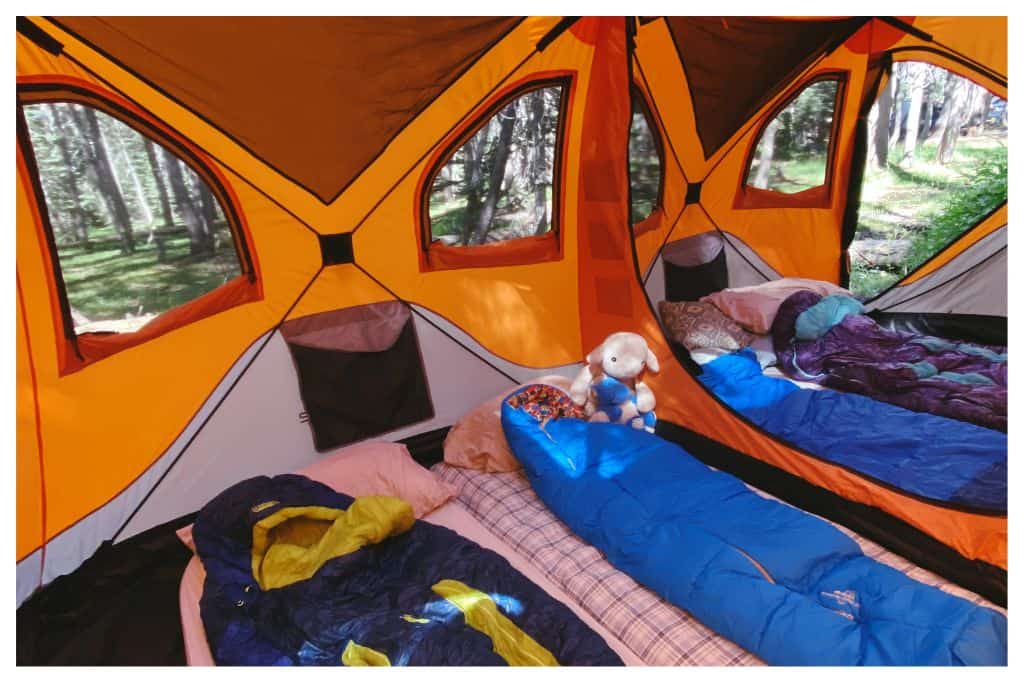
When it comes to cost, there is one clear winner, tent camping. A solid tent camping setup is going to be a fraction of the cost of even a cheaply priced trailer. To be clear, when considering the cost of a tent camping set up I have included the following items;
- Sleeping Bags
- Air Mattress (Or other sleeping platforms)
Additional items such as camp chairs, pots and pans, etc…will be needed for trailer camping as well, so the cost evens out. Now there is no doubt you could geek out and drop a ton of dough on the newest, fanciest, top-of-the-line camping gear.
However, even a very quality setup, for a family of four, can be obtained for under $2,000. If you’re shopping on a budget you could easily keep it under $1,000.
In comparison, even the cheapest new trailer is going to cost you over $10,000, probably closer to $20,000. You can save some money going with a used trailer, however, you will want to really do your research if you go that route.
Trailers, all trailers, require a ton of maintenance, if you buy a used one that has been neglected you could be walking into a nightmare. That’s not to say it can’t be done, but if you choose to go the used route, make sure you take your time, inspect it closely, and ask lots of questions about maintenance.
If you are interested in a trailer but not yet ready to pull the trigger RV rentals are a great way to test the waters. There are a variety of sites, such as Outdoorsy or RV Share, that offer peer-to-peer trailer and RV rentals. Many of which will even deliver the trailer to your campsite if you are uncomfortable towing.
The Cost Winner: Tent Camping
Ease of Setting Up Camp
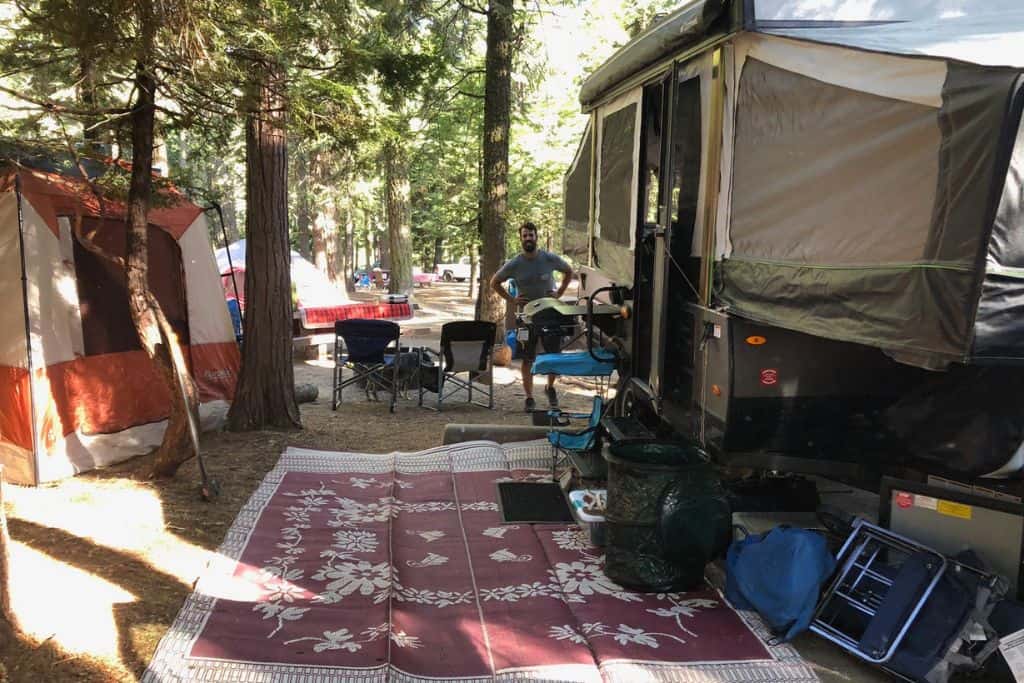
This category is actually a little closer than you might think. At first glance, it might seem that there is far less involved in getting your trailer set up in camp than the process of setting up a tent. However, there is often more involved with getting your trailer dialed in than you might think.
Parking your trailer isn’t always the easiest task. If you are planning to camp in RV parks that are designed for trailers and large RV’s then it is a pretty easy process to get your trailer parked and leveled. However, if you are planning on camping in places like state and national parks it can be a little more challenging.
Many of the state, national parks, and similar campgrounds weren’t built with trailers in mind. The roads are narrow, often lined with trees, and the parking spaces aren’t always designed to accommodate trailers, especially large ones. All that is to say that it can be a bit of a process to get your trailer parked on your site.
Once your trailer is parked, the process of getting it leveled and stabilized isn’t particularly complicated but does take a few extra minutes. As you get practice backing up your trailer it does become easier and quicker to get it parked, regardless of the challenges of your site.
On the flip side, when tent camping you get to pull right in and park. Then starts the process of setting up your tent, setting up your beds, moving your luggage into your tent, and unpacking the rest of your gear from your car.
Additionally, when tent camping you can pull into your site, and stretch your legs for a bit before diving into setting up. With trailers, you need to get it parked as soon as you arrive. This may seem trivial if you haven’t gone through the process before, but it is nice to have a few minutes to relax, especially after a long drive.
One advantage trailers have is that you can keep most of your camping gear stored away and you only have to pull it out when it is needed during your trip.
All that being said, I would still give trailers the slight edge when it comes to setting up camp. Once you are efficient at parking your trailer there is just less overall to do than if you have to set up your tent and bedding.
The Ease Of Setting Up Camp Winner: Trailer Camping
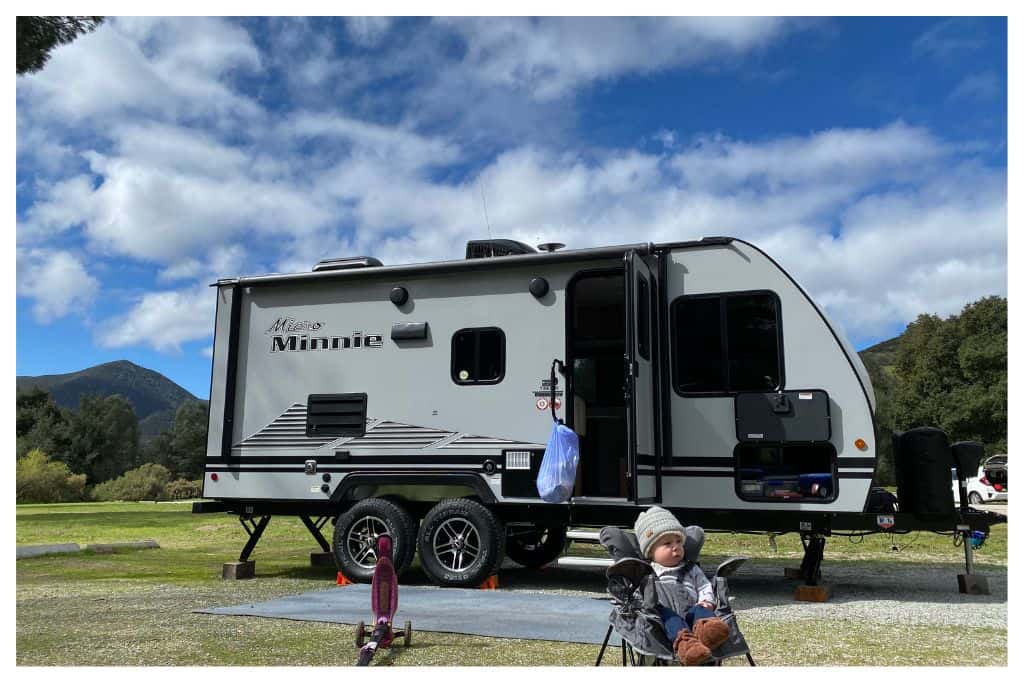
The comfort category is clearly won by trailers. Increasing comfort is the very reason most people buy trailers after all, so they better deliver!
There are a variety of advantages. First, trailers typically have a serious advantage when it comes to beds. Many trailers come with a queen-size actual mattress. Additionally, the beds are elevated, so easier to get in and out of, and you’re not going to have the problem of lumpy uneven ground disturbing your rest.
Second, pretty much all trailers have a heater so that you can keep it nice and toasty inside when camping in cold conditions. Most trailers also come with an air conditioner, however, these can only be used when hooked up to external electricity like a campsite outlet or a generator.
Third, most all trailers have an internal bathroom and water heater, which means, hot showers! I have to admit that prior to owning my first trailer I was one of those people that thought hot showers while camping were overkill. However, once I had that experience of taking a hot shower after a day of hiking and climbing into bed clean I understood exactly what trailer owners were raving about!
The internal bathroom on trailers is another great luxury. Some campgrounds have nicer bathrooms than others, but my wife and daughter especially loved the internal bathroom when the only other option was a smelly pit toilet. An unexpected bonus of having the internal bathroom was using the bathroom while on drives. No more dirty gas station bathrooms!
In defense of tents, camping equipment is getting more and more comfortable. Tents are more spacious and easier to set up than ever before. Sleeping pads are far superior to what they were even 10 years ago. And with the right sleeping bag, you can stay warm in any condition. You can even get portable water heaters and shower tents to allow you to have a hot shower!
Comfort Winner: Trailer Camping
Dealing with Weather
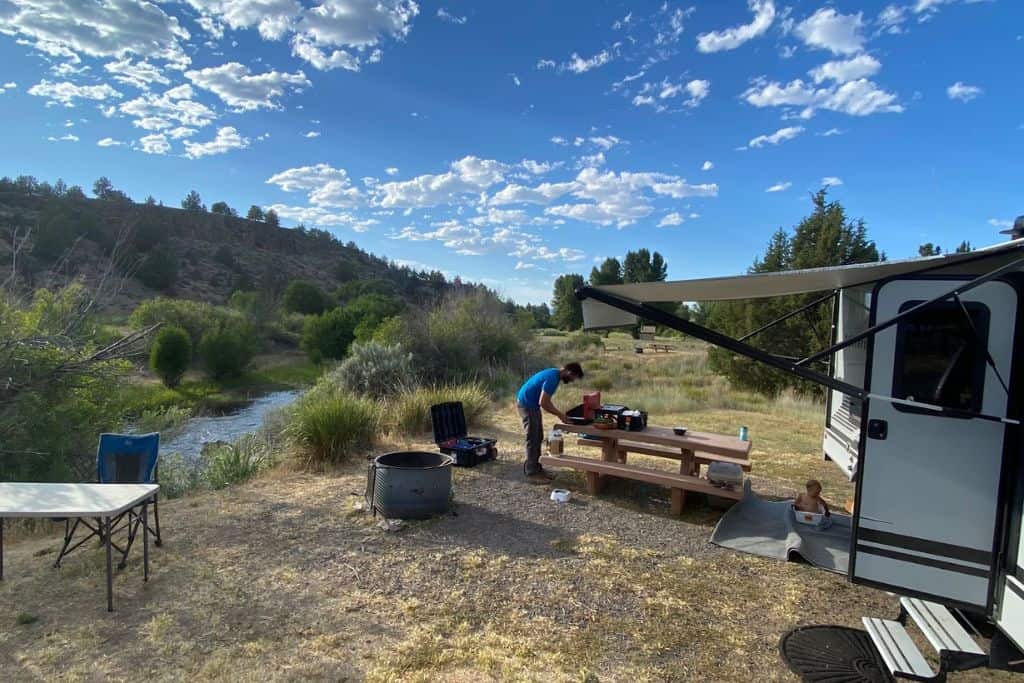
While we all hope for perfectly warm and sunny days while camping the undeniable truth is that if you camp enough inclement weather is inevitable. So, if you are going to go camping, you need to at least be prepared for the possibility of bad weather. In this regard, trailers are once again going to take the edge.
Weather conditions can heavily influence your camping trip. Trailers offer climate control, they will be dry when it rains, warm when it’s cold, can be made cool in the heat, and will protect you from the wind. Additionally, most trailers will come with an easily deployable awning which will give you dry space to peel off wet clothes before walking inside.
Most tents these days will do a pretty solid job of keeping you dry inside, when utilizing the rain fly, in all but the most serious of rain storms. If you have a small tent, you likely won’t have a place to take off wet clothes before climbing into your main sleeping area. However, if you go with a large tent, you can find options that have a changing room, or entry area, that is covered and waterproof but separated from the main sleeping area.
When it comes to the cold a good sleeping bag will keep you warm at night no matter how cold it is outside, and you can even get tent heaters. We have one that is designed for indoor use and would heat the tent beyond the point of comfort if we turned it to max.
There are some options for cooling tents but none of them are particularly practical. And when it comes to serious wind tents are not the optimal choice. With light winds tents are fine, but after a certain point tents will either collapse, rip, or just become so loud in a heavy wind that it’s impossible to sleep.
Dealing With Bad Weather Winner: Trailer Camping
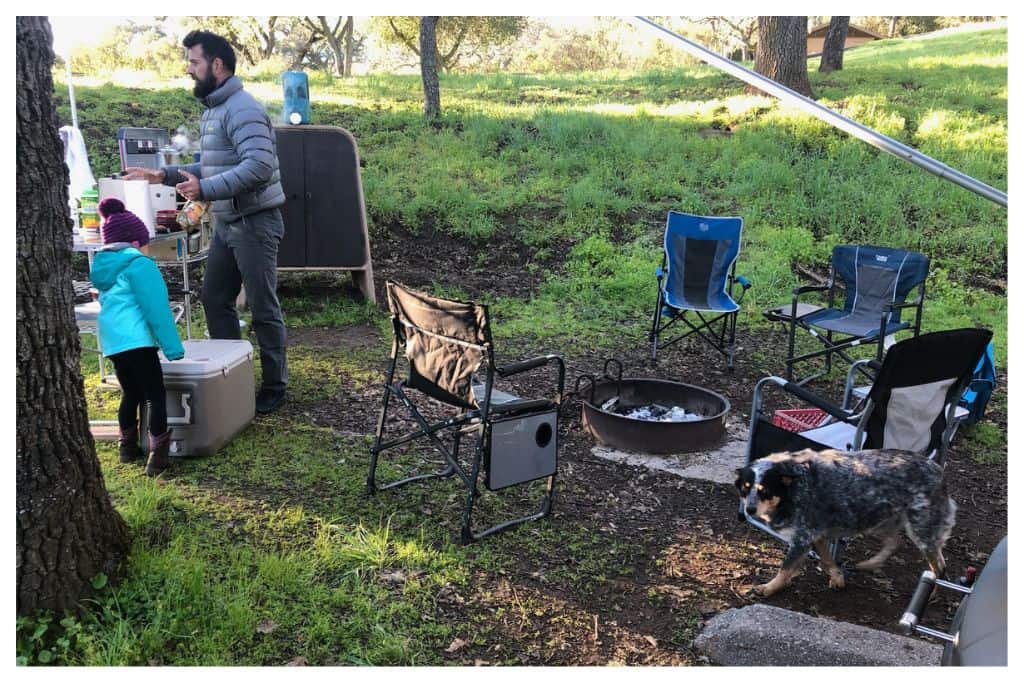
Considering that when camping you will be preparing all of your meals yourself the time you spend cooking and preparing meals will constitute a significant portion of your vacation. Especially if you have a large family. For this reason, your camp kitchen is an important consideration.
Trailers do have some advantages when it comes to cooking. The biggest I would say is the refrigerator. Most trailers these days come with a refrigerator plenty large to store all the cold food you would need for a week.
Additionally, you will have a sink plumbed with hot and cold water. Many trailers also have a small oven for baking and most will have a microwave that can be used when plugged into external power.
The downside is that most trailers, other than the behemoths, have very little preparation space. Some may have a small counter, but they aren’t at all practical for cooking a meal for a family.
The largest downside is that you are stuck inside while cooking. When everyone else is outdoors enjoying the fresh air or sitting by the fire, you are stuck inside only looking at the fun through a small window.
Kitchen equipment for tent camping these days is pretty great. My camp stove boils water significantly faster than my stove at home. We have a custom kitchen box that my Dad built years ago, but there are also many off-the-shelf camping kitchen organizers.
Ice chests have come a long way, and you can even get an electric ice chest that will run off your car battery and keep your food at the perfect temp (they are a bit pricey). Want hot water on tap? There are portable water heaters that will give you just that.
Most importantly, you are outdoors while cooking. I prefer the outdoor cooking experience so much that even when we had a trailer I still set up my outdoor kitchen and did all my cooking out there. Making the interior trailer kitchen almost useless.
Cooking Winner: Tent Camping

Based simply on this five-point scoring system trailers would win by a score of 3 to 2. However, these aren’t by any means all of the factors to consider. Just the ones that are easiest to directly compare.
Next, I will dive into the additional advantages and drawbacks of both tent and trailer camping.
Additional Advantages and Drawbacks to Tent Camping
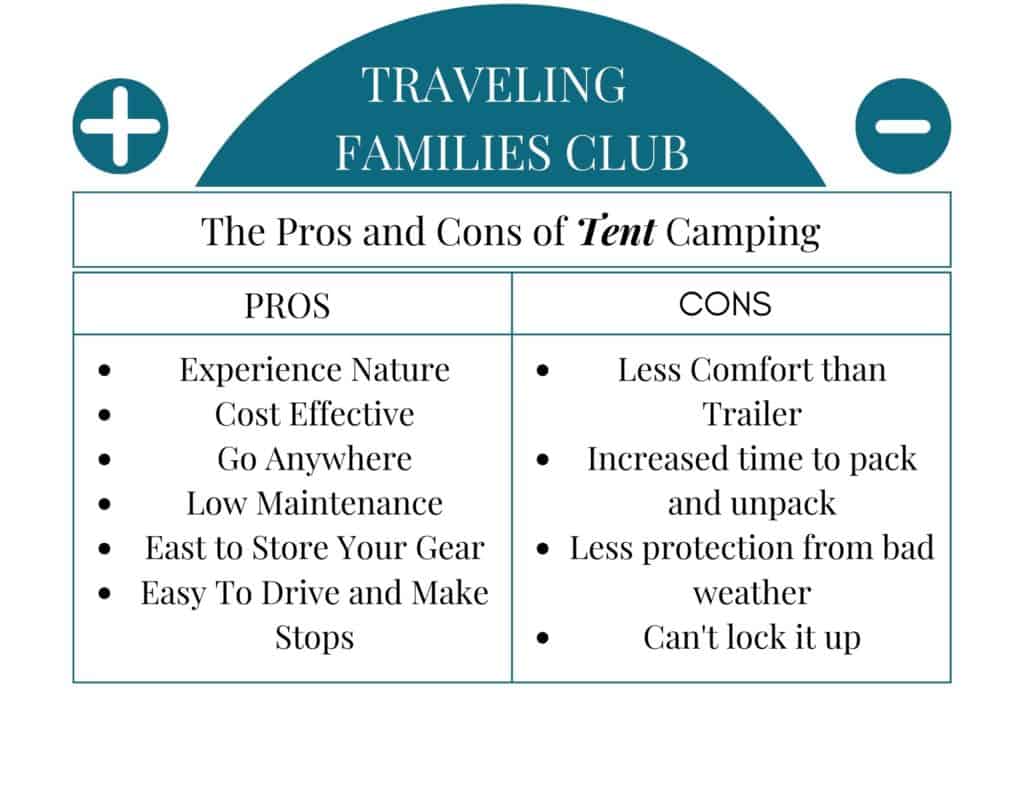
✔️ Easy to Store Your Gear
A simple tent camping setup won’t take up much space. Obviously, no more storage space than you have in your car. So finding a place to store it all when you get home isn’t much of a challenge for most people.
✔️ Easy To Maintain
Most quality tent camping gear will last decades with little to no maintenance. You may have to clean your stove from time to time or open up your tent when you get home to let it dry out if it was wet when you packed up. Aside from that, you pack it away once you’re home and it’s ready to go when you need it.
✔️ Go More Places
With tent camping, you will have fewer limitations on where you can camp. This will open up options for the type of camping that you can do. Not only are certain areas simply inaccessible to trailers or RVs, but certain campgrounds outright forbid them.
Additionally, many campgrounds that do allow trailers may only have a limited number of sites with parking spaces big enough to accommodate trailers, especially large ones.
✔️ Easy To Drive and Make Stops While Driving
One of our favorite things to do when going camping is checking out the towns we drive through on the way to and from our campsite. We found that when we had a trailer it was much more difficult to find parking, in some cases causing us to completely skip a town we would have loved to explore. Many parking lots in small towns simply aren’t designed to accommodate a car and trailer combo.
✔️ Experience The Elements
Perhaps the biggest benefit to tent camping is that you are forced, in a good way, to interact more with nature. When laying in your tent you will hear the birds in the morning, perhaps the wind blowing through the trees, or the water of a nearby river. All of this is lost when sleeping in a trailer.
Sleeping in a tent also just feels more unique. For all of the comforts that a trailer provides it sort of feels like sleeping in a cheap apartment on wheels.
If you go with tent campers or pop-ups, you can gain back some of the experience of being in nature while also having many of the conveniences provided by trailers.
Drawbacks of Tent Camping
❌ increased time to pack and unpack.
Above I mentioned that trailers have an edge when it comes to the time it takes to set up camp. They also have a significant edge when it comes to packing and unpacking at home. With trailers, you can simply leave most of your camping gear packed away. When it is time to go, pack your clothes and load up on fresh food and you are ready to head out.
Packing your car with all your tent camping gear can be a bit of a game of Tetris. I like to think I have the process pretty dialed in but it still takes me a couple of hours at a minimum to get all packed and ready to leave.
Then it is at least another hour or two to unpack all the gear and store it away when I get home.
❌ Some Limitations In Bear Country
In some areas with high bear activity tent camping is prohibited during certain times of the year. I have only personally seen this in certain areas of Glacier and Yellowstone National Park, but have heard there are other areas with similar restrictions.
While these restrictions are relatively few and far between it is worth noting if your desired destinations all have heavy bear activity. While most wild animals won’t bother a tent in any way, some people are going to simply feel more comfortable with the walls of a trailer separating them from the creatures of the forest.
❌ Can’t Lock It
There is no practical way to lock a tent. Anyone with a pocket knife could simply cut a hole in the side. So you can’t leave any valuables in your tent. I have never personally had this be an issue, but for folks who are extra security conscious having a hard-sided trailer with a door you can lock may give you peace of mind.
Additional Advantages and Drawbacks to Trailer Camping
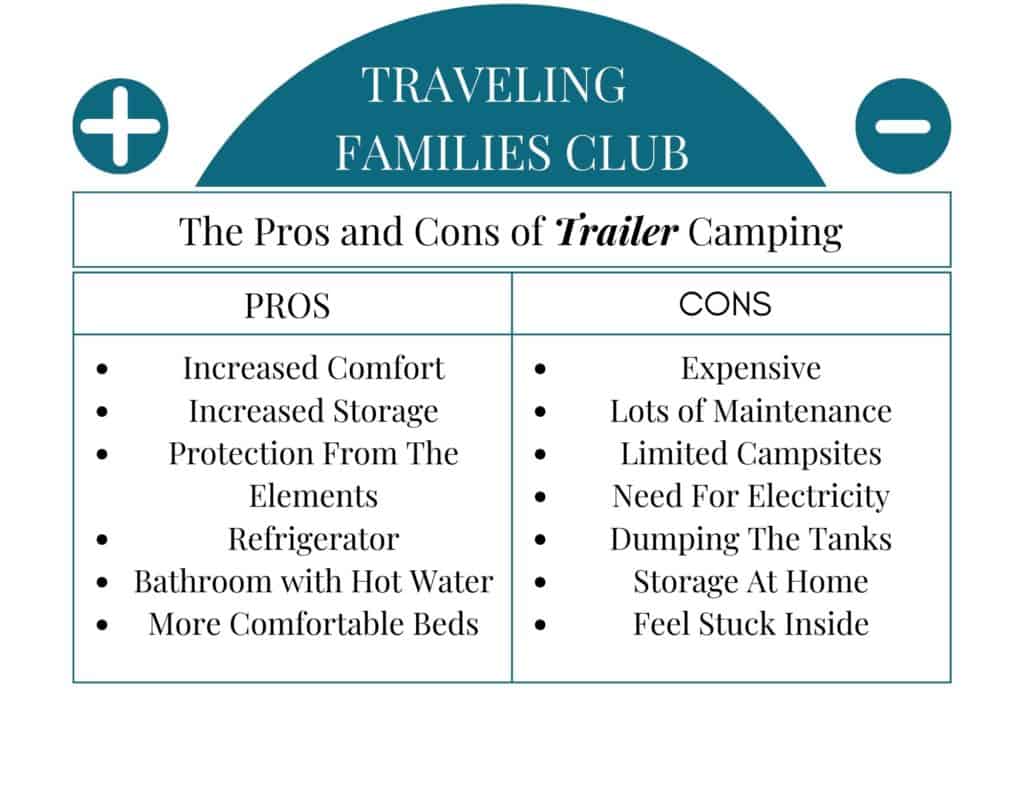
✔️ More Storage Space
Having a trailer dramatically increases your storage space and allows you to bring a lot more luxuries on your trip. Whether it is extra toys for your kids or luxuries for you, you’ll have more room to bring it, whatever ‘it’ is.
✔️ Better Access to Food and Gear Underway
A great thing about trailers is that, for the most part, you can easily access your food and gear without much work. When we had a trailer it was super nice to be able to pull over in a scenic spot and put together a picnic lunch without having to unpack anything other than what we were using.
Even a well-organized pack job for tent camping will likely require you to pull out a few things to be able to access all you would need to make a picnic lunch, or at the very least, it would be more work than if you had a trailer.
✔️ Eliminate Unwanted Noises
I mentioned above that an advantage to tent camping is that you still get to hear the sounds of nature. The flip side to that is you will also hear all the sounds of a campground.
You may want to go camping for some peace and quiet, but you may end up next to a family reunion that wants to get drunk by the campfire and sing kumbaya until someone forces them to stop.
If you don’t want to be that guy in your underwear yelling ‘keep it down over there’ then a trailer might be good for you.
Drawbacks to having a trailer
❌ maintenance.
Trailers require maintenance. A lot of maintenance. Consider for a moment that a trailer is essentially a hosue on wheels bouncing down the road. Even a well-built house would have things rattle loose.
Then consider that most trailer interiors are built out of wood that is hardly more stable than cardboard held together with staples that are thinner and more flimsy than the ones that are in the stapler on your desk. And you have a recipe for constant maintenance.
I won’t even get started on all the issues that we dealt with on the two trailers that we owned, but just know going into it that a trailer requires a lot of maintenance. Don’t ever let anyone tell you otherwise.
If you are seriously looking into a trailer the best advice I could give is to find a Facebook group for owners of whatever your preferred brand of trailer is (there are groups for every major brand and most small ones) and follow the posts for a couple of months to get an idea for what the common issues are.
❌ Dumping The Black Water Tanks
While you may get used to it, dumping the black water tanks certainly isn’t the part of camping you look forward to. Mechanically speaking it is a relatively easy process.
However, what they don’t tell you at the dealership is that it isn’t always easy to find a dump site. Not all campgrounds have them. Even those that do, may only have one or two for the entire campground. Meaning that if you are leaving on a weekend you may have to sit in line, while everyone else pours their week’s worth of poop down a pipe waiting for your turn to do the same. Not the best way to start off a long drive home.
Additionally, it’s just an extra thing to manage when you are supposed to be relaxing on vacation. Wondering if the poop tank is full isn’t the thing I want occupying my mind when I’m trying to relax in nature.
❌ Need For Electricity
Just about all of the features that make a trailer desirable require electricity to function. The lights, the heater, the water pump, and most likely the fridge. All trailers will come with a battery standard, however, the stock battery setup will typically only power the trailer for a day or two.
This means for any trip longer than that you will either have to camp in a campground with an electrical hookup or invest in some sort of charging system for your trailer. There are solar systems that can keep you charged when it’s sunny or gas-powered generators.
❌ Storage When Not In Use
If you have some space on your property to park your trailer then this won’t be an issue. However, if you don’t you will have to take it to a trailer storage lot which will run you a fee. Exactly how much depends on the size of your trailer and where you live.
Tent Camping Vs Trailer Camping: The Final Showdown
As you can see both tent camping and trailer camping have a ton of things in their favor and a few noteworthy drawbacks. There are many considerations when deciding which one is ultimately right for you, to make it simple, here are the primary appeals and drawbacks of each one last time.
Tent Camping
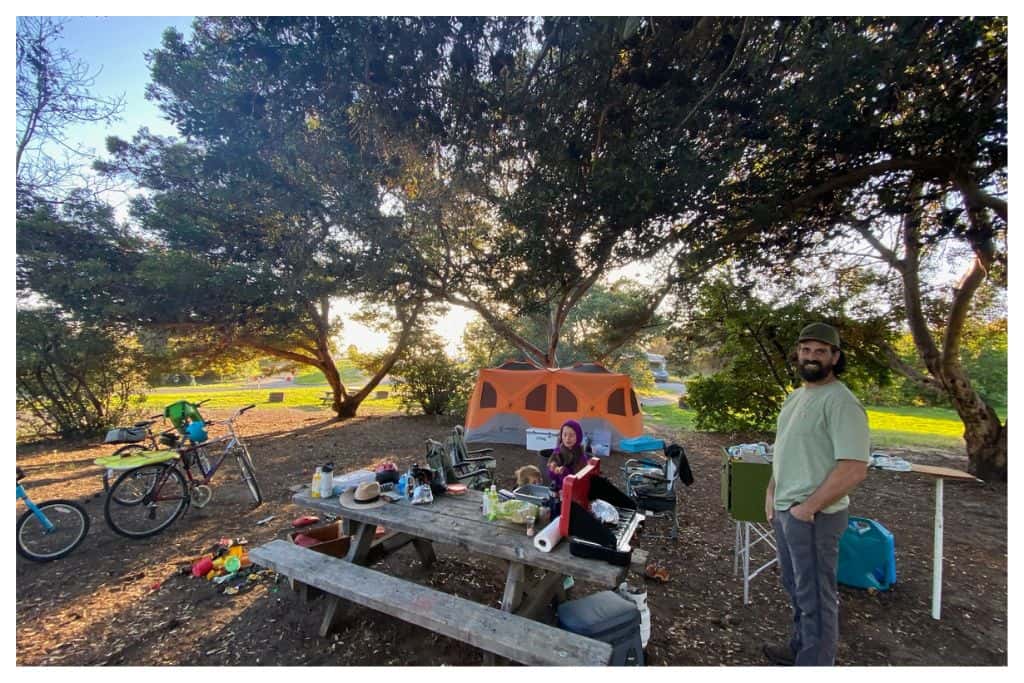
Primary Advantages : Connection to nature, cost-effective, go anywhere
Primary Drawback: Lack of comfort, limited protection in inclement weather (especially wind), and time to pack and unpack.
Trailer Camping
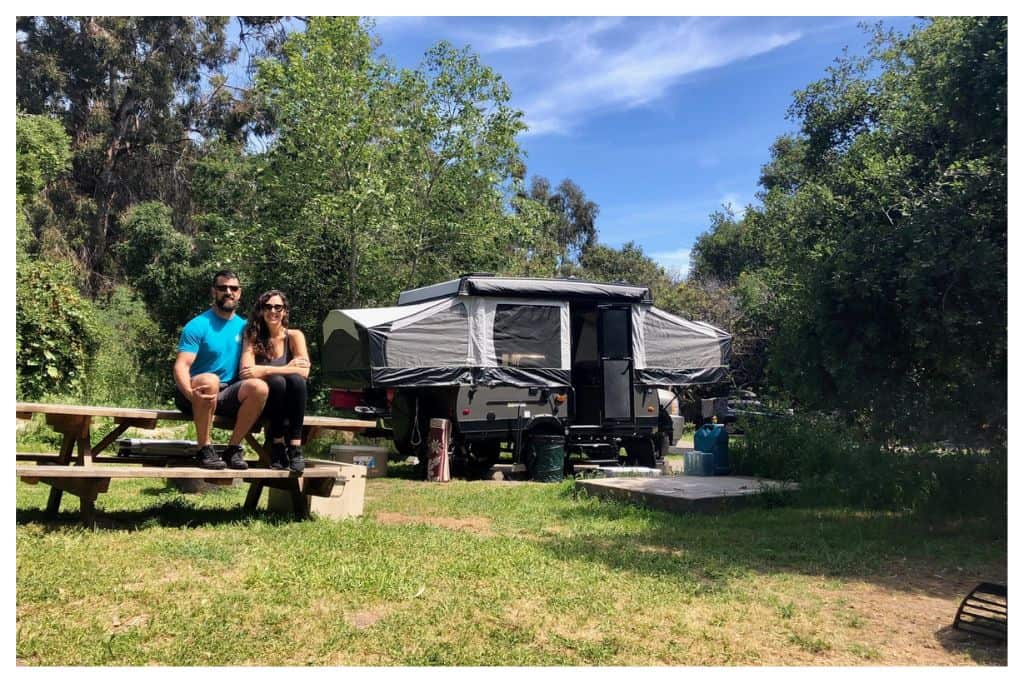
Primary Advantages: Increased Comfort (including in bad weather), keeping it loaded and ready to go, and increased storage.
Primary Drawbacks: Cost, maintenance, limited on where you can go.
As I mentioned we’ve owned two trailers in the past. We started with a tent trailer and then tried a hard-side trailer. For various reasons, we decided to sell both and are back to camping in our tent.
I love our tent and it works well for our family. That being said, I do miss the comfort and convenience of a trailer and am always on the lookout for one that would suit our family’s needs and is in a price range we can afford.
So for now, tent camping takes the cake for our family. But as we get a little bit older, and our backs get a little bit achier, I could easily see getting back into a trailer.
Ultimately, whether you are in a tent or a trailer, the important thing is that you are getting out there with your family, having adventures, and making memories!
Travel Trailer Vs. Camper: What’s the Difference?

About the Author
Tom Davidock
If you’re beginning your search for a Recreational Vehicle (RV) and are trying to sort out the differences between the various options, you’re not alone. One common point of confusion that many people have is the difference between a camper and a travel trailer. These two terms often spark confusion and are occasionally used interchangeably, “camper” and “travel trailer.”
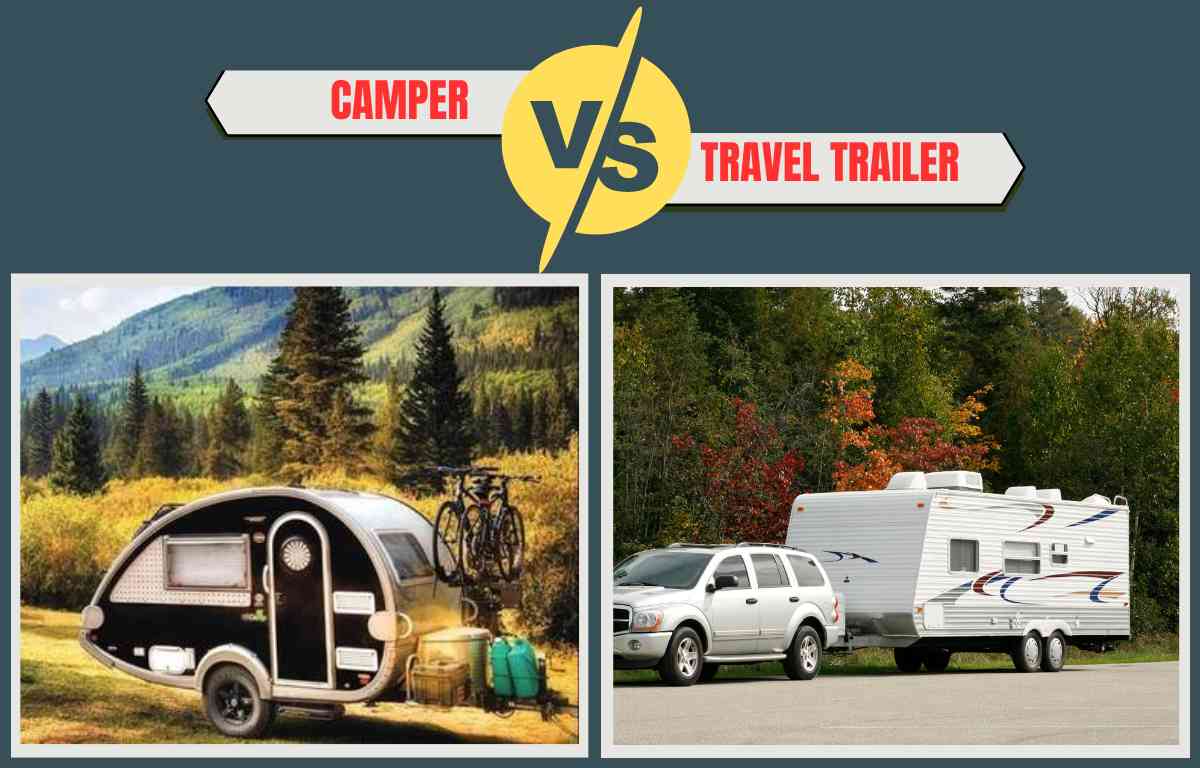
While these terms might seem synonymous, they denote distinct categories of RVs, each offering its own set of features, advantages, and charm. However, don’t worry too much about the terminology. The best way to find the perfect RV is to see it in person and decide if it fits your needs and travel style. In this article, we’ll look at the nuances between campers and travel trailers and shed some light on their terminology, design, functionality, and what sets them apart.
Defining the Terminology: Camper and Travel Trailer
Before we delve into the distinctions, let’s look at the core definitions of “camper” and “travel trailer.” Aside from truck campers, both can fall under the category of towable RVs.
Camper: A camper is a term often used as an umbrella category encompassing various types of recreational vehicles (RVs) that are designed for temporary accommodation and travel. Specifically, a camper can refer to a smaller type of RV that can be towed behind a vehicle or affixed to the bed of a pickup truck, creating a self-contained living space. You may also hear campers referred to as camping trailers or camper trailers. Still, regardless of name, these compact units typically provide essential amenities, including sleeping space and basic kitchen facilities, making them ideal for those seeking a cozy and efficient camping experience.
Travel Trailer: On the other hand, a travel trailer is a larger type of RV designed to be towed behind a vehicle, such as a truck or SUV. These trailers offer a spacious living area, a kitchenette, bathroom facilities, and sleeping quarters. Available in various sizes and layouts, travel trailers provide flexibility, allowing you to detach the trailer from the towing vehicle once your campsite is established and allowing you the freedom to explore your surroundings independently. Not to be confused with a 5th wheel, a travel trailer is towed from the bumper of a vehicle.
While the terms “camper” and “travel trailer” might sound interchangeable, their specific meanings highlight the contrasting nature of these two categories of RVs. While a travel trailer can be a large RV, a camper, by definition, is typically quite a bit smaller and won’t have the extra space afforded by their bigger RV counterparts. Let’s dig a little deeper into the various types of trailers and campers.

The Different Types of Campers
Campers come in various shapes and sizes, each tailored to different preferences and travel styles. Let’s take a closer look at some of the different types of campers available in recreational vehicles.
Pop-Up Campers:
Pop-up campers, also known as tent trailers, are a popular choice for those seeking a lightweight and compact RV. A pop-up trailer features collapsible walls, which can be expanded when parked to provide additional living space. When folded down, they become more streamlined and easier to tow, making them suitable for various vehicles. Pop-up campers are especially favored by campers who value versatility and convenience. Despite their relatively modest size, these campers can offer sleeping areas, basic kitchen facilities, and sometimes even bathroom amenities.
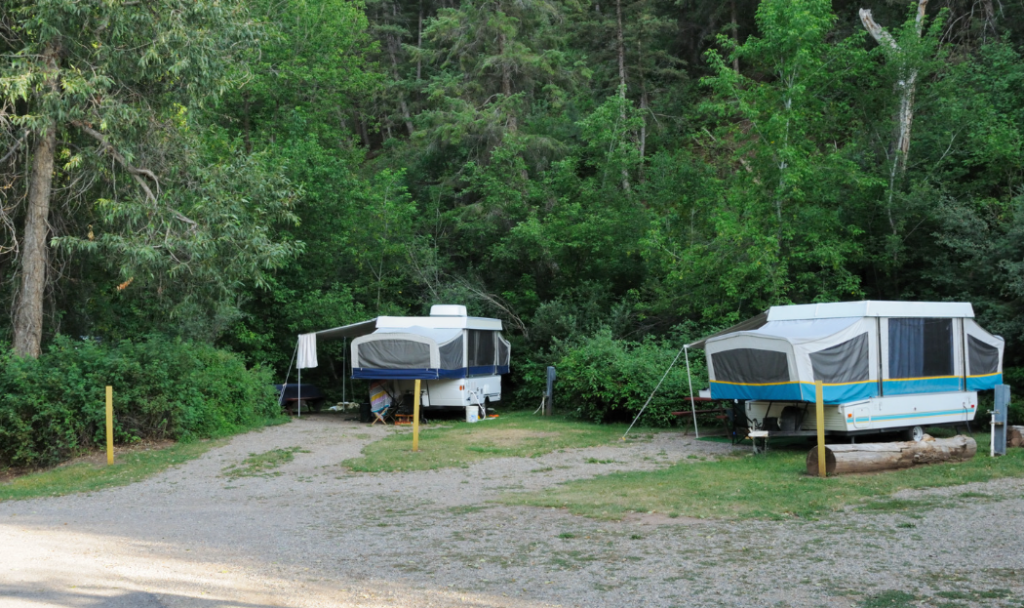
Truck Campers:
A Truck camper, also called a slide-in camper, is designed to fit directly onto the bed of a pickup truck. This unique design allows for easy installation and removal, providing a self-contained living space that travels with the truck. Truck campers offer a compact and efficient layout, making them an excellent choice for solo travelers, couples, or those who prioritize mobility. Despite their smaller footprint, truck campers often include sleeping areas, a kitchenette, and bathroom facilities, allowing you to enjoy the comforts of home while on the road.
Teardrop Trailers:
Teardrop trailers are known for their distinct teardrop-shaped design, prioritizing aerodynamics and efficiency. These compact campers are perfect for individuals or couples seeking a cozy and minimalistic camping experience. While they may appear small on the outside, teardrop trailers often feature ingenious interior layouts that maximize space. They typically include sleeping quarters, a small kitchen area, and sometimes basic amenities. Teardrop trailers are easy to tow and maneuver, making them an ideal choice for those who value simplicity and style. Some manufacturers will put these in the category of small travel trailers.
Off-Road Campers:
As the name suggests, off-road campers are designed to tackle rough terrains and adventurous trails. These campers have robust suspensions, reinforced frames, and off-road tires, allowing you to explore remote and challenging destinations. Off-road campers often come with features such as higher ground clearance, heavy-duty construction, and specialized amenities for outdoor enthusiasts. These are great options if you plan to travel on rough terrain or maneuver down narrow roads in more remote areas.

The Different Types of Travel Trailers
Travel trailers come in various shapes and sizes, each catering to different preferences, group sizes, and travel experiences. Let’s delve into some different types of travel trailers, each offering unique features and advantages.
Conventional Travel Trailers:
Conventional travel trailers are the quintessential choice for many RV enthusiasts. They come in various sizes, layouts, and floor plans, making them versatile for individuals, couples, families, and even larger groups. From compact units with all the essentials to spacious models with slide-out extensions, conventional travel trailers offer an array of amenities. They typically include sleeping quarters, a kitchenette, dining areas, and bathroom facilities.
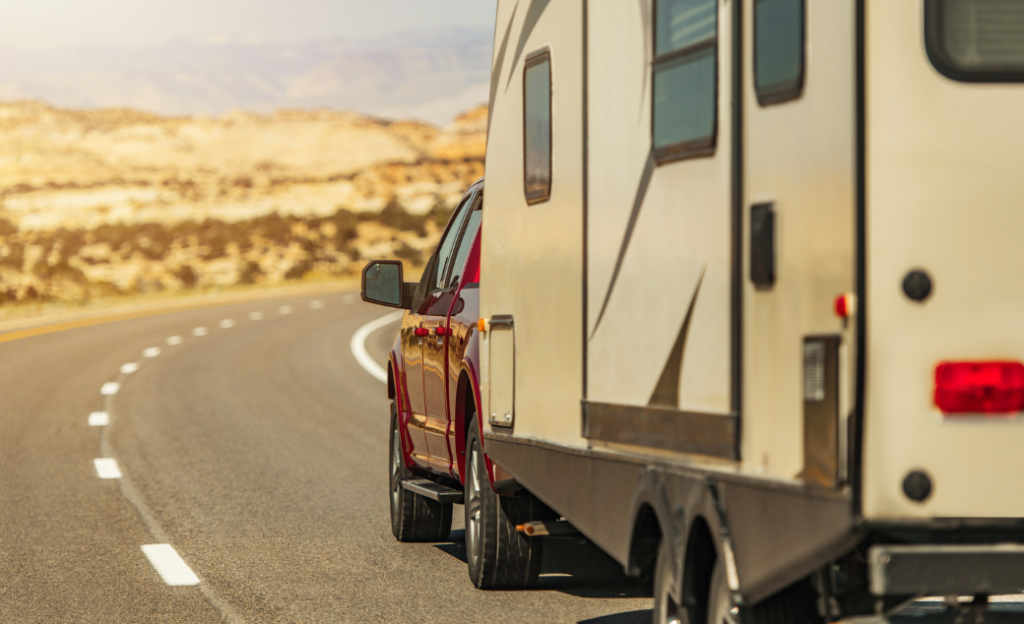
Toy Haulers: Blending Adventure and Comfort
Toy haulers are travel trailers designed with a twist— they come equipped with a garage area at the rear, which can be used to transport motorcycles, ATVs, bicycles, or other adventure gear. This unique feature combines the convenience of an RV with the ability to bring along your favorite outdoor toys. Toy haulers often feature fold-down beds, convertible seating, and ample storage space.
Ultra-Light Travel Trailers: Towable with Ease
Ultra-light travel trailers are engineered to be lightweight and easy to tow, making them an excellent choice for those with smaller tow vehicles or who want improved fuel efficiency. These trailers are designed with lightweight materials and streamlined construction, allowing you to hit the road without needing a heavy-duty truck. Despite their compact size, ultra-light travel trailers offer essential amenities, including sleeping quarters, kitchen facilities, and sometimes even bathroom amenities.

Luxury Travel Trailers: Embracing Elegance
For travelers who seek the epitome of comfort and style, luxury travel trailers offer a lavish experience on the road. These trailers feature high-end amenities, upscale finishes, and a focus on sophisticated design. From luxurious furnishings to gourmet kitchens and spacious living areas, luxury travel trailers provide a home-away-from-home experience.
Similarities Between Camper and Travel Trailer
Campers and travel trailers accomplish the same goals in the diverse landscape of RVs, offering travelers the freedom to explore the world while enjoying the comforts of home. While these two categories might have distinct features and designs, they share an essence that draws enthusiasts to both options. When differentiating between the two, it’s essential to highlight the significant similarities that make them both appealing choices for those seeking a mobile lifestyle.
Home Away from Home:
At their very heart, campers and travel trailers offer a familiar refuge amidst the unfamiliarity of new landscapes. Whether you’re traversing mountains, lounging by serene lakes, or nestled in your local RV park, these vehicles provide a cozy space to sleep, eat, or relax each day.
Sleeping Quarters:
Both campers and travel trailers accomplish one of the primary goals of an RV, providing comfortable sleeping quarters. Whether you’re traveling solo, as a couple, or with family and friends, these vehicles cater to varying numbers of occupants with their diverse floor plans. From snug sleeping areas to spacious master bedrooms, the sleeping arrangements allow you to wake up refreshed and ready for the day’s escapades.

Kitchen and cooking:
Both campers and travel trailers will offer some type of kitchen facilities that allow you to cook on the go. From preparing your morning coffee to crafting gourmet campfire dinners, the equipped kitchenettes in both options empower you to savor culinary delights while surrounded by breathtaking landscapes. While the size of the kitchen and available amenities will vary with the size of the RV, this shared feature is something you can expect in either option.
Bathroom Amenities:
Most campers and travel trailers will provide some type of bathroom facilities. Depending on their size and layout, both offer bathroom amenities ranging from basic toilet facilities to more comprehensive setups that include showers. Small campers may be limited in bathroom options, with very small ones only offering a portable toilet and outdoor shower. However, having these amenities within reach eliminates the dependency on external facilities.
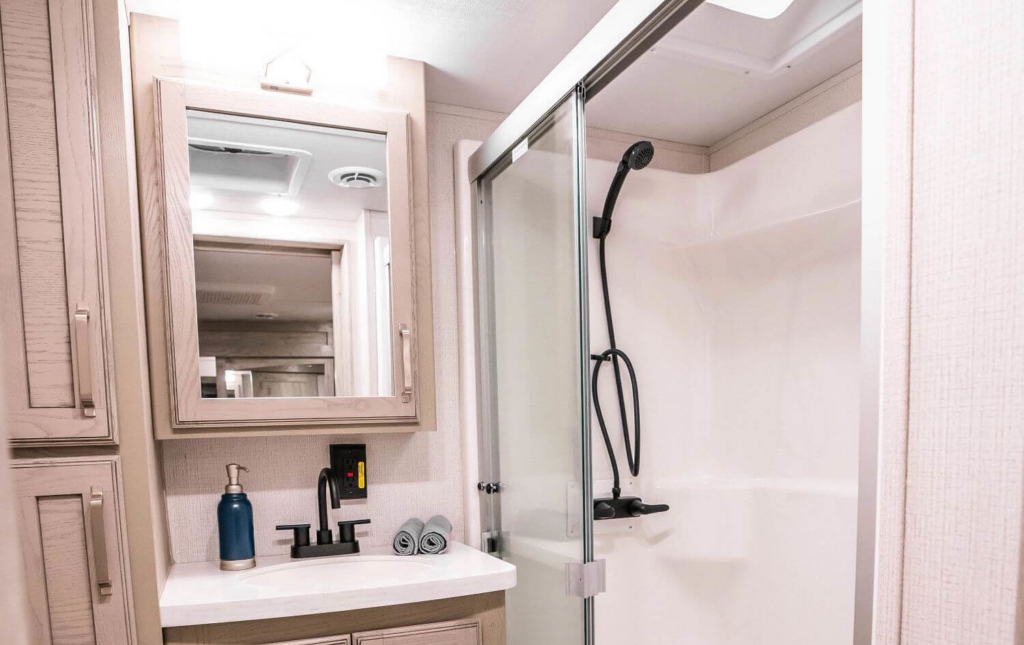
Flexibility and Exploration:
Both campers and travel trailers embrace the spirit of adventure by granting you the freedom to change your destination and itinerary as your wanderlust dictates. Whether you’re traversing remote camping spots, exploring national parks, or simply embarking on a spontaneous road trip, the flexibility these options provide ensures you can adapt your journey to your desires and discoveries.
Differences Between Camper and Travel Trailer
While these two categories share commonalities that make them both alluring options for travelers, it’s essential to recognize their distinct characteristics and functionalities. Let’s delve into the key differences that set campers and travel trailers apart, helping you make an informed decision when selecting the ideal RV for your adventures.
1. Design and Size:
Campers: Campers are smaller and designed to be affixed to the bed of a pickup truck or towed by a smaller vehicle. Their size is inherently limited due to the dimensions of the truck bed or the smaller size of the vehicle towing it. This design makes campers an excellent choice for solo travelers, couples, or those who prefer a more minimalist approach to camping.
Travel Trailers: In contrast, travel trailers encompass a broader spectrum of sizes and layouts. From compact units to expansive models with slide-out extensions, travel trailers often offer more spacious living areas, separate sleeping quarters, and comprehensive kitchen and bathroom facilities. This versatility makes them a better option for individuals, families, and larger groups seeking varying comfort levels.
2. Towing and Mobility:
Campers: Campers are usually easy to tow and usually offer an easier learning curve for folks unfamiliar with towing an RV. For truck campers, they provide a seamless integration with the towing vehicle, as they become a single unit when attached to the bed of a truck. This configuration enhances maneuverability, especially in tight spaces, and simplifies the overall towing experience. Since the campers are usually smaller, they will also improve fuel efficiency when getting to and from the campsite. A small camper will also offer better gas mileage for your tow vehicle. A small camper will be a great choice if you want to be nimble and take spontaneous road trips.

Travel Trailers: Travel trailers are designed to be towed behind a separate vehicle, such as an SUV or truck. This towing setup allows for greater mobility once you’ve reached your destination. You can unhitch the travel trailer and use your vehicle independently to explore local attractions, run to the grocery store, or embark on day trips. Larger travel trailers will require some practice when towing and maneuvering the vehicle. Unless you have a smaller trailer, It will take some skill to maneuver through parking lots or a tight campsite. Also, due to their large size, your fuel economy when towing will be much less than with a camper.
3. Living Space and Amenities:
Campers: Due to their smaller size, campers have a more compact layout that generally results in limited interior space. While they offer sleeping quarters and basic kitchen facilities, the overall living area is more confined than travel trailers. This is one of the main differences when shopping for your first RV.
Travel Trailers: Their larger dimensions typically provide more spacious living areas. Depending on the model, they can include features like separate bedrooms, comfortable seating arrangements, full kitchens with appliances, and even more luxurious amenities. Many travel trailers will offer slide outs, providing much more space when set up at the campground. The extra room allows for greater comfort and a more home-like atmosphere.
4. Storage:
Campers: Campers have a more limited storage capacity due to their compact size. While they offer some storage solutions, you’ll need to be selective about the items you bring along on your journey. Unlike a large travel trailer, campers will have fewer options to transport or store their camping gear or supplies.
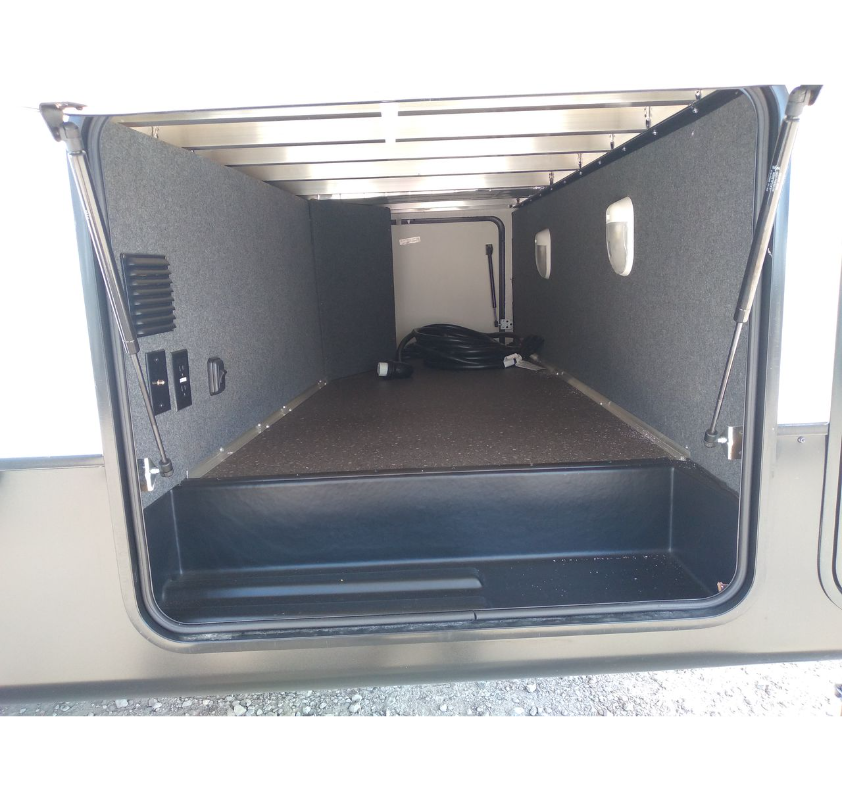
Travel Trailers: The larger dimensions of travel trailers usually translate to more storage space. These trailers often feature ample cabinets, closets, and storage compartments, allowing you to bring a wider variety of gear, equipment, and personal items. While smaller travel trailers won’t have much space, they’re still usually a better choice for a large family with more things to bring along.
5. Tow Vehicle Requirements:
Campers: If you choose a towable camper, you won’t need as big of a tow vehicle. An SUV can usually tow a small teardrop trailer or pop-up camper. However, truck campers usually require a larger pickup truck due to their design that attaches directly to a bed of a truck. The camper’s weight and dimensions will influence the specific truck requirements.
Travel Trailers: Travel trailers can be towed by a broader range of vehicles, including SUVs, half-ton trucks, and some larger crossover vehicles. The towing capacity and appropriate hitching system will vary based on the size and weight of the travel trailer.
By understanding these key differences, you can better evaluate whether a camper or a travel trailer aligns with your travel style, group size, and preferences. Each option offers distinct advantages that cater to various needs, ensuring you can embark on your journeys with the perfect RV companion.
Comparing Campers, Travel Trailers, Fifth Wheels, and Motorhomes
Travel trailers and campers are just two categories of RVs. If you’re looking at different options with more features, two significant contenders in this realm are fifth wheels and motorhomes. These options offer distinct advantages, designs, and functionalities that set them apart from campers and travel trailers. Let’s delve into how fifth wheels and motorhomes differentiate themselves from campers and travel trailers, allowing you to make an informed decision that aligns with your travel aspirations.
Fifth Wheels:
Fifth wheels are a unique category of RVs that require a special hitch installed in the bed of a pickup truck. This hitching mechanism provides enhanced stability during towing, making fifth wheels attractive for those seeking a smoother towing experience. Fifth wheels often boast more living space than traditional travel trailers due to their design extending over the truck bed. This design allows for additional slide-out rooms, creating a spacious, home-like interior. The hitching system also results in a tighter turning radius, allowing for greater maneuverability when navigating tight spaces. Fifth wheels are a popular choice for long-term travelers or those who prioritize ample living space while on the road.
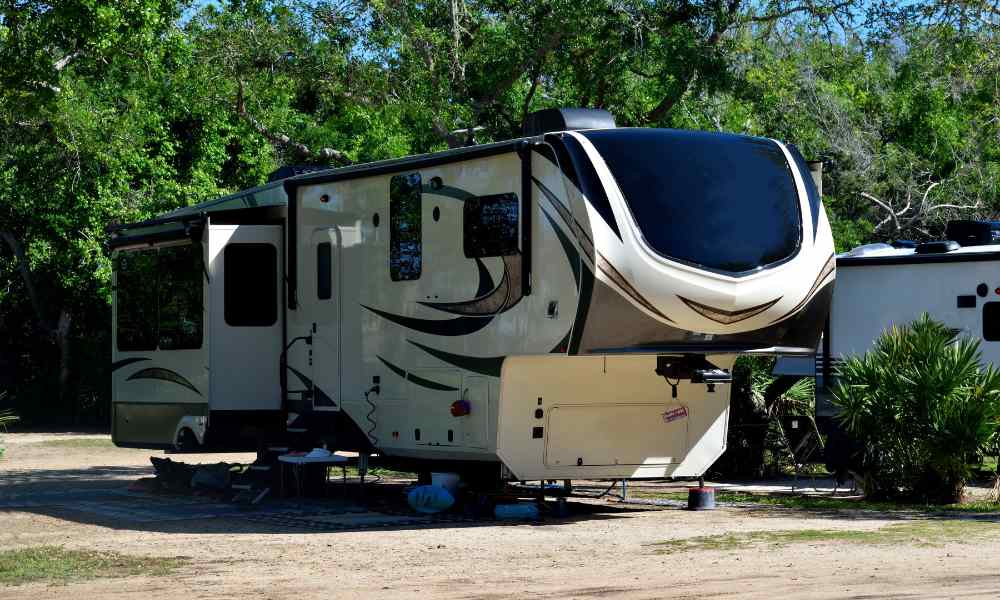
Motorhomes:
In contrast to both campers and travel trailers, motorhomes are self-contained units with their own engines. This all-in-one design seamlessly combines the living area with the driving space, eliminating the need to tow a separate vehicle. Motorhomes come in different classes—Class A, Class B, and Class C—each offering varying sizes, layouts, and amenities. Class A motorhomes are the largest and most luxurious, resembling a bus in appearance and offering expansive living spaces. Class B motorhomes, or camper vans, are compact yet versatile, ideal for couples or solo travelers seeking mobility. Class C motorhomes fall in between, often built on a van chassis with a distinctive cab-over design, providing additional sleeping or storage space. Motorhomes provide the convenience of having everything in one unit, making them a popular choice for those who want to seamlessly transition from driving to living without disconnecting or hitching. However, since you have an engine, maintenance costs will usually be higher for motorhomes.
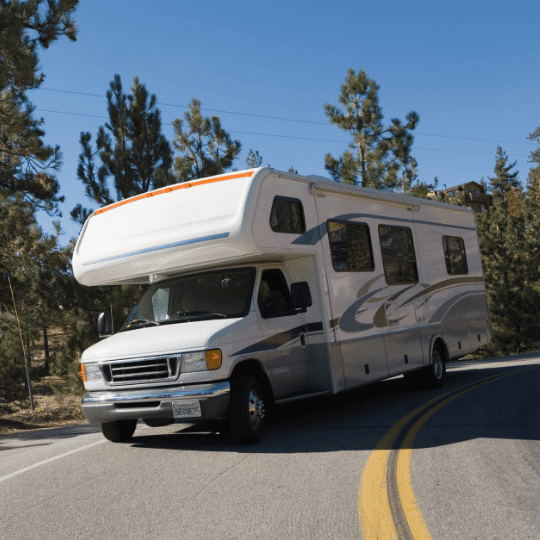
In Summary: Finding Your Perfect Match
The world of RVs offers various options, each catering to different preferences, group sizes, and travel styles. While campers and travel trailers provide a sense of home on wheels, fifth wheels offer enhanced stability and spacious interiors. At the same time, motorhomes bring together convenience and comfort in an all-in-one package. Understanding the distinctions among these options empowers you to select the perfect companion for your journeys. Whether you’re drawn to the compact mobility of campers, the spacious elegance of fifth wheels, the versatility of travel trailers, or the seamless convenience of motorhomes, each choice promises a unique adventure on the open road. The decision ultimately rests upon your priorities, travel aspirations, and the experiences you seek to create.
Leave a Reply Cancel reply
- Skip to primary navigation
- Skip to main content

Camper Trailers vs Tents: Which is Right for You?
September 18, 2023 by Emilia Leave a Comment
Are you a camping enthusiast? If so, you may be familiar with tent vs camper trailers. Tents are pocket friendly and portable. On the contrary, a good camper trailer takes the lead from tents by offering built-in comfort and necessities.
In such a case, there’s always been a debate on which of the two is the best: tent vs camper trailer. If you’re here with the same query in mind, you’re in the right place. Read the guide thoroughly and learn the difference between tents, camping trailers, etc.

Difference Between the Camper Trailer Vs Tents
There’s always a debate about tent vs camper trailer, which one of the two is good to go for. Honestly, I can’t exactly tell which one you should choose; Either it’s best to look at the comparison of tent or camper trailer below.
What’s a Tent?
Tents are the shelters that most campers use for their stay at the beach or on the mountain. If I talk about the old times, nomads and army soldiers used tents for shelter back then. However, with time, things changed, and now people use tents for vacation purposes.
The tents come in various sizes and shapes and at different prices. They are well equipped with safety tools such as guy ropes and pegs. In addition, most of them are waterproof and prevent water intrusion into the tent. Secondly, some of the tents have a mesh wall that prevents the entrance of invisible flies inside them.
So, a tent comes with many purposes and acts as a source of shelter and enjoyment for the user. To learn more about the tents, delve below and read about their types and uses.
Types of Tents
Here are some of the best pop-up tent , their features, and their uses.
How to Set Up a Tent?
Setting up a tent is easy. But first, you have to follow the steps below to pitch the tent. This simplicity is a significant factor in the tent vs camper trailer debate for those who prioritize ease of use
- Firstly, choose the tent according to the weather and the location where you will stay.
- Then locate the plain surface to pitch your tent perfectly. Otherwise, rough or rocky terrain will damage the tent.
- Lay the tent body on the floor.
- Now assemble poles and attach them with grommets.
- Lastly, attach the tent body to poles, and use pegs and guidelines to secure it.
- Once you’ve set up the tent, wiggle it and check if it’s properly secured. If it isn’t well connected, fix it.
- Lightweight
- Easy to carry
- Good for mountain camping
- Budget-friendly
- Water-resistant
- Not good against standing terrible weather conditions.
- Even though they are water-resistant, in most cases, sagging can occur.

Read More: Best Pop-Up Tents For Beach: Enjoy Sun, Sand, and Surf
What’s a Camper Trailer?
When it comes to a camper trailer, there’s a lot to be said about it. It’s a trailer with a towing vehicle that you use to move the trailer to the camping site and unhitch the towing vehicle later. The importance of trailers varies. Some are lightweight, while others are heavy to carry. All of them have different weights. But, It’s important to know how much do pop-up tent trailers weigh.
A camping trailer has all the essential tools and necessities at home. It has a water tanker, a kitchen, a washroom, and a place to sleep and relax. All these things make a camper a better option than a tent.

Types of Camper Trailers
Following are the types of camper trailers. Please consult the table below to learn about their features and uses.
How to Set Up a Camper Trailer?
There’s no need to set up a camper trailer, as they are already in their proper form. However, if you want, you can attach the rainfly with it, extend it, sit under its shade, and enjoy gossip time with family or friends.

- Enough storage space
- Easy to move with the tow vehicle
- Builtin kitsch, washroom, and other facilities
- Towing it can be dangerous
When considering tent vs camper trailer for your next camping adventure, weigh the pros and cons of each. Tents offer simplicity and a close connection to nature at a lower cost, while camper trailers provide unmatched comfort and convenience at a higher price point. Ultimately, the choice between tent vs camper trailer depends on your camping style, budget, and the experiences you wish to have.
- Is a trailer tent better than a tent ?
Since a trailer has many advantages, it’s better than smaller backpacking or camping tents. Trailers are more spacious and comfier than regular tents. You get all the necessities within a camper trailer without having to leave. As far as tents are concerned, they don’t offer amenities, and the only good thing about them is they are affordable and portable. On the contrary, trailers are heavy and expensive, and renting towing vehicles can add more to the cost.
- What’s the difference between a Tent and a Bivy?
Tents are larger, freestanding shelters with room to move, while bivvies’ (bivouac sacks) are compact, minimalist, and designed for solo use, offering limited space.
- Is it comfortable to sleep in a tent?
It depends upon the location you choose for camping. For example, if you pitch a tent on the beach, chances are a storm can hit the beach, and it may affect your tent, affecting your sleep. The same goes for camping on mountains and other rocky terrains. As long as your tent is of high quality, you’re more likely to
Reader Interactions
Leave a reply cancel reply.
Your email address will not be published. Required fields are marked *
Save my name, email, and website in this browser for the next time I comment.
- Best Whiskey
- Best Gym Shoes
- Best Pocket Knives
- Best Apple Watch
- Porsche Models
The Complete Guide to Pop-Up Trailer Campers
You’ll never have to worry about sleeping on the floor again while indulging in the great outdoors.

By Chris Chin
It may be hard to believe right now, but fall is just around the corner — which means, with the scorching ambient temperatures and the soupy humidity of summer begin to subside, we’re about to be in the ideal temperatures for camping season.
While there are a variety of ways to accommodate sleeping arrangements once the fire burns out, the smores supply wanes, and the time to turn in for the night approaches — rooftop tents , regular tents , camping trailers , camper vans , et cetera — in this case, we’re talking about pop-up tent trailer campers .
Which, of course, may beg the question:
What Exactly Is a Pop-Up Tent Trailer?
When it comes to camping, you can always go the bougie glamping route with a decked-out motorhome, a camper bus , or even a fancy-schmancy Airstream ; yet these are big, cumbersome and pricey compared with the freedom and flexibility of other forms of camping. On the opposite side of the spectrum, one can go back to basics with a simple tent. Even with padding, though, trying to sleep on rough terrain however can be a major turnoff for many. Thankfully, there are plenty of alternative happy mediums in between — one of which is the pop-up tent trailer camper.
Think of it as a basic camping tent—or even, in some cases, a mobile compartmentalized gazebo—mounted permanently atop a small trailer chassis and equipped with onboard amenities. More than that, though, it’s all efficiently bundled together with sleeping arrangements that your back might appreciate — in a package almost any car can tow.

Advantages and Disadvantages of a Trailer Tent
Pop-up trailer tents often come equipped with items similar those of a much larger camper, but in pint-sized portions. For example, depending on the model, you might find a small cooking station, hardtop and dinette seating surfaces, extra storage spaces, a kitchenette sink, even air conditioning. The standard features list tends to include integrated electronics and plumbing, flexible connectivity options for water, propane, and power hook-ups, and more.
But at the same time, trailer tents are not as cumbersome or expensive as full-sized trailers, which need heavy-duty pickups or beefy SUVs and lots of space to haul. Most pop-up tent trailers weigh less than 3,000 pounds meaning they can be hitched up to most mid-to-full-size vehicles, like your average crossover SUV . Additionally, many pop-up trailer tents collapse into it their chassis for mobility purposes; yet when set up at one’s favorite camping site, they’re screened off to keep nature out.

There are a few disadvantages, though — particularly if you’re a stickler for square footage, or if you have large groups of people with you, as tent trailers are meant to be a compact and efficient way to camp. And you do need a vehicle with some sort of tow hitch to be able to drive off with one. Those without a factory hitch would have to consider aftermarket options.
And then there’s cost. While they are significantly cheaper than a larger camper or “destination” trailer , they still can cost a pretty penny—at least, when compared to your average tent that costs a few hundred bucks. Most brand-new pop-up campers range from as little as $7,000 to over $20,000 for the larger, more lavishly equipped models.

The Best Trailer Tents
Like the trailer and motorhome market, there is a plethora of household names in the pop-up trailer tent market —as well as a few startups growing in popularity.
OPUS Camper

OPUS Camper , a subsidiary of trailering outfitter PurpleLine USA from Pittsburg, California, made a name for itself for offering a full lineup of luxury pop-up tent trailers geared towards overlanders. Feature rich and fitted with all-terrain tires and beefed-up suspension, OPUS campers are the Land Rovers of tent trailers.
Should you despise manual labor, all their models feature its in-house “OPUS Camper Inflation” technology, which means they can all be popped up and collapsed with a simple touch of a button in a matter of minutes. But be ready to fork over a nice chunk for this level of amenities; the base Opus Lite costs nearly as much as a brand-new compact car, starting at $19,900.
SylvanSport

SylvanSport is a known brand among hiking and kayak fans, and has since expanded to make its own camping trailer, the SylvanSport GO. Starting at $10,995, the SylvanSport is an affordable option for the camping couple or small family.
It utilizes a simple-yet-sleek skeleton design with an integrated a pop-up rooftop tent pod that provides sleeping quarters for up to four people. Should you not need to utilize said tent pod, the SylvanSport also doubles as an outdoor activity trailer, offering the flexibility to haul bicycles, kayaks and even dirt bikes without having to dismantle the tent pod.

Known for their “A-frame” style campers, Aliner is a reputable and well-respected brand for this unique type of pop-up. It may not be a pop-up tent trailer in the traditional sense, as it features solid walls rather than soft fabric walls, but they still come standard with integrated systems such as electronics and plumbing.
They also provide more secure and private quarters, in the event wild animals are a campsite issue. And because of its fixed design, there are fewer moving and expensive parts, so these A-frame pop-ups are on the more affordable side, with some offerings starting at under $10,000.
Starcraft / Jayco

Not to be confused with the popular videogame, Starcraft and its parent company as of the 1990s Jayco are both household mainstream names known for RVs, campers, and pop-up tent trailers. Both offer pop-up tent trailer campers with similar designs and floor plans, offering a ton of flexibility, versatility, and onboard amenities.
Starcraft currently doesn’t have any new model pop-up trailers in its current lineup, and the most recent model from Jayco is the 2019 Jay Sport. But pre-owned examples from both manufacturers are abundant on the second-hand market.
But wait, there’s more
This is just short list of some of the most popular manufacturers in the pop-up trailer tent market as there are plenty of other outfitters producing similar trailers. Other notable brands include Taxa with their Woolly line of trailers geared towards overlanders , Forest River RVs and Coachmen . So rest assured, if you’re in the market for a pop-up tent trailer, there’s no shortage of options.

Related Topics

- Class A Motorhomes
- Class B Motorhomes
- Class C Motorhomes
- Diesel Motorhomes
Travel Trailers
5th Wheel Trailers
RVs on Clearance
RVs on Order
Used Motorhomes
- Used Class A Motorhomes
- Used Class B Motorhomes
- Used Class C Motorhomes
- Used Diesel Motorhomes
Used Travel Trailers
Used 5th Wheel Trailers

- RV Lifestyle
- Maintenance
- Order Repair Parts
- Van Conversion Parts

Fill out our online appraisal form and find out what your RV is worth.
- RV DIY (Do It Yourself)
- Camping 101 to Advanced
- RV Maintenance & Service
- RV Parts & Accessories
- Towing Guides
- Brand & Manufacturer Guides
- RV Body Type Breakdowns & Comparisons
- About Bucars
- Leave a Review
- Why Bucars?
- Check our Reviews
- Warranty Progrßams
- Diamond Kote
- Sell Your RV
- Pre-qualify for Financing
- Get Directions
- Schedule an RV Viewing
- Schedule a Service Appointment
- View Address and Contact Form
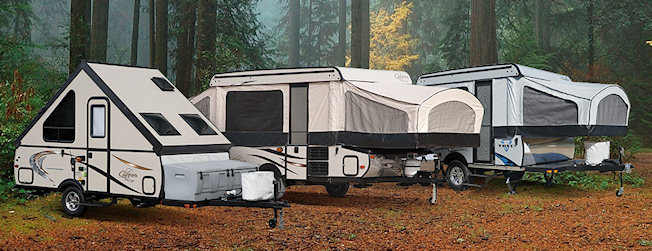
- Learning Centre
- Tent Trailers vs. Travel Trailers – What are the Benefits of Each?
December 23, 2015
- RV Body Type Breakdowns & Comparisons
Share The Article

At Bucars RV we carry a large selection of both used and new towable RV’s. Among these towable RV’s we carry two great body types the travel trailer and the tent trailer also known as the pop-up or fold down trailer. Both of these body types have unique benefits that suit varying types of needs. We want to help you figure out which body type is best for your family. Of course the best way to do this is to come down and visit our lot and see them for yourself, but if you can’t make it to us this article can help you with your decision. Please keep in mind if you have any questions about travel trailers or tent trailers you can call us at 1-800-267-8348, we are always eager to help.
The Benefits of a Travel Trailer
The travel trailer has a ton of benefits when RV’ing and this is why it is the most popular body type among all RV’s. Travel trailers can vary in towing weight ranging from ultra lightweight to larger models with an abundance of living space. The beauty of a travel trailer is that you will be able to find a model that will suit the towing capacity of your current vehicle. Not having to buy a new vehicle so you can tow your RV is a huge benefit of the travel trailer.
Another great benefit to travel trailers isn’t only the variety of sizes and weights they offer but the variety of features and layouts as well. Travel trailers come in endless sizes and many feature garages, roof top patios, bay windows, fireplaces, offices, hideaway beds, expanding sides, and lowering roofs. If you can dream it, chances are someone has already built it.
One other undeniable benefit of the travel trailer is that it is detachable from your tow vehicle. This means you can leave your trailer at the park and use your car or truck for shopping and sightseeing.
Bucars is proud to carry some of the most popular and awarded travel trailer models available in Calgary. These models include the Venture RV Sporttrek and Sonic models and the K-Z RV Spree Escape, Spree Connect, Spree Sportsmen and Coyote MXT models .
The Benefits of a Tent Trailer
Tent trailers are the perfect RV body type for those who want the convenience of an RV without a large trailer or RV taking up space on their property or having to pay to store it. The tent trailer is incredibly easy to store and takes up the least amount of space among all RV body types. Tent trailers are often bought as a first trailer for families, they are lightweight enough to be towed by virtually any car and can be found in many lengths with options such as hot water, refrigerator, air conditioning and washrooms.
The tent trailer is by far the most affordable body type among RV’s and is perfect for those who are looking to take their first steps into RV’ing. Tent trailers are a good introduction to the RVing lifestyle with monthly payments that can start as low as $99, perfect for first-time buyers or families with young children.
Even though tent trailers are the most compact trailer available they still offer plenty of living space. Many tent trailers include facilities for kitchen, dining and sleeping. Some models even include a slide-out section to increase floor space in the centre of the unit. Not only can they offer great living space they also can offer great features such as stoves, refrigerators, toilets and showers. So even though they take up less space it doesn’t mean you are giving up amenities as a result.
Bucars is proud to carry a large variety of quality used tent trailers . We encourage you to come visit us and see our available tent trailers for yourself, or call us at 1-800-267-8348.
Recent Articles

Calgary RV Dealership Celebrates 65 Years of ‘Refreshingly Different’ Customer Service with Canada-first Award Win

$2,500 Prize Winner: Real Millette!
Categories:, you might also be interested in.
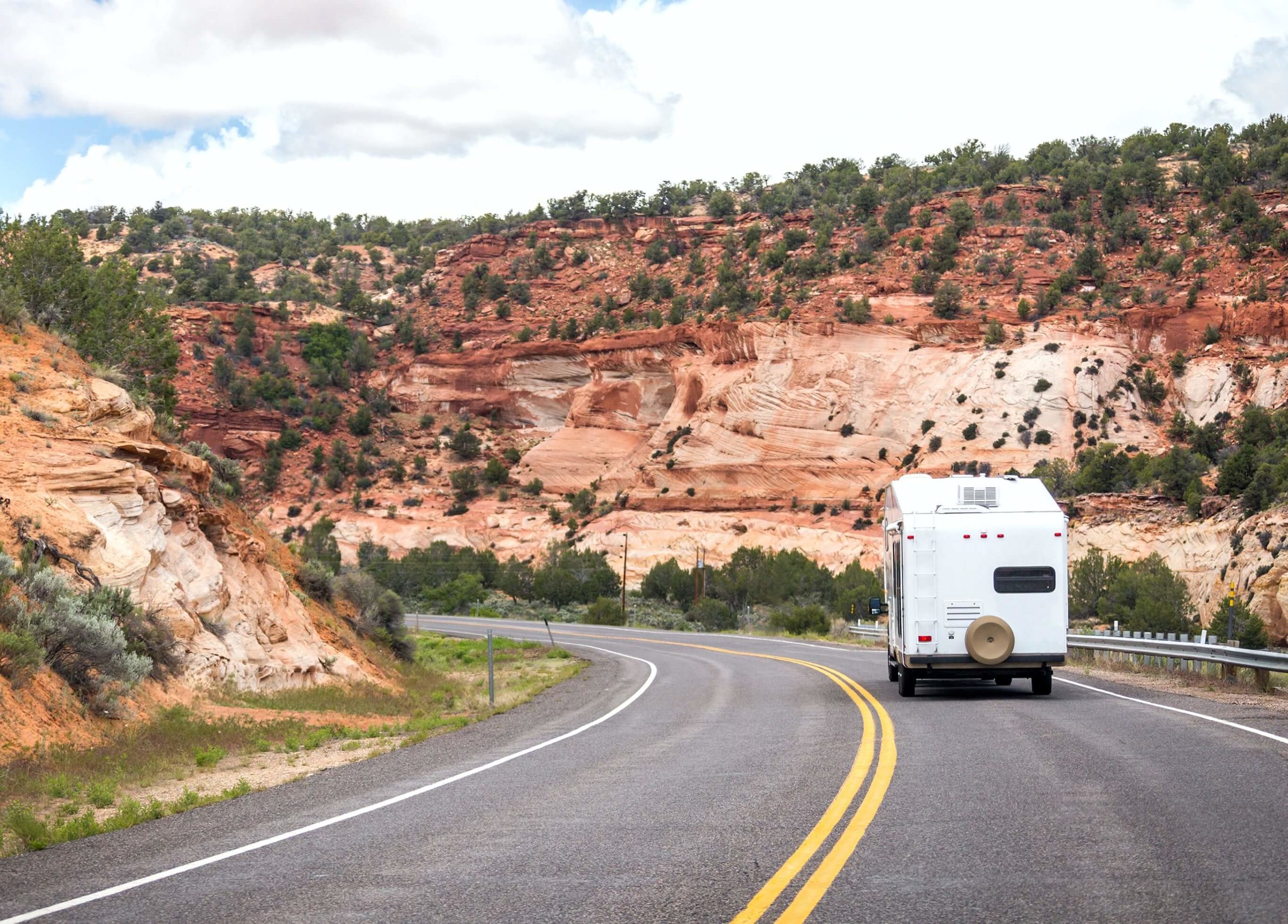
The Only RV Buyer’s Guide You’ll Ever Need
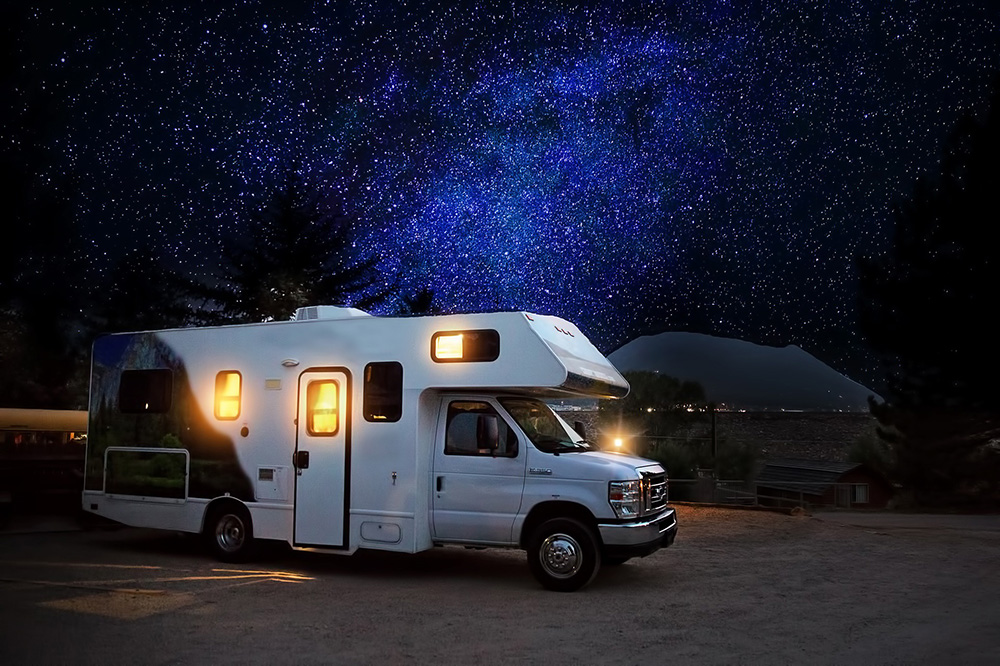
Ask our RV Experts: What New RV Features are you Most Excited About for 2021?
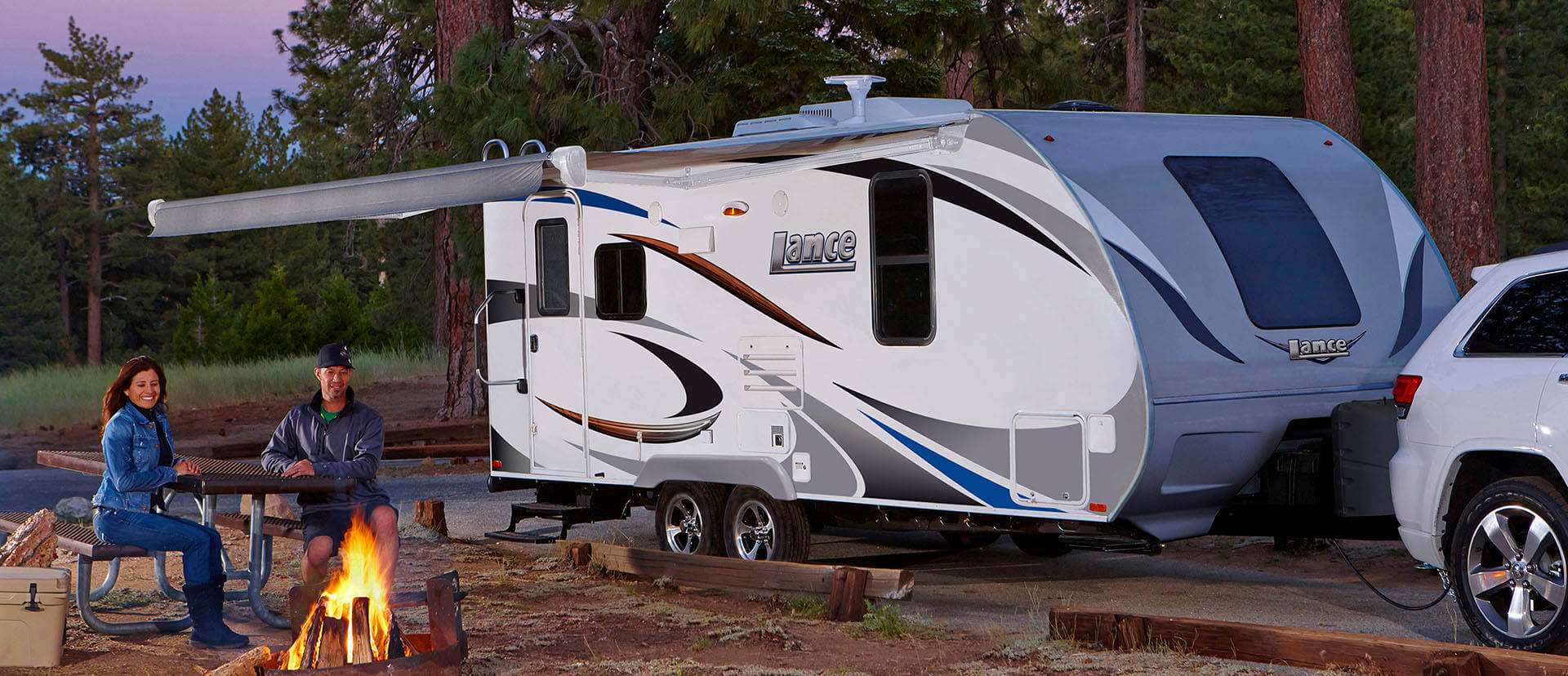
Our Top Travel Trailers for 2020
Finance Your RV
At Bucars RV Centre we have one of the most experienced and reputable RV finance departments in Calgary and area. Our team works hard to provide RV financing rates and terms that let our customers leave with the RV of their dreams.
What's On Now
You’re invited to our 65th birthday party.
On April 5, 6 & 7, let’s celebrate 65 years of Bucars RV! Register now for a chance to win our early bird prize draw for a $1,000 Bucars RV Centre gift card!

De-Winterizing & Spring Maintenance – RV102 on April 6 at 10:00 a.m.
Join our energetic Solar Seminar presented by our partners at GoPower! Registration is open to anyone for our free, fun and informative RV seminars. Save your seat today!


Book Your RV Spring Maintenance Today
Spring appointments are filling up fast, book your RV repair & service now! Get your RV tuned up and be #BucarsReady for the spring camping season!
Introducing the 2025 Tiffin Wayfarer: Arriving Soon!
This new Class C motorhome combines innovative features with exceptional craftsmanship. Be first to take it for a test drive, schedule your VIP Viewing today.
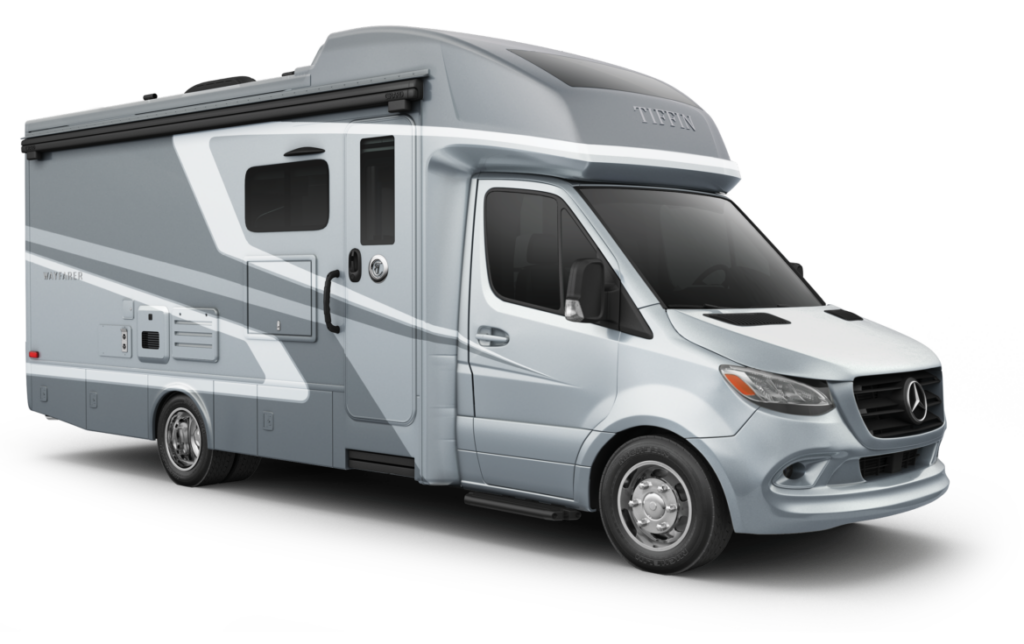
$2,500 Cash Prize: Our Winner Has Been Drawn!
Click to find out who the lucky winner of our $2,500 cash prize winner is from the Bigger & Better at Bucars RV Sale!
Pre-Order Your 2024 Model Today
Now taking pre-orders on 2024 models from our leading selection of Manufacturers. Order now for spring delivery.
Pre-Owned Inventory, Backed by Bucars RV.
Browse pre-owned RVs and find the RV of your dreams this summer. Each pre-loved RV is backed by Bucars’ Certified Pre-Owned stamp of approval.
Check Out the Clearance Corral, New RVs Added!
New RV’s at clearance prices, round up a great deal from our Clearance Corral today.
Raptor Ridge RV Resort & Bucars RV Centre
Experience a newly built RV Resort minutes from downtown Drumheller. Titled lots are selling now.

Fly & Buy Appointment
" * " indicates required fields


Pop Up Camper vs Travel Trailer: Why We Got A Pop-Up!
By: Author Brennan Valeski
Posted on Last updated: September 16, 2021
Categories Auto & RV , Pop Ups , Travel Trailer
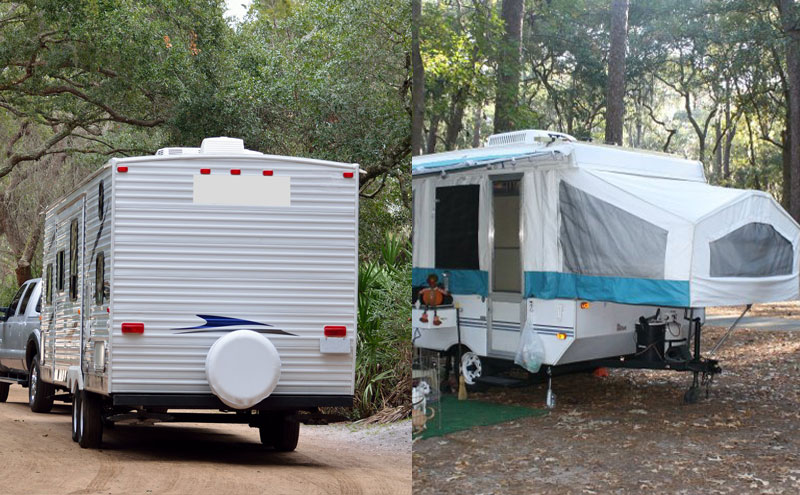
I remember back when I was a teenager and my parents faced the tough choice between a standard travel trailer or a tent trailer. I traveled to every single place with them, learning all about the decision making process. We also considered some hard side travel trailers with canvas pop outs, also known as hybrid trailers.
For most, I would recommend a pop-up tent trailer as it's much less difficult to store and easier to tow. If you need something larger, would like a shower and bathroom, or have a larger budget, then a travel trailer is a good option as well.
We decided to go for a pop-up tent trailer, so I figured I'd share some of the pros and cons of each option we went through to pick the best camper for our family.
Tent trailers feel more like camping
A common negative to traditional travel trailers is that they can feel like you're in a house or apartment, and not in nature enjoying the beautiful weather.
Due to the construction of a travel trailer, you're limited to how many windows you can open to create a cross breeze. Whereas with a tent trailer, you can open all the canvas and let tons of fresh air inside.
However, you could also go for a hybrid trailer with canvas sides if this is something you wish to do. Many times I'd find myself going outside and riding my bike to enjoy the weather. This is really only an issue when doing activities inside the camper. Not to mention, a pop-up camper will feel more cozy inside due to it's compact design.
Tent trailers are much easier to store
The neighborhood we lived in, like many places, did not allow for trailers to be stored on property behind the side fence. Therefore, your only option is to pay for trailer storage when you're not using it.
With a tent trailer however, it's got such a low clearance that it can fit low under the fence to where the HOA would never find out. We were even able to fit and store our pop-up inside the garage to keep it sheltered from weather. This also saves time from having to drive to a storage facility for pick up.
Travel trailers are much more waterproof
When camping inside a conventional travel trailer, it's like staying in a small hotel. This home on wheels protects you from all the rain and weather, and you'll stay quite dry.
A well kept tent trailer will also keep you dry, yet the canvas walls do tend to condensate the water from outside. This causes corner areas around the bed frames to get wet if they touch the walls. It's not a huge issue, yet this does mean that you'll have to air out your camper to dry before closing it back up when you get home.
Tent trailers weigh much less
A tent trailer can weigh about 2,500 pounds where a similar travel trailer may weigh up to 4,500 pounds. We were actually able to tow our Rockwood Freedom with a van!
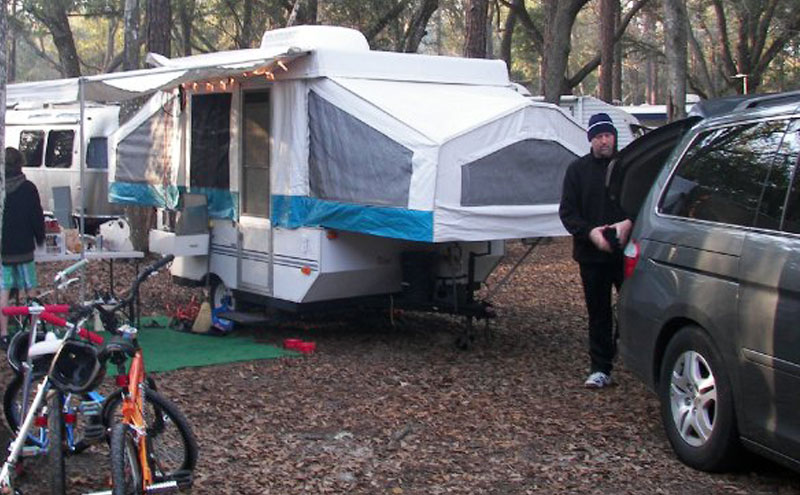
The van we towed it with was a 2007 Honda Odyssey for those wondering. If you don't have a truck to tow a heavy camper, this is a great option. That's my dad opening the hatch to the right. Which leads to my next point, if you plan to use a van you'll have all that extra covered rear storage right in your vehicle.
The main reason why tent trailers weigh much less is due to their canvas sides. They also don't have as many wood cupboards or amenities that add to the weight.
Being able to tow our camper with a van also allowed us to drive more people when going on outdoor excursions. Our family friends in many cases would ride with us since they were limited to driving trucks with their travel trailers. This also made longer road trips to different states a whole lot more comfortable.
Tent trailers are easier to back up
One of the most frustrating parts of camping is to get your trailer to back up "just right" to fit into the campsite. With a pop-up camper, your job is much easier. You won't be moving as large of a trailer so it's got less room that it takes up on the site. That means less trees and other objects to worry about when backing up.
In addition, when you're towing a tent trailer you can typically see right over it. The only time you can't is when the ac unit is in the way (which doesn't happen too often).
Some people also install an RV back up camera or their travel trailer comes with one. This does help for larger trailers and campers, yet it's no silver bullet. You'll still have a tougher time in most cases if you have a larger camper.
Travel trailers are more convenient to pack/unpack
A major benefit to a travel trailer is that you can leave a lot of your camping supplies inside the camper. This makes packing and unpacking a whole lot easier since you already have most of your stuff ready to go once you park on the campsite.
With a pop-up camper, we'd spend several hours preparing our camping checklist and making sure we had everything packed perfect. Then once we got back home it would take a couple hours to clean out the van.
Traditional trailers have a lot more storage inside than a tent trailer. Not to mention, once you're at the campground you park it and unload right away since you don't have to pop it up. This makes going for a quick weekend trip a lot more feasible, with less preparation required in advance.
This is really the #1 drawback to owning a tent trailer for my family.
Tent trailers are a lot cheaper
The cost of a tent trailer will be at least $10,000 cheaper than a travel trailer when new. That's a large difference in the amount of money, so you'll have to make sure that a travel trailer is really worth it for you. We were able to get our pop-up camper used for a really good deal on Craigslist.
In addition, tent trailers will be less expensive to insure since they have less parts that can break. They also save money in fuel since they weigh much less and are more aerodynamic on the highway.
Few pop-ups have a bathroom or shower
This one is actually both a pro and con at the same time. Some pop-ups will have a bathroom or shower, typically only behind a curtain. It's not really too fun having little to no privacy when going to the bathroom. Or if you don't have one, this means you'll have to walk over to the campground bathroom when you gotta go.
It's usually not too bad to go to the campground bathrooms as long as you're in a state or national park (they're usually cleaner). We would try to grab spots somewhat close to the bathroom to make it less of a walk.
The major upside to not having a bathroom is no dump station lines!
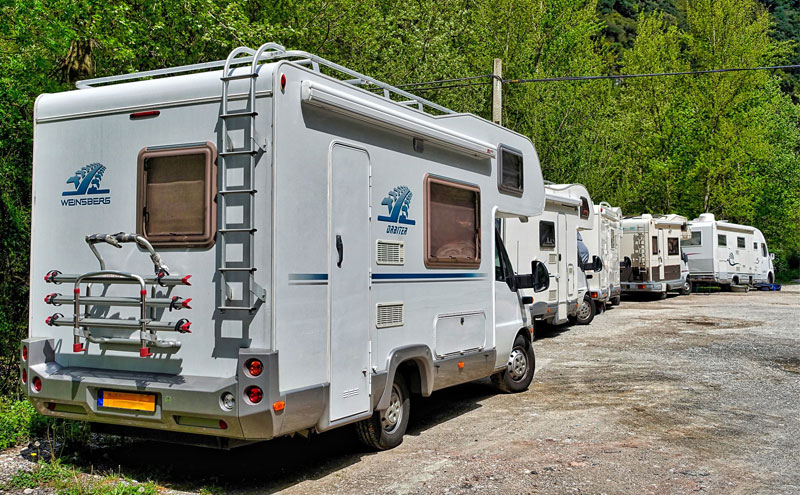
Being able to skip and avoid these long lines of RVs and trailers will save you a lot of time and headaches when leaving your campsite. These lines can sometimes last for over an hour if it's a holiday weekend and everyone is leaving at the same time.
Of course you could also opt for a portable travel toilet to setup inside your camper for when you really gotta go.
We had a great experience using this Camco Standard Portable Travel Toilet .
Be sure to grab the holding tank deodorizer , as these toilets do get smelly if the tank is left open. You'll also want to get special toilet tissue as regular toilet paper will clog it up.

To dump these travel toilets all you have to do is detach the tank a pour the sewage into a regular toilet. We would usually avoid number two (other than emergencies) and keep it to only number one inside the tank to make it easier for dumping and cleaning.
If you're camping with girls, having a portable toilet will also be very useful as they can't really pee in a bottle like boys.
Travel trailers have more space (in general)
This is not always the case depending on the trailer. I've been in quite a few tent trailers that are very spacious, yet in general travel trailers have more space. You also have more room for movie nights and having other people stay over.
When preparing meals with a family of four it was somewhat challenging and cramped at times inside the pop-up camper. Many times we would eat outside to enjoy the weather, so this was really only a problem when there was bad weather.
Traditional trailers provide more insulation
The hard walls of a travel trailer offer more privacy and insulation inside. Now a tent trailer does keep in cool air and heat decent, yet not as much in comparison. When it got really cold or hot inside, it does not maintain the temperature as well as travel trailer counterparts.
Using a tent trailer is still much better than a traditional tent since you're off the ground. However, many times I'd still find myself curled up inside a sleeping bag despite being on a pop out bed.
Longer setup time on a pop-up
This has got to be the worst part of a pop-up camper is the setup time. When you get to a campground with a travel trailer you park and you're done. With a tent trailer, you've got to crank up the top (if it's not electric), pull out the beds and support them, and setup the kitchen.
This aspect also adds the most time to unloading and loading your pop-up camper. The added stress of reaching a certain check out time can be frustrating with the extra campsite procedures. This means you'll have to start packing up to leave a lot sooner than other campers.
Travel trailers offer better security
When you go hiking or biking on trails and leave your campsite you'll lock up the door. The hard sides of a travel trailer prevent anyone (or animals) from getting inside when you're not there. Not to mention if you're traveling with someone who doesn't love camping, this will make them feel a lot safer.
With a tent trailer the lock on the door is there more to deter potential intruders. If someone wanted to get inside they could just lift the Velcro canvas on the camper. Then, unlock the door from the outside by reaching inside.
Most campground are filled with families and pretty safe, so this isn't something you'd really have to worry about. If you have any valuables you could also choose to lock them inside your vehicle.
Pets work better in a travel trailer
When going on camping trips we would always bring our two dogs Draco and Daisy.

The only downside to having pets in a tent trailer is that if you leave them at the campsite and they bark, everyone nearby could hear them. This can be annoying to fellow campers and can even get you kicked out of the park. Many campgrounds do not allow unattended pets in pop-ups also for the fear that they could get out.
With a travel trailer, the walls are much more soundproof (and hard) which makes it easier to leave your dogs at the campsite. If your dogs are small and quiet (like ours most of the time) it wasn't usually an issue. Regardless you'll want to at least check the camping restrictions if you have pets.
To Conclude
Choosing between a travel trailer vs tent trailer can be a tough decision. You will have to decide what will work better for your family. For us, it was better to choose a pop-up camper for easier storage, saving money, and being able to tow it with our van.

Tent Vs. Trailer Camping: Which One Should You Choose?
by harris | Camping
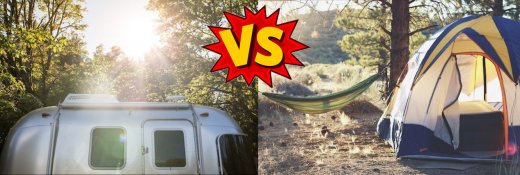
Camping is a lot of fun, no matter how you do it. Whether you’re roughing it in a tent or opting for the more luxurious choice of a trailer, you’re going to have a great time experiencing the great outdoors.
That being said, there are quite a few key differences between camping in a tent and camping in a trailer that you need to consider before making your trip.
In this article, we are going to go over the pros and cons of tent camping and trailer camping so that you can decide which is best for you.
The Lowdown: Should You Choose a Tent or a Trailer?

This article is going to get into the nitty-gritty of the tent/trailer debate. However, I want to start off by giving you a quick summary of what each camping style has to offer.
You should choose a tent if you are looking for the full camping experience, are looking to spend less money on your camping trip, and want to be able to camp anywhere.
You should choose a trailer if you want to be more comfortable during your camping trip, you can afford to spend a lot more money than you would for a tent, and you don’t mind missing out on some of the joys of roughing it like sleeping outside and not having electricity.
Tent Camping Pros and Cons

Tent camping is the most popular form of camping. There’s something special about getting out into nature and being away from it all. It awakens a sense of adventure, and you can go out to places where only those who are willing to rough it can make it to.
This section is going to discuss the benefits and downsides of tent camping.
Tent Camping is Affordable and Lightweight

One of the advantages of tent camping is that it is available to everyone.
Anyone can get set up with basic camping gear for about $200 or even less. The two basic things you need are a tent and sleeping bag.
Once you’ve covered these two essentials, you can then add other items to your camping setup, such as a sleeping pad, camp stove, cooler, flashlight, shovel, and cooking utensils. Don’t forget to bring food and water with you too. You should also make sure to bring the right clothes for the occasion.
In addition to being relatively cheap, most tent camping equipment is also light and easy to pack. Some lightweight camping setups weigh less and ten pounds. This is a big plus if you plan to hike long distances to your campsite.
You Can Camp in Places a Trailer Can’t Access
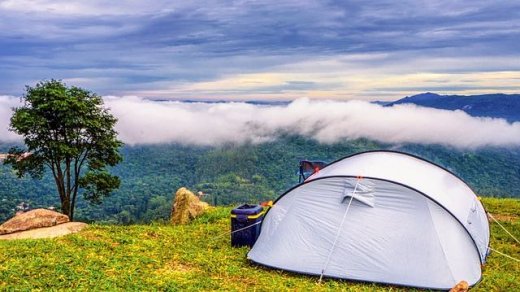
The ability to camp anywhere in the wild is the biggest advantage of tent camping. Sure, camping in a trailer is comfortable, but can you bring your trailer to the top of a mountain? I don’t think so.
When you’re camping in a tent, you can stay in a developed campground with other campers or go out into the wild and find your own spot with no one around for miles. You’re not limited to developed campgrounds that have the right facilities for a camper.
Let’s say you want to camp in the mountains. Any mountain or hilly terrain is going to require you to have a tent if you really want to explore and camp in a special place.
There will be places for trailers at the base of the mountain sometimes, but if you want to wake up to a truly gorgeous sunrise high above the earth, you’re going to have to hike up and set up your tent.
There’s Something Special About Roughing It
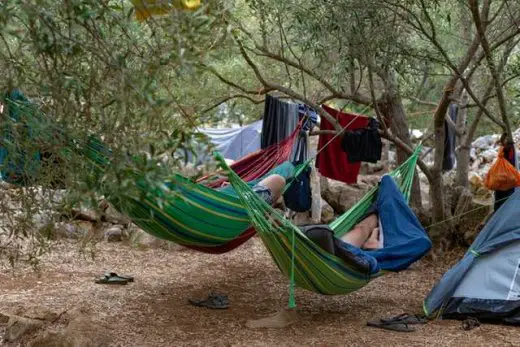
In the modern age that we live in, our connection with the way humans lived in the past is almost gone.
Camping in a tent allows you to reconnect with your primal side. When’s the last time you caught the sunrise or gazed up at a starry night’s sky and saw a shooting star?
These activities are becoming all too rare in this day and age. Tent camping enables experiences that can really light up the soul and give us a sense that there is more to existence than our 9-5 jobs and living comfortably.
You are forced out into nature when you camp in a tent. Sometimes the transition out of comfort is hard at first, but it is worth it for what you can experience.
Tent camping also won’t give you the temptation to hide from the elements the way an RV or a trailer can.
Anyone who has been on a rainy camping trip knows what a bummer it can be. They may also know the joy of bonding with your loved ones, playing cards in a tent all day while escaping the miserable rain.
You can have a similar experience camping in a trailer, but it’s not quite the same. There is also the chance that you’ll just end up watching movies all day if your camper has a TV.
No Distractions
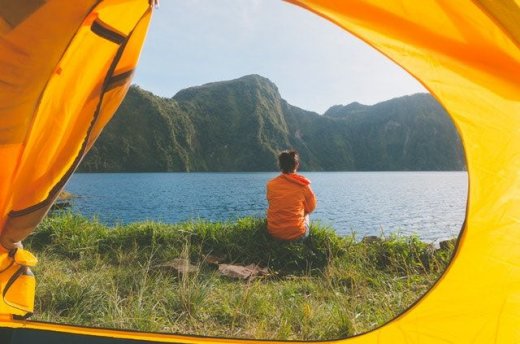
We live in a world of endless distractions. Between our phones, TV, the internet, and having to keep our lives running, our attention spans have been spread thin.
To add to this, we are also in the middle of a mental illness epidemic, and certain psychological disorders are being attributed to our use of technology such as smartphone addiction and nomophobia.
Tent camping gives us a break from the constant distractions that plague our modern existence. Be careful, though; excessive smartphone users have been observed to show withdrawal symptoms when separated from their smartphones. It is also possible to retreat from distractions with a trailer or RV, but it’s not as easy. Having electricity and other amenities such as TV and satellite internet may tempt you.
You have to get away from it all when you are camping in a tent with no electricity. This may be unpleasant at first, but trust me, it’s worth it.
There is so much more to life than using our phones or watching TV. It may seem boring at first because of the lack of constant stimulation, but after a few days, you’ll get used to it and even more in tune and connected.
Rather than watching Netflix in the evening, tent camping forces you to sit around the fire pit and watch the flames dance and the embers fly. You can tell stories, have fun with those you are closest to, and even lay out under the stars when it’s a clear night.
Not Ideal for Road Trips
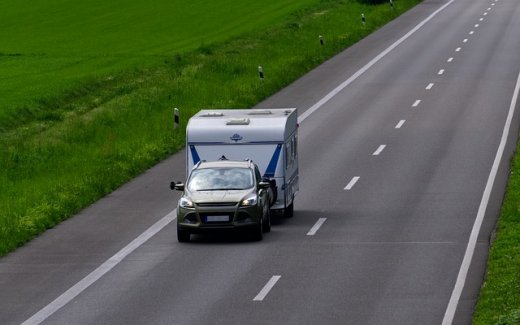
Tent camping is not ideal for road trips. This is one of the biggest disadvantages of this way of camping.
Road tripping is such a fun way to travel, especially when you have a good chunk of time to devote to it. Don’t get me wrong; it is still possible to road trip and sleep in a tent every night.
It is going to be a hassle, however. Setting up your tent takes up a lot of your time and energy every night. You will also be limited in the places you can visit and things you can do if you have to find a place to pitch your tent every night.
You will have to avoid cities completely, and you won’t be able to sleep at rest stops or travel centers the way you can in a trailer or RV.
However, you might be able to find a new campsite at every new location on your road trip. It is definitely possible if you plan ahead. This will get tiring, though. There is a good chance you will end up staying in hotel rooms some nights instead of campsites, which can make your road trip significantly more expensive.
The way to get around this is to have a vehicle that you can put a temporary bed in the back of. Vans, SUVs, hatchbacks, and trucks with camper shells are all great vehicles for sleeping in. This will allow you to sleep in rest areas and in parking lots when you are in urban areas and then sleep in your tent when you are camping.
Less Food Storage

Less food storage is another downside to tent camping. You will have to bring less food with you because you might have to carry your food to your campsite. Most of your meals will also be plain and simple, so make sure you don’t forget your hot sauce!
It is possible to camp close to your car at certain campsites. You can bring a lot more food in this case and still eat pretty well. However, it still won’t compare to a trailer or RV where you will have a refrigerator, oven, stovetop, and maybe even a barbecue grill to cook with.
Tent Camping is a Lot of Work

There is a lot that goes into camping in a tent.
First of all, you have to have all your gear packed up and ready to go. Then you have to haul it all out to your campsite and set it up. Packing up can also be a hassle when you’re ready to move to your next campsite or go home. If conditions were wet, your gear might be soaked, making it even more of a pain to pack up.
Trash is also an issue. Whatever you brought with you needs to be packed out. You’ll need to bring bags for this purpose, and you’ll need to save enough space in your pack to place the filled bags in.
Going to the bathroom will be more difficult as well. Number two in the wild can be quite the task. It is important to bury your waste so that dogs or wild animals don’t get into it and make a mess.
Doing this can be quite a hassle in the middle of the night. Who wants to leave a warm and cozy sleeping bag to go out into the cold dark night?
Trailer Camping Pros and Cons
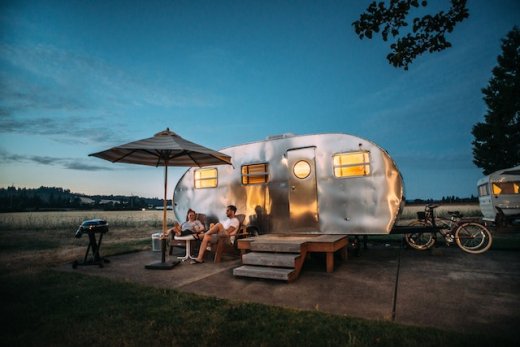
Trailer camping is the much more luxurious version of camping. It allows you to bring the comforts of city living with you into the wild to explore nature.
Some people say that trailer and RV camping isn’t real camping. However, this view is pretty limited and probably comes from people who don’t know how to do trailer camping the right way.
Trailer and RV camping can undoubtedly limit your trip in certain ways and add a lot of extra distractions. On the other hand, a trailer or RV can also add a lot of extra options and comforts to your camping trip.
In this next section, we’re going to go over the pros and cons of camping in a trailer or RV.
You Can Take the Comforts With You
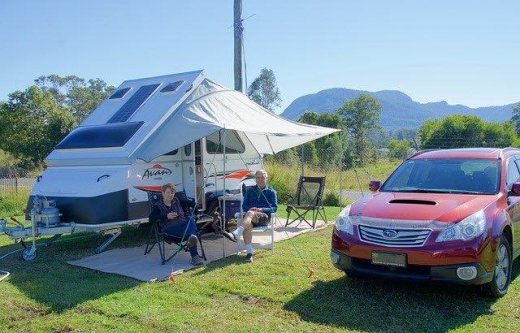
Let’s face it; not everyone wants to rough it.
Some individuals have no interest in sleeping in a tent and never will. Others are simply scared of sleeping outside. There are bears and mountain lions and coyotes and bugs and raccoons and all other manners of wild pests that might disturb you or even put you in danger.
Any seasoned camper knows that these fears are usually overblown, but they do have some merit as there are freak accidents that do happen.
Camping in a trailer or RV might be the first step in overcoming one’s fears of the great outdoors.
There are also elderly people who developed a love of camping when they were young and strong but no longer have the vitality to carry heavy gear and sleep on the ground. A trailer or RV will allow them to continue to get out into nature many years past the time that their bodies will allow them to camp in a tent.
Great for Group Camping Trips
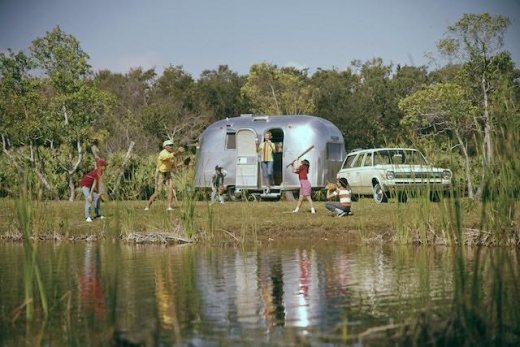
Going for a weekend trip with a big group of friends or taking a week-long family reunion camping trip? Having an RV or trailer along can make the experience more comfortable and more fun for everyone.
Some of your group may still have to camp in tents, but having a trailer or RV will give you a lot of extra options.
First of all, you’ll have a toilet that everyone can use. The toilet may only be able to accommodate a certain amount of people, but you’ll at least have it for emergencies or if anyone gets sick. The rest of the time, people can go number two the good old fashioned way.
You’ll also have a shower that can be shared. You may have to ration out your showering water if your campsite does not have hookups, but having access to a shower is a luxury that cannot be overstated when you’re out in the wild.
Mealtime is also going to be a blast if you’ve brought your trailer along. Bring a barbecue with you, and everyone will have a good time grilling. You won’t have to worry about grabbing coolers and ice if you bring a refrigerator along.
Also, if you have members in your group who are not as comfortable with camping, they can still make it to the camp out because you’ll have a place in the trailer or RV for them to sleep. Those in your group who are more accustomed to roughing it can stay outside the camper in tents.
Eat Like a King

Your mealtime options will open up greatly with a trailer or RV. You are often limited to granola, sandwiches, and hot dogs when camping with a tent.
However, you can bring whatever food you like when you go camping in a trailer or RV. The oven and stovetop will allow you to cook almost anything. You could even bring along a slow cooker if you wanted to get fancy with it. Start your meal in the morning and come back from your day of outdoor fun to a nice slow-cooked meal.
I highly recommend bringing a barbecue grill with you on your camping trip. Grilling up burgers at your campsite is a lot of fun and makes for a delicious meal.
It should also be mentioned that your food will be much safer in a trailer or RV. Bears and other animals getting into your food can be a real problem when you are tent camping. Sometimes these animals will even tear through your tent to get to the delicious human food. This is not a problem when you have your food safely locked up inside your trailer.
Accommodate Different Standards of Comfort
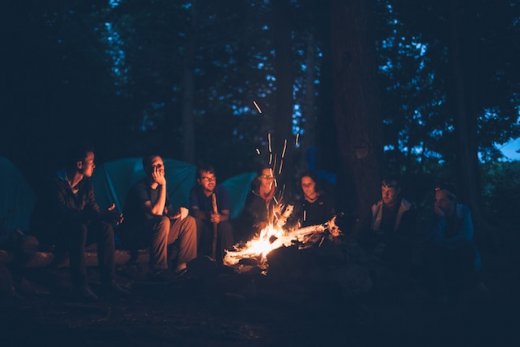
You can accommodate different standards of comfort with a trailer or RV. Some people like solo camping, but let’s face it, camping with friends and family is a lot more fun.
A trailer or RV will allow you to bring along your less hardened campers without too much trouble. Most trailers and RVs can sleep many people. Commonly, you can fit at least six people.
Let’s say you love the great outdoors, but your wife or husband isn’t on board. Or maybe you have kids who aren’t ready to go on a hardcore camping trip.
Purchasing a camper will allow you to go on outdoor excursions that you love and bring the family along as well. They can hang back at camp while you’re out roughing it.
You might also be an avid camper that would really like to bring your friends camping with you. Your less outdoorsy friends will be much more likely to come to your weekend camping bonanza if you’ve got a trailer for them to hang out in.
Less Work Setting Up Camp
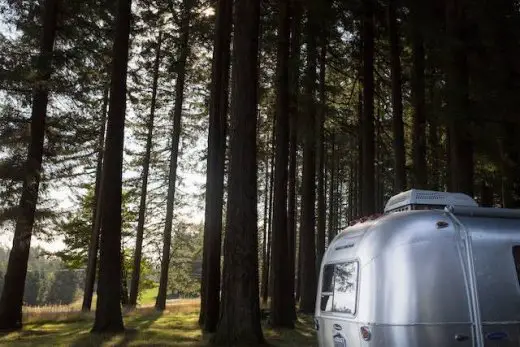
Setting up camp is much quicker and easier than setting up your tent and getting camp ready.
With certain campers and level ground, you don’t have to do anything to set up your camp. Just pull up, and you’re ready to start having fun.
You may need to level your trailer or RV with jacks or leveling blocks if the ground is unlevel. If you have a really fancy trailer or RV, it may take a little time to set up the pull out sections and get everything hooked up and squared away. This usually won’t be more than 30 minutes to an hour.
Great for Road Trips
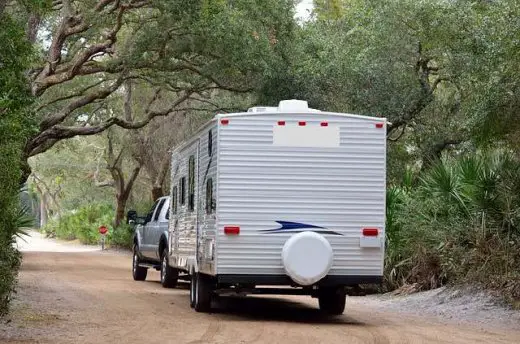
Trailers and RVs have a huge advantage over tent camping when it comes to road trips. There are so many more places that you can park and sleep for the night when you have a trailer or RV. Most cities will also have places that you can park. Walmart and Home Depot are two examples.
Rest areas will also be available for you to park in and sleep overnight. You will be able to save money this way and sleep comfortably in a space that you are familiar with. This is not an option for tent campers who are forced to find a place to camp every night.
You Can Still Tent Camp
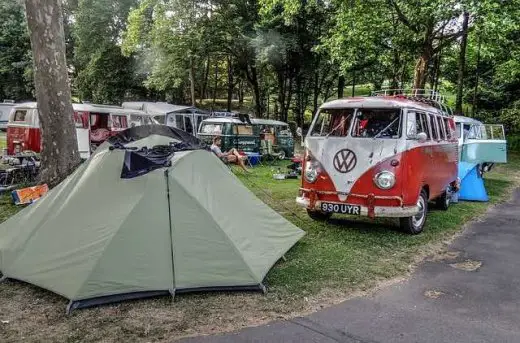
Tent campers that hate trailers and RVs are just jealous. Having a trailer or RV doesn’t mean that you can’t still sleep in a tent at night. In fact, many avid explorers will travel around in their camper and use it as a base camp. They leave the trailer behind to hike to campsites that are inaccessible to a trailer or RV. It really is possible to have the best of both worlds.
Having both a trailer and a tent is ideal when you will be traveling to many different locations on a backpacking tour. This will allow you to go on several different expeditions and also have a comfortable place in between.
A cozy cushy camper where you can relax and watch Netflix is going to be really nice after three days of hiking and roughing it. If you’re going to move on to another adventurous trip, it’s good to have a break in between.
A Trailer or RV Can Distract You From “Real Camping”
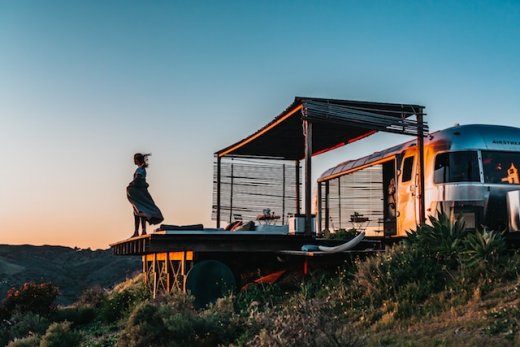
Some people still look down on trailer and RV campers and say that using them is “not real camping.” I want to dispel this myth but also go over why some people have this conception.
As I’ve explained above, it is absolutely possible to go camping in a trailer or RV and still get the full or even an enhanced camping experience.
This article is owned by Recapture Nature and was first published on February 29, 2020
That being said, the trailer or RV may be a trap for some campers. They may end up being held back from getting the full experience. You will not have the option to run away from the wild when you are camping in a tent.
This option will always be available to you if you are camping in a trailer or RV. Less disciplined campers may be tempted to hang out inside and watch movies all day or be on their phones. This would be a shame because there is so much that nature has to offer us.
Some of us are addicted to our modern lifestyles. The modern world has given us so much, but there is also a lot of our human experience that we are now missing because of it.
Going into nature and getting away from modern technology can be very pleasurable and even healing. It would be a shame to miss out on this because you have brought modern technology with you.
Some campers are able to handle having comfort and technology along with them. They are still able to get a full camping experience. Other campers are too addicted to modern comfort and technology to be able to fully settle into the beauty of nature with access to their addiction close by.
This is why some people think of RV and trailer camping as not real. It is because some aren’t able to have a real camping trip with a trailer or RV around.
Your Campsite Might Be Crowded
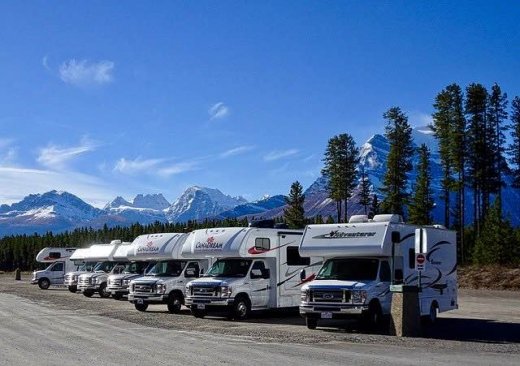
Trailers and RVs are often confined to campgrounds that have the amenities to support them. This is not always the case as many camper aficionados that Boondocking, which means parking your camper in unestablished campsites.
A crowded campsite is not necessarily a bad thing. Having neighbors will give you ample opportunity to socialize and make friends. You might even start traditions where you and your new camping friends meet at the campsite where you first met every year.
For some, however, camping is a way to get away and enjoy peace and solitude. This is going to be harder to do at established campsites. As mentioned above, you always have the option to go boondocking if you want to be alone in the middle of nowhere. You will just have to forego going to the most popular campsites.
Trailer Camping is Expensive

Trailers and RVs are expensive. A new RV can cost between $10,000 and $300,000.
You can always go the used route, but that is risky. A used trailer or RV might break down, and mold is a common problem as well. This article would probably be a no brainer if trailers and RVs were cheap. Of course, you would want to have one for your camping trip. There would be very little downside. That is not the case, however.
There are other expenses besides the cost of purchasing a trailer or RV. Upkeep is important. Trailers and RVs have many different appliances and parts that all need to be maintained. Leaks need to be fixed, and many electrical components are a risk for problems that will need to be fixed.
On top of all that, trailers and RVs need to be taken care of every month. Leaving an RV without checking on it for long periods will attract rodents, mold, and insects. Many trailers have been ruined by neglect.
On top of all that, gas is very expensive. Trailers and RVs can have a gas mileage rating of anywhere between 7-20 mpg. In my experience, most get between 10-15 with the higher mileage trailers and RVs being very expensive.
Conclusion
Tents and trailers both have their benefits and downsides. The mode of camping you choose will depend on your outdoor preferences and your budget.
If you enjoy roughing it and don’t want to spend thousands of dollars on camping gear, then tent camping is your best bet. However, if you prefer comfort and have money to spare, trailer camping is the better option.

Hi I'm Harris, the guy behind Recapture Nature. I love the outdoors since I was a child. I remember having the most fun when outdoors hiking, rafting, visiting caves or camping as a child. continue reading..

Rooftop Tent Vs Camper Trailer? 21 Pros & Cons
It can be challenging for camping enthusiasts to decide which camping sleeping accommodation is the best fit, but luckily for everyone, there are numerous options available on the market today.
Two of the most popular options amongst many campers are rooftop tents and camping trailers. However, many of us wonder what is truly the difference between the two and which is ultimately better?
By conducting some research, we have discovered a few of the pros and cons of rooftop tents and camping trailers, and we aim to help you decide which is the best for you in the rooftop tent vs. camper trailer battle:
Here’s The Difference Between A Rooftop Tent & Camper Trailer:
A rooftop tent is designed to be fitted to the top of a vehicle while a camping trailer is hitched to a vehicle. Rooftop tents usually sleep 1 to 4 people, while it will depend on the type of camping trailer you have how many people can sleep inside it. Additionally, camping trailers usually have more features.
Table of Contents

Online Roof-Top Tent Stores:
Pros of a rooftop tent:.
Many positives are surrounding owning a rooftop tent.
Below we will look at four of the most relevant positives associates with rooftop tents:
1. Above Ground Camping:
One of the biggest positives of owning a rooftop tent is that you can set up your tent above ground.
This provides an element of safety out in the wild that you usually wouldn’t have when using a ground tent.
Not only will you be safer from dangerous ground animals, but you also won’t have to worry about pitching a tent on level ground.
2. Internal Storage:
Another big benefit to rooftop tents is that you can often store clothing and bedding in the tent when camping.
As long as you adhere to your permissible load limit, you can pack as many lightweight items as you can.
3. Affordable Camping & Versatility:
Rooftop tents range in sizes and prices.
They are often more affordable than other camping accommodation options, and there is usually one to suit any budget.
4. Easy Setup and Takedown:
Rooftop tents are relatively easy to set up, with many manufacturers boasting quick and easy setup times.
You can purchase a rooftop tent that sets up in a few minutes or even sixty seconds.
5. Easy Maintenance:
Maintaining a rooftop tent is simple and easy to do, and mostly inexpensive.
The only maintenance required is lubricating the moving parts frequently and annually treating the tent’s canvas with Scotchguard.
Cons of A Rooftop Tent:
Now that we have looked at a few key positives, we will look at three negatives associated with rooftop tents:
- Although they are straightforward to set up and take down, at times, they can be a hassle. Once you have set up your rooftop tent, you can’t drive anywhere with your vehicle, and you would have to disassemble it before moving to your next camping location or visiting the shop.
- Rooftop tents tend not to have as much space as other forms of camping accommodations. They generally only consist of one room and usually only sleep a maximum of four or five people. There is also usually not that much space for gear and other camping necessities.
- This one might not bother many used to using tents for camping, but rooftop tents do not have toilets, nor do they have space for a toilet.
- Climbing up and down the ladder can become tedious and tiring, and there is the chance you could fall and hurt yourself. It can become a hassle having to climb up the ladder in the middle of the night after going to the bathroom.
- Some rooftop tents retain moisture, which leads to a damp feeling throughout, which is unpleasant to occupants. Additionally, if the tent gets wet, you will need to wait for it to dry or dry it yourself before packing it away as the moisture can lead to damage.
Pros of A Camper Trailer:
After looking at the negatives and positives of rooftop tents, you’re probably eager to learn the positives of camper trailers.
Let’s have a look below at four positives associated with camper trailers:
1. Multiple Features & Use:
The biggest pro for most camper trailers is that they include many features.
Whereas with rooftop tents, you might only have a built-in bed and a few accessories, camper trailers can house much more. Often in a camper trailer, you can have a fridge, a stove, a bed, and even a small bathroom area.
It will largely depend on the size and how much you want to pay, but there are many more features that you can have.
2. Durable & Extreme Camping:
With a camper trailer, they are built to endure a variety of conditions and are extremely durable.
You can use the trailer on rugged terrain and in cold climates.
3. Lightweight Towing:
You might think that camper trailers are inconvenient because they have to be towed.
This isn’t the case as they are lightweight and easier to tow than caravans and travel trailers because they are more compact.
4. Easy Camping & Storage:
Camping is easier as you can unhitch the trailer and leave it at your campgrounds whenever you need to use your vehicle for other excursions.
You will have more storage and be able to store gear, bedding, and clothes in your camper trailer.
Cons of A Camper Trailer:
As with many things, there are a few negatives involving a camper trailer.
Below we will look at the main cons associated with this form of camping accommodation:
- Camping trailers will result in your vehicle using more fuel as it will need to pull the weight of the camper trailer.
- Many camper trailer models are pricey and can cost you anywhere between $5000 and $30000 depending on the features and amenities it includes. Usually, a camper trailer is going to cost you more than a rooftop tent .
- Maintenance can be costly, and it can be expensive if you require any custom modifications.
- Camper trailers often have a longer set up time than rooftop tents, and this can be a hassle for some people who want a camping experience without much fuss.
- Some camper trailers don’t do that well with rain or wind.
So Which Is Better A Rooftop Tent Or A Camper Trailer?
Deciding whether a camper trailer or rooftop tent is better will ultimately depend on your preferences and needs.
Both have their unique positives and advantages, while they both have negatives associated with them.
For families, a camper trailer might be better suited; however, there are rooftop tents that can accommodate up to a family of four.
It’s best to consider you and those you will be camping with and what amenities and features you need before deciding which is ultimately the best choice.
The Best Rooftop Tents To Buy:
We’re going to look at two of the best rooftop tents!
With the large variety available, we’ve whittled it down to two rooftop tent brands that are guaranteed to give you value for money.
1. Roofnest Sparrow

Should you be looking for a rooftop tent that can sleep two people and be utilized on most vehicles, then the Roofnest Sparrow might be worth considering.
This rooftop tent has a unique square design, which makes it stand out amongst the competition. It is also relatively affordable at a rough price of $2900.
The interior is fairly spacious, and the tent itself is lightweight at only 130 pounds. Inside, the tent is 83 inches long by 49 inches wide, and there is a 7.5 ft ladder that attaches to the side of your car so that you can easily access the rooftop tent.
Additionally, due to this tent’s pop-up style, you can easily set it up and collapse it within a few minutes.
Roofnest uses only the best materials in the construction of their rooftop tents, and as such, the Sparrow is durable and long-lasting.
It is made with an ABS fiberglass shell and has quilted fabric on the inside for adequate insulation. Moreover, the canvas of the tent is waterproof as well as mildew and UV resistant.
You will have a custom built-in mattress that is roughly 3 inches thick for that added comfort, and for breathability, there are 4 sides to allow air to flow throughout.
2. Ikamper Skycamp 2X

For those looking for a rooftop tent that can be set up quickly, the Skycamp 2X by brand Ikamper could be ideal for you.
This rooftop tent can sleep two adults or up to three children comfortably with the large interior space. You can look at paying roughly $3200 for the Skycamp 2X, but for the quality, you receive it’s well worth the money spent.
Some rooftop tents have an issue with causing a higher fuel consumption, but this is not the case with the Skycamp 2X.
This rooftop tent is designed specifically to be aerodynamic and lightweight so that you can travel without being too concerned with how much gas you are using.
The tent is also customizable and comes in a number of different colors. Additionally, you will find that there is also a built-in 1.8-inch high-density foam mattress, and the interior features an aesthetically pleasing world map graphic.
Inside the rooftop tent, you will see that the Skycamp 2X has been designed to last with the breathable 300gsm poly-cotton canvas, honeycomb aluminum panel flooring, and waterproof rainfly.
As an added benefit, the shell of the tent is double layered FRP with 1-inch air insulation.
Top 5 reasons to buy a camper trailer
Roof Top Tents Vs. Campers: The Pros and Cons
Click to share...

- Types Of RVs
- Tow Vehicles
- Maintenance & Repairs
- RV Power & Electrical Supplies
- RV Appliances
- Living In An RV
- Travel & Destinations
- RV Gear Buyer’s Guides
![Top 7 Best Lightweight Pop Up Campers in [currentyear]: Small Tent Trailers and RVs for Easy Travel 1 Lightweight Popup Campers You Can Pull With A Small Tow Vehicle](https://www.rvingknowhow.com/wp-content/uploads/2021/01/Lightweight-Popup-Campers-You-Can-Pull-With-A-Small-Tow-Vehicle.jpg)
Top 7 Best Lightweight Pop Up Campers in 2024: Small Tent Trailers and RVs for Easy Travel
- Last Updated: February 23, 2024
- 15 minutes read
Finding the best lightweight pop up campers is an art and a science, blending portability with the comfort of home.
Those in search of the perfect pop-up camper are often trying to strike a balance between ease of towing and ample amenities .
As an RV enthusiast who has tested dozens of models, I’ve personally experienced what makes or breaks a great pop-up camper.
Through my adventures, I’ve gathered unique insights into the nuances of what makes the ideal lightweight camper for both novices and seasoned travelers alike.
After extensive testing, I’ve found that the Jayco Jay Sport Pop-Up Camping Trailer sets the bar high, offering a remarkable combination of lightweight aluminum construction , expandability, and essential amenities, making it the premier choice for those in need of a versatile, easy-to-manage RV solution.
Based on my experience, the top pop-up campers are:
- Jayco Jay Sport Pop-Up Camping Trailer : Best overall for its balance of weight, expandability, and comfort.
- Coachmen Clipper Sport 860QS : Ideal for space and storage, perfect for family camping.
- Forest River Flagstaff 205 Folding Pop-Up Camper : Excellent choice for an expandable, easy setup experience.
- Livin’ Lite Quicksilver 8.0 : Top pick for adventurers seeking ultra-light, flexible accommodations.
- Opus Off-Road Air Pop-Up Camper : Great for off-road enthusiasts, offering durability and comfort in rugged conditions.
- ALiner Expedition A-Frame Camper : A standout A-Frame option providing quick setup and classic design.
- Rockwood Tent 1640LTD Pop Up Camper : Good option for beginners, combining simplicity with essential features.
1. Jayco Jay Sport Pop-Up Camping Trailer
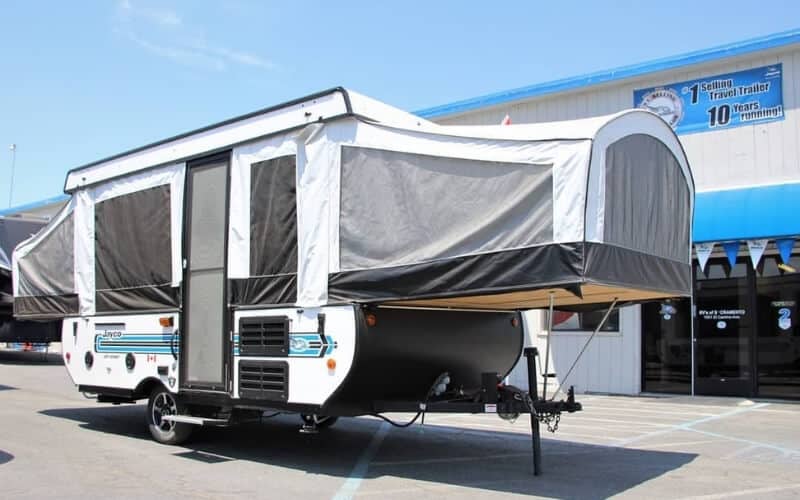
- Dry Weight of 1,875 lbs.
- Payload Capacity of 875 lbs.
- GVWR of 2,750 lbs.
- Hitch Weight of 225 lbs.
- Fresh Water Tank Capacity of 28.2 gallons
- Sleeps up to 8 people
Jayco is known for being one of the strongest names in the RV industry. So, it’s little surprise that they put their best foot forward in designing the Jayco Jay Sport Pop Up Trailer to be light enough to be towed by a mid-size SUV, without having to cut any corners when it comes to comfort and convenience.
The 225-pound hitch weight and 14-inch wheels also help it to tow and track easily behind most vehicles.
The interior of the Jayco Jay Sport is surprisingly spacious for a small popup camper. On paper, you can sleep up to four people.
Though I think 5 to 6 is more realistic, which makes this small popup camper a great option for a medium-sized family that loves to travel light and lean.
The kitchen inside the Jayco Jay Sport includes a two-burner propane stove, as well as a single basin sink, which is supported by the large 28-gallon freshwater storage tanks this camper comes equipped with n the standard package.
There are one or two minor complaints about the Jayco Jay Sport. There is no air conditioner included n the standard package.
Though there s a toasty 16,000 BTU propane heater. There also isn’t any sort of formal bathroom or toilet.
However, there is a 6-gallon hot water heater to supply the sink for doing dishes or washing hands.
Ultimately, the Jayco Jay Sport is meant more for families that want to stay at a full-service campground or RV park, rather than those who love boondocking off the grid for days at a time.
2. Coachmen Clipper Sport 860QS
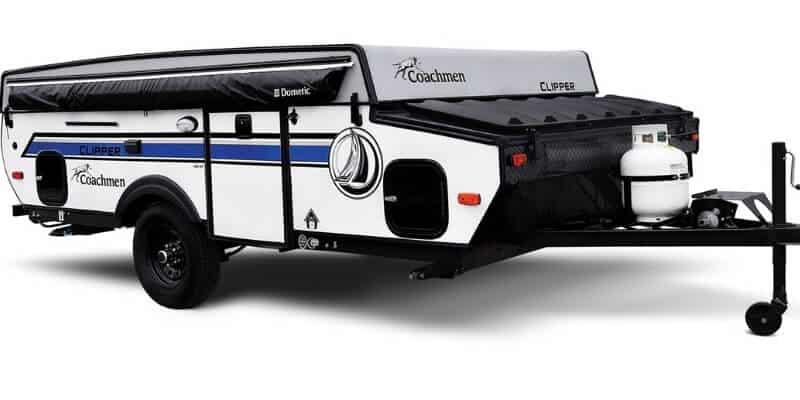
- Dry Weight of 1,577 lbs.
- Payload Capacity of 1,365 lbs.
- GVWR of 2,942 lbs.
- Hitch Weight of 230 lbs.
- Fresh Water Tank Capacity of 16 gallons
- Sleeps up to 3 people
- Heater 20,00 BTUs
Coachmen is another RV industry leader who knows how to properly engineer a versatile popup camper.
To that point the Coachmen Clipper Sport is available in up to 15 different floor plans.
The 860QS floorplan happens to be one of the lightest pop up tent trailer with only a 230-pound hitch weight and a 1,577-pound dry weight. You can certainly tow it behind most mid-size SUVs.
Some people might knock the 3-person sleeping capacity of the Coachmen Clipper Sport 860QS.
Though it’s part of what helps it stay so lgth and nimble, while still being able to haul a ton of gear with the 1,365-pound payload capacity.
This ultimately gears the Coachmen Clipper Sport 860QS to on-the-road tradesmen or a couple that likes to camp with a lot of gear.
3. Forest River Flagstaff 205 Folding Pop-Up Camper
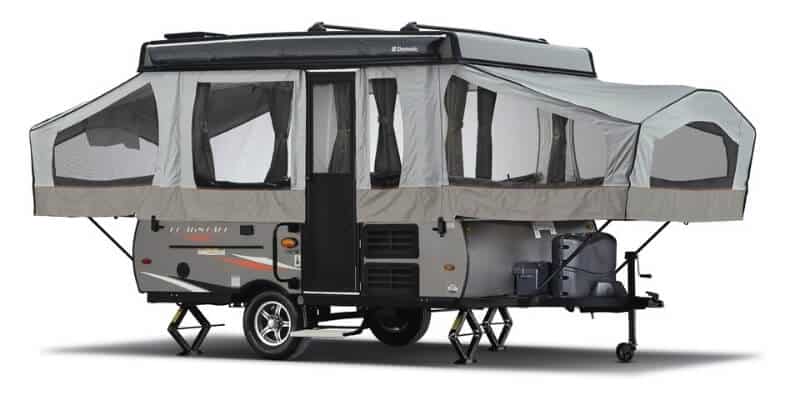
- Dry Weight of 1,997 lbs.
- Payload Capacity of 1,233 lbs.
- Fresh Water Tank Capacity of 26 gallons
- Sleeps up to 6 people
- Air Conditioner Prewiring
The Flagstaff is one of Forest River’s most successful and versatile models. They sell it in a wide range of floorplans, as well as popup and hard-sided camper versions.
This also translates into a lot of optional features and accessories to meet just about any occasion.
The Forest River – Flagstaff 205 is one of their smallest and lightest popup floor plans, while also having a lot of the features and sleeping space to accommodate a traveling family with a mid-size SUV tow vehicle.
The 205 floorplans of the Forest River Flagstaff popup camper can sleep up to 6 people on paper though 5 is more realistic for a family that wants a little more elbow room.
The 26-gallon fresh water storage tank is also a nice touch, for times when you might want to camp off the grid on a little boondocking adventure.
The Forest River – Flagstaff 205 also comes with a 20,000 BTU furnace, which is toasty warm for times when you might want to camp at altitude or use this lightweight popup camper as your base camp on a brisk fall hunting trip.
While there isn’t an air conditioner installed in the 205’s standard package, it does come with air conditioner prewiring, which makes for an easy aftermarket install.
4. Livin’ Lite Quicksilver 8.0
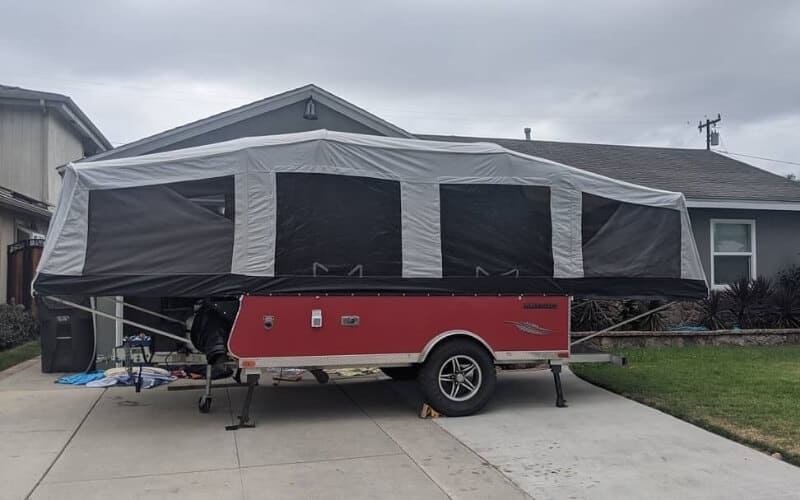
- Dry Weight of 994 lbs.
- Payload Capacity of 1,096 lbs.
- Hitch Weight of 124 lbs.
- Air Conditioner 8,000 BTUs
The Livin’ Lite – Quicksilver 8.0 is a flyweight “Expandable” small popup camper that can be towed by sedans with a tow package, a mid-size SUV, or even a robust small SUV.
The 124-pound hitch weight and a dry weight of just under 1,000-pounds make it very easy for a family to take this lightweight popup camper just about anywhere, with virtually any size vehicle.
One of the things that really stands out with the Livin’ Lite – Quicksilver 8.0 is the fact that it comes with an 8,000 BTU air conditioner installed as part of the standard package.
This is something that’s even rare with some of its larger, more expensive competitors! Some models come with the prewriting to accommodate solar panels for times when you want to boondock and camp off the grid.
When fully expanded two flip-out beds and dinette areas can also be converted into a relatively large sleeping area.
On paper, the Livin’ Lite – Quicksilver 8.0 can sleep up to 6 people, but five would be more comfortable in the real world.
5. Opus Off-Road Air Pop-Up Camper
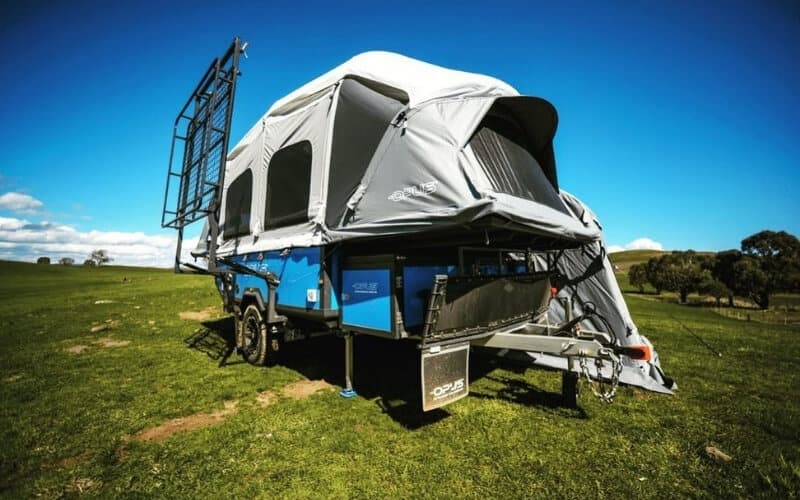
- Dry Weight of 2,870 lbs.
- Hitch Weight of 220 lbs.
- Fresh Water Tank Capacity of 40 gallons
- Slide Out Kitchen & Fridge
With a 2,870 dry weight the 2021 Opus Pop Up Camper does arguably push back on the term “Lightweight.”
Though this small popup camper does only have a hitch weight of only 220 pounds, which keeps it in range for a mid-size SUV with a tow package.
The 2021 Opus Pop Up Camper really does pop up and pop out impressively.
Not only can it sleep up to 6 people n the real world, but this popup camper also maximizes the external space with a slide-out kitchen and refrigerator.
On each end, you get pop-out double beds and the C shaped convertible dinette lounge area also provides a bed that is truly large enough to sleep, two people.
You also have to appreciate the fact that it comes with a 40-gallon fresh water storage tank.
This means it can support you comfortably when camping off the grid for several days at a time.
Though you still should slide the fridge and kitchen sections inside f you are going to be away from the camper for more than an hour or two and there’s any rain in the forecast.
6. ALiner Expedition A-Frame Camper
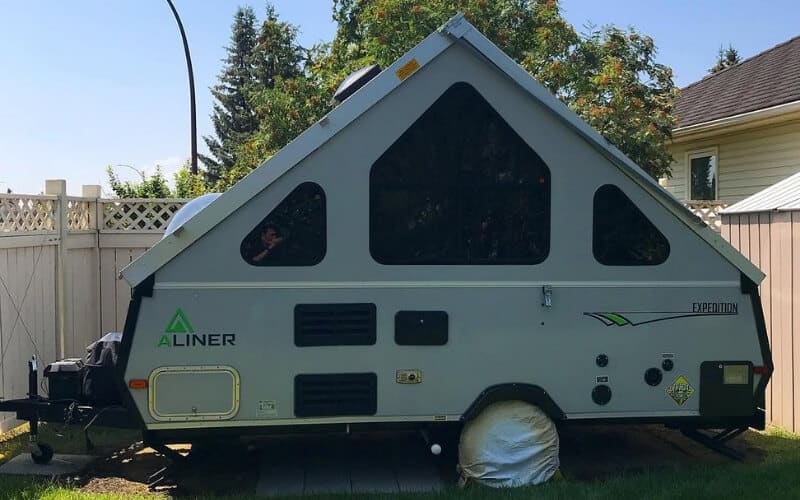
- Dry Weight of 1,800lbs.
- Hitch Weight of 240 lbs.
- Fresh Water Tank Capacity of 11 gallons
- Sleeps up to 4 people
- Cassette Toilet
- 5,000 BTU Air Conditioner
- 16,000 BTU Propane Furnace
The A-liner might not look like your typical “Tent” style popup camper and that’s just fine.
Its non-traditional look means that you get an incredibly stable, compact A-Frame pop up camper that still only tips the scales with a 1,800-pound dry weight and a comfortable hitch weight of only 240-pounds.
All well within the range of a mid-size SUV’s towing capabilities.
You can get the A-Liner with either a sofa or a dinette that converts into a bed. This will allow you to sleep up to four people in the real world.
Beyond the sturdy peaked roof, the A-Liner also stands out from the field, in that it includes a cassette toilet as well as a 5,000 BTU air conditioner and a 1,600 BTU propane furnace.
At first glance, the AC BTU rating might seem a little low compared to other popup campers that tend to have 8,000 BTU AC systems.
Though with the A-Liner you don’t lose as much cold air to the outside environment as you do with a traditional tent-style popup camper.
This also helps save some overall weight in what is essentially a hard-sided popup camper.
7. Rockwood Tent 1640LTD Pop Up Camper
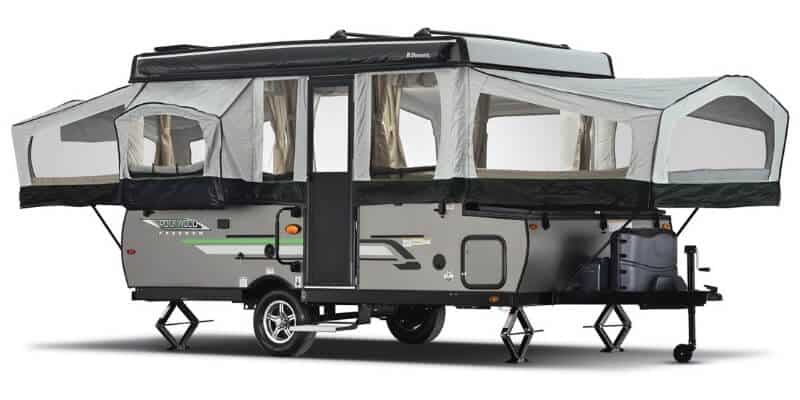
- Dry Weight of 1,465lbs.
- Hitch Weight of 162 lbs.
- Fresh Water Tank Capacity of 10 gallons
- Pre-Wiring For An Air Conditioner
- 20,000 BTU Propane Furnace
As a Forest River affiliate the Rockwood Tent 1640LTD is infused with a lot of quality for a lightweight popup camper that tips the scales at only 1,465-pounds.
With a hitch weight of just 162-pounds, this small pop up camper trailer is light enough to easily towed by most mid-size SUVs.
Yet you don’t sacrifice a lot of interior space for such a light weight racing. You can comfortably sleep five or even six people in the Rockwood Tent 1640LTD.
There are even a 10-gallon freshwater storage tank and a 6-gallon hot water heater to support the kitchen sink.
Since it weighs so little, you can even travel with this popup camper with the tanks full, and not have to worry about the excess weight or the tracking balance of the trailer affecting the ride quality of your tow vehicle.
Frequently Asked Questions
Can a mid-size suv safely tow a pop up camper.
One of the appealing things about pop up campers is that they are relatively easy to tow, which is attractive for families with a mid-size SUV as their so-called “Daily Driver.”
Though there are some popup campers that either has too much hitch weight or dry weight to be safely towed by all but the most robust mid-size SUVs.
For the purposes of this article, we tried to keep an eye out for lightweight popup campers that can be towed by a mid-size SUV with a tow package installed.
Can I Tow A Popup Camper with a Car?
Some small pop up campers are indeed light enough to be towed by a car such as a full-size sedan with a tow package installed.
Though you should double-check your car’s owner manual to make sure it has the tow capacity and suspension to handle towing a trailer.
Some front-wheel-drive cars don’t handle very well when towing something over a 1,000-pound dry weight.
How Much Does A Lightweight Popup Camper Cost?
The price for a lightweight popup camper can vary from as little as $10,000 to over $20,000, depending on the accessories and appliances.
How Does Towing A Lightweight Popup Camper Affect MPG?
Of course, this will vary depending on the tow vehicle, as well as the weight and aerodynamics of the camper.
As a ballpark figure, you can expect to lose around 5 to 7 miles per gallon when towing a small popup camper that weighs around 1,500-pounds.
Do Small Popup Campers Have Toilets?
Larger popup campers sometimes have built-in toilets . Though the fresh and black water storage tanks needed to support a toilet tend to drive the overall gross vehicle weight rating up to the point that it can be a challenge for a mid-size SUV to tow when loaded.
When it comes to small pop-up campers only a handful have cassette toilets with roughly a 5-gallon black water capacity.
Do Small Pop Up Campers Have Heaters And Air Conditioning?
One of the ways some RV manufacturers save weight with a popup camper is to make the AC and heater an optional extra.
Most will put in the prewriting and then you or the dealership can choose to install a propane furnace of an RV air conditioner unit.
Though there are some that come with heating and AC installed in the standard package. This does add to the weight a little bit, but not prohibitively for most mid-size SUVs.
Improvements in lightweight material build quality and engineering have allowed popup campers to get leaner and weigh less than ever before.
This tends to mean that the marketplace is a little bit flooded or spoiled for choice.
When shopping for the best pop up camper for your family’s needs it helps to let the specifications of the tow vehicle guide you.
The last thing you want is to pair your intended tow vehicle with a popup camper that it can’t safely pull at highway speed.
Especially if you are intending to use a car or a small SUV to tow the mini popup camper.
Once you have your numbers properly dialed in, you can start weighing your preferences and options.
If you are looking for a lightweight popup camper that has a toilet and can handle the elements, then the Aliner – Expedition is probably the best lightweight popup camper for your family.
It has both a heater and an air conditioner as well as sturdy hard sides for added longevity and thermal efficiency.
If you are looking for a lightweight popup camper that has a great payload capacity and doesn’t need to sleep a lot of people at one time.
Then the 2020 Coachmen Clipper Sport 860QS might be the best lightweight popup camper for your needs.
With a payload capacity of over 1,300 pounds, it is a great option for a traveling tradesman or construction worker who needs a place to sleep and stow their gear when they are at a remote job site.
Whatever your needs and interests are, chances are good that the best lightweight pop up camper for you is somewhere on this list.
About Author / Aaron Richardson
Aaron Richardson is an expert RVer and the co-founder of RVing Know How. Aaron, along with his wife Evelyn, has been living and traveling in their Keystone Fuzion RV since 2017. Their adventures span across the country and beyond, including memorable RVing experiences in Mexico. Aaron's passion for the outdoors and RVing shines through in his writings, where he shares a blend of travel stories, practical tips, and insights to enhance the RV lifestyle.

How Much Does An RV Inspection Cost?
8 excellent travel trailers with murphy beds for maximum space efficiency.
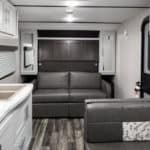
Betina Stratford
Why aren’t small, basic tent trailers available anymore? You used to have two choices. Hard top and soft top. Inside they were just a utility trailer-sized empty box to stand it, with a bed either side. That’s it. No built-ins, no seating (except on the edge of the bed), no sinks, stoves, etc. Just basically a tent on a raised base.
That’s all I want. Just a tent, but not on the ground, so that I don’t have to crawl on my knees (knees don’t work anymore). Why isn’t there a basic no-frills model available anymore. Why has everything gone so fancy and expensive?
My sentiments exactly! A tent off the ground! That’s all we need. Is there such a thing?
I second that! My only concern is, and the reason GOD created me for this era, is that I need A/C. I need a super light-weight camper with fridge and microwave to save as much money as possible to put towards our gas costs that are so insanely expensive now. Any recommendations? Does this pop-up camper exist?
Is there a pop up that a Kia Niro can tow?
The Kia Niro is not rated to tow any kind of trailer, including a pop-up camper. The Niro’s maximum towing capacity is 0 pounds, so it is not safe to tow anything behind it. If you are looking for a car that can tow a pop-up camper, you will need to look for a car with a higher towing capacity. Some popular cars that can tow pop-up campers include the Toyota RAV4, Honda CR-V, and Subaru Forester.
Project Manager
Yes, some Kia Niro models can pull trailers. But how much weight they can tow depends on the type of Niro you have. The regular ones can handle about 1,000 pounds, which is like a small trailer. If you have the electric version, it can pull less, usually around 0-500 pounds.
michael kycia
How come there are no replies to the above mentioned questions
I’m surprised the smaller Livin Lite Quicksilver 6.0 was not mentioned. It’s pretty much a “dry” pop-up with no water tanks. Also, the Sylvan Sport Go should be at the top of this list making it the lightest pop-up out there. It may not come with all the bells and whistles, but for those who actually enjoy the simplicity of camping without having to sleep on the ground, the Sylvan Sport Go would be my choice.
Leave a Comment Cancel reply
Your email address will not be published.
Save my name, email, and website in this browser for the next time I comment.
You Might Also Like
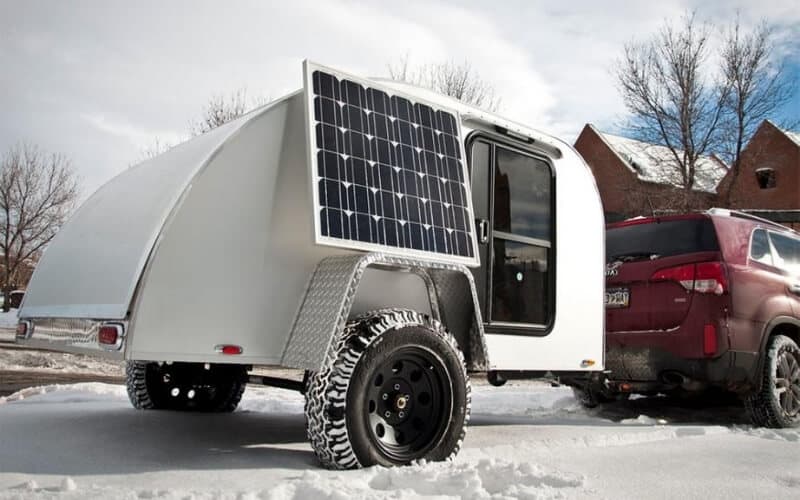
Teardrop Camper Prices: How Much Does A Teardrop Trailer Cost
![Best RV for Boondocking in [currentyear] for Off-Grid Travel Trailer Adventures 5 Best Boondocking Travel Trailers](https://www.rvingknowhow.com/wp-content/uploads/2021/10/Best-Boondocking-Travel-Trailers.jpg)
Best RV for Boondocking in 2024 for Off-Grid Travel Trailer Adventures
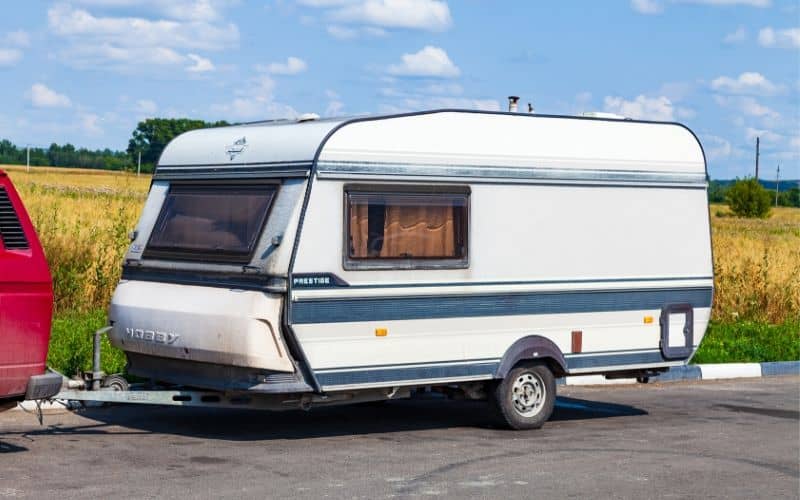
14 Best ultra lightweight travel trailers under 2000 pounds
Start typing and press Enter to search
Camping Trailer vs. Travel Trailer: Understanding the Differences
By TAXA Habitat Specialists \ April 21, 2023
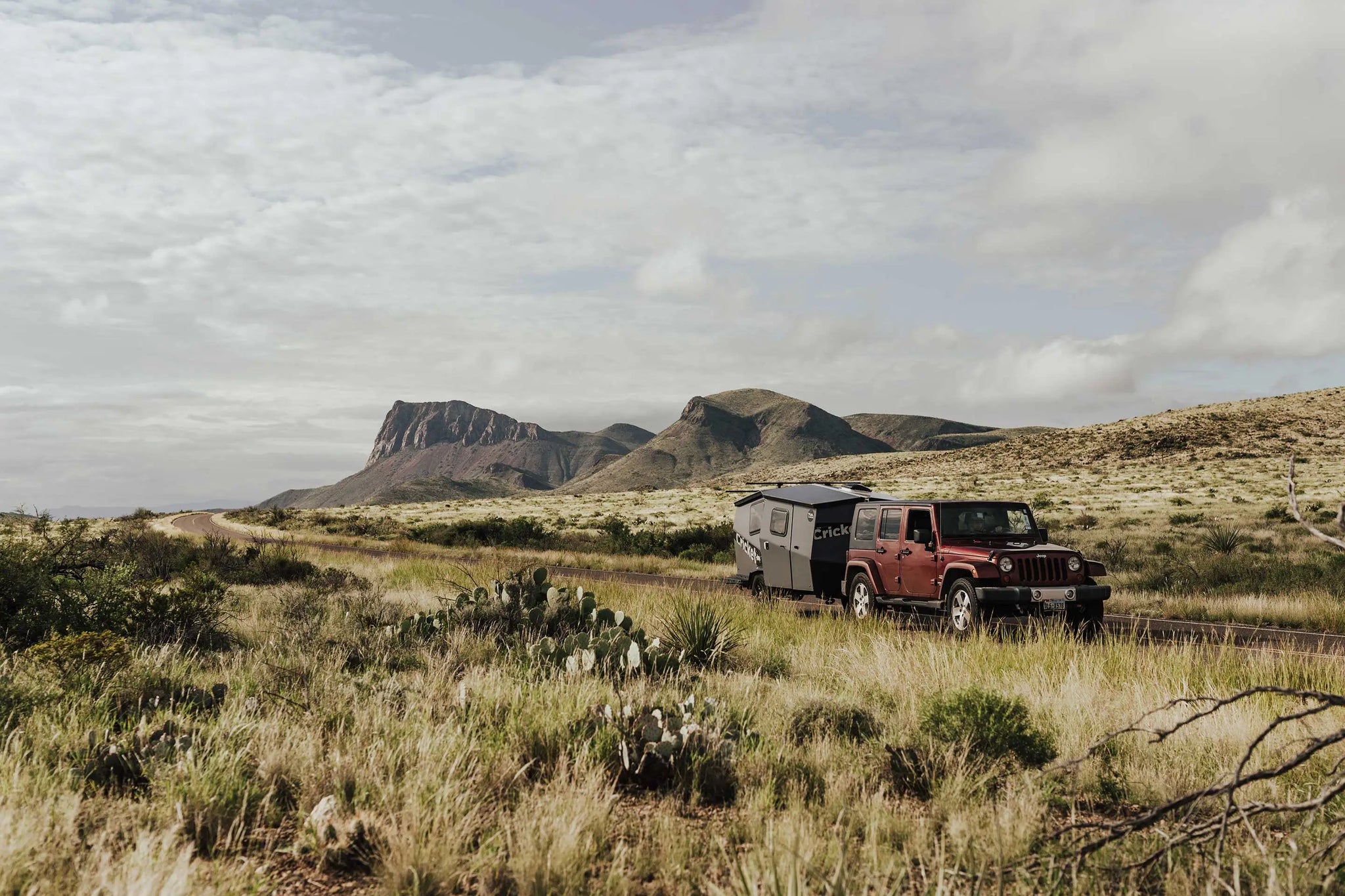
While some might call this a game of semantics, comparing the camping trailer and travel trailer categories might provide clarity when selecting a vehicle for your next adventure. The differences are subtle — but they do exist.
First, what is a trailer (vs. a motorhome)?
Before we look at the more specific differences between different types of trailers, what actually defines a trailer? The generally-accepted criteria for this is that they aren’t powered by an engine and aren’t self-propelled (and therefore “trail” a tow vehicle). This is different from motorhomes and RVs, which do have engines and can be driven on their own. However, trailers often have much more flexibility and can be more cost-efficient, which has resulted in a boom in popularity.
Camper vs. travel trailer
When we look at the trailer category, there are two primary terms you’ll see: Camping trailers (campers) and travel trailers. Engineers craft camping trailers specifically for the camping experience. Many trailers, regardless of naming specifics, possess the capability to drive on rough terrain, withstand harsh elements , and store belongings in tight spaces. However, camping trailers are uniquely crafted to excel at these tasks and are kings of efficiency and practicality. Many call camping trailers “adventure vehicles,” or as we at TAXA like to say, mobile human habitats purposefully designed to inspire the journey towards and into nature. These trailers engage with the natural world instead of running from it.
On the other hand, travel trailers are built with comfort and often luxury in mind. However, many require external hookups for things like water and electricity, as they’re expected to be used at established campsites with these in place. They are typically larger, with more amenities that lend themselves to someone living within the trailer for extended periods. This is in contrast to campers, where lots of time is spent outside and the trailer is primarily used for sleeping and eating, rather than the majority of your time.
Some would say there is some crossover territory between camping and travel trailers. However, in general, the intention of a travel trailer is to provide a living space that more closely resembles what you probably have back home. Rather than being immersed in the wild, the travel trailer serves up modern living in a mobile environment.
Feature differences
Camping Trailers: Typically smaller and lighter than travel trailers, campers also usually possess a more rugged build for camping terrain and adventures ( such as overlanding ). These trailers embrace the fact that many people camping may not have access to civilization (at least as they know it) while using them. Consequently, engineers design most camping trailers with solutions for electricity, water, and storage for days on end. In essence, camping trailers provide the necessities, oftentimes elegantly, but do not burden campers with luxury.
Travel Trailers: Rather than durability or efficiency, travel trailers pride themselves on convenience. Most require an RV hookup and take up more space than a camping trailer. Of course, these differences usually mean a more robust power system, more storage, and larger bedrooms. Many also possess well-equipped kitchens , living areas, and bathrooms. All of this extra space and comfort does come with an increased price tag, however.
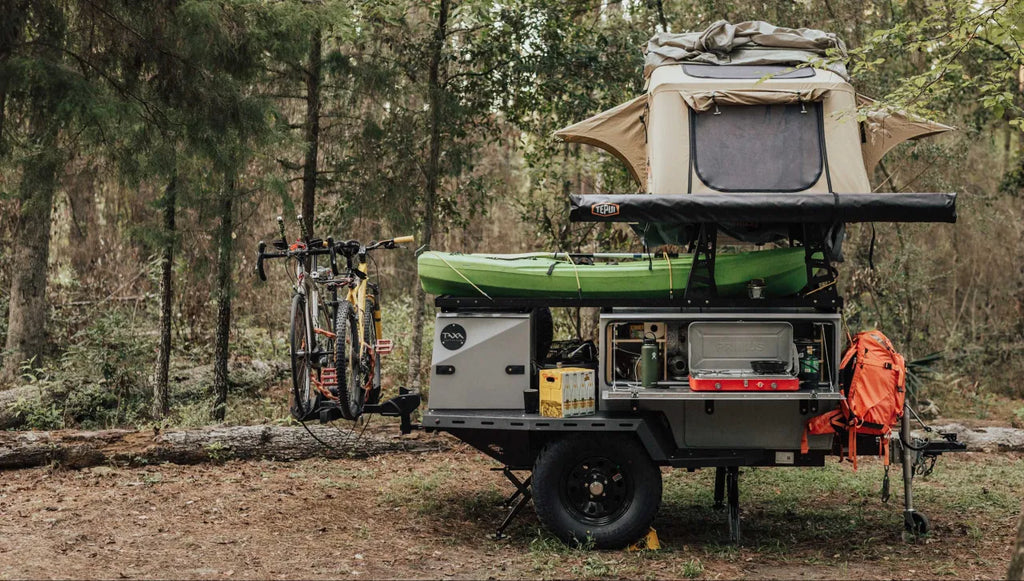
Other comparisons & differences
Travel trailers and campers aren’t the only types of similar vehicles that get confused. With all the slight variations and different names, it can be difficult to keep everything straight, so we’ve summarized a few more common comparisons below:
5th wheel vs. travel trailer
5th wheels are often a similar size to travel trailers (larger than campers and other smaller trailers), but the primary difference between these is in how they connect to the tow vehicle. Travel trailers connect via a bumper-level hitch, while 5th wheels connect to a hitch that is inside the bed of a truck. This means that 5th wheels can also only be towed by a pickup truck, not other vehicles that most other trailer categories can use .
Pop-up vs. travel trailer
On the other side of the spectrum from these larger trailers and RVs, pop-up campers are typically the smallest category of trailers. They have designs that collapse and “pop up” for storage and use. This means they can be towed by a wider variety of vehicles, but also have less storage and living space (unless you have a hybrid pop-up camper like our Mantis and Cricket habitats).
Toy hauler vs. travel trailer
As the name implies, a toy hauler’s primary purpose is to store and transport things like motorcycles, ATVs, jet skis, and more. While some have living space and amenities like a small kitchen, this is secondary to the function of storage. Because they can come in a wide range of shapes and sizes, this purpose is what sets them apart from travel trailers and campers.

Finding the perfect trailer for your adventures
To summarize, travel trailers insulate campers from the wild while camping trailers immerse them in it. Neither choice is right or wrong — however, comparing these two might shed some light on how each category fits what you’re looking for in your next vehicle.
At TAXA Outdoors, we provide adventure vehicles specifically for those wanting to journey into the outdoors. Our trailers can be important tools that enable survival and enjoyment while keeping the focus of your journey outwards.
Whether you’re looking to rent for a week or purchase for the long haul, TAXA Outdoors partners with an extensive network of high-quality dealers across the country. To connect with a dealer that can help find the perfect vehicle for you, use our Find a Dealer tool . Or, to find the right TAXA habitat for your journey, talk to one of our specialists who can point you in the right direction.
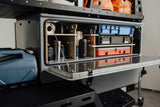

Pros And Cons Of Hybrid RV (Vs Travel Trailer)
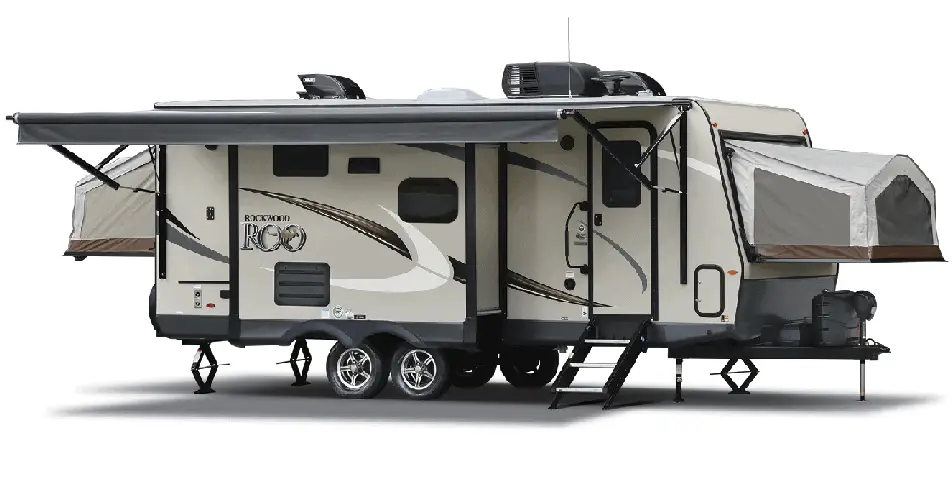
- BEGINNERS GUIDE
G. Yoganand
In this article, lets check advantages and disadvantages of hybrid RV. This will help in deciding whether you should buy them or not.
A hybrid RV takes a hard-sided travel trailer and adds pop-ups on either one or both ends to offer more sleeping room. Some models may even have more than 2 pop outs. Pop outs adds more sleeping capacity at reduced weight and also keeps the price down.
These campers are also known as expandable travel trailers.
Hybrid campers vs hard sided travel trailers
Compared to other travel trailers, a hybrid RV is lighter, more affordable, and can be towed by popular tow vehicles, including minivans and SUVs.
Most hybrid RVs have a length of about 13 to 25 feet . The best thing about these hybrid trailers is their average sleeping capacity of about 6 people . This means that you can go camping with your friends and family.
A hybrid travel trailer is a great alternative to a traditional or standard travel trailer . If you want an upgrade from your tent or pop-up, then a hybrid travel trailer is the perfect option for you.
Check out the following pros and cons of a hybrid RV to help you make the best camper buying decision.
Pros of Hybrid RV
1. Lightweight
One of the reasons to choose a hybrid RV over other campers in the market is their lightweight. Compared to traditional or standard travel trailers, hybrid RVs are lighter. When you go camping, you will need a lighter trailer to tow for conveniences.
Due to their lightweight, hybrid trailers are easier to tow than other trailers. They are compact when not in use. The additional parts that include bed sections do not add extra weight to the trailer.
Average weight of hybrid campers is between 2,000 to 5,000lbs. Most of them are less than 20 feet, which makes them lighter.
Because of their lightweight features, it becomes easy to store a hybrid trailer. You can easily store the trailer either at home or at the storage. This is a great advantage for people with limited indoor storage for their RV.
2. More Amenities and Storage
When choosing a travel trailer, one of the essential features is the amenities and storage that the RV provides. A travel trailer with more amenities ensures that you have everything you need to make your camping experience fun and comfortable. Different travel trailers come with various amenities.
For Hybrid RVs, they come with a lot of amenities that include expandable beds, bigger kitchens, a cooler to store perishable supplies. Additionally, these trailers come with more storage than other trailers to store your camping supplies, cooking supplies, food, and clothes.
With the many amenities and more storage space, hybrid trailers allow you to go camping for many days compared to other trailers since they enable you to carry much stuff. Moreover, with a hybrid RV, you are able to go camping with your friends and extended family since you have enough storage and amenities.
Some models also include bunkhouse or bunk beds. Added features like awning also help increase the camping area around the travel trailer. Getting special accessories can also help organize the interior in a better way.
Some model also have storage to transport bigger items. These models are called as hybrid camper toy hauler where in you can carry an ATV or bike.
3. Less Expensive
Hybrid travel trailers are known for their reasonable prices. They are less expensive than traditional travel models.
Most of the modern hybrid trailers cost less between $18,000 to 435,000. This makes it more affordable and popular among campers. Expect to pay higher if you want more luxury and modern amenities.
If you are on a budget, hybrid trailers are the ideal option for you. You will not only save on your cash but also you will get a trailer with a sleeping capacity of about 4 to 6 people and one that is lightweight.
Additionally, when buying a hybrid RV, you will find a variety of sizes available in the market at different prices so that you can pick the one that meets your budget. When buying a hybrid trailer, it is essential to note that their cost depends on the amenities and size.
4. Easy and Quick Set-Up
With hybrid RVs, you don’t have to worry about setting up the trailer when camping. You can easily set up the beds, kitchen, and other pop-outs in less than five minutes. This is especially for new models that are well designed for easy setup.
When you out there for camping, you will need a trailer that is not complicated. This is to ensure that you can be able to set it for sleeping, cooking, and when leaving the trailer during the day.
Additionally, after a long day of camping activities such as hiking, you will need a trailer that is easy to set up for the night. When buying a hybrid RV, it is always essential to understand how to set it up.
5. Best Camping Experience
Another reason to buy a hybrid RV is that it gives you the best camping experience. If you are a camping enthusiast, or you want to go camping for the first time, a hybrid RV will give you the best moments and experience. This is because they offer a tent-like experience when you are outdoors.
Hybrid trailers bring you close to nature. While camping, you will be able to experience the weather, watch the sunsets, and enjoy your camping activities. Hybrid trailers are designed with a zip down tents that allows you to see around the campsite and let in fresh air throughout your camping.
6. Easy Towing
If you have a small tow vehicle, you can still experience travel trailer camping through a hybrid RV. This is because they are lightweight and can be towed by any type of tow vehicle.
For other heavy-duty travel trailers, you will need a larger tow vehicle. Moreover, hybrid RVs are smaller in size compared to other travel trailers, which makes them easily towable by a small vehicle.
7. More Sleeping Capacity
If you plan to go camping with your friends and family, a hybrid trailer is the best option for you. This type of trailer allows more people to sleep than traditional travel trailers. The beds can be enlarged to accommodate more people.
Its not that these campers sleep only upto 6, you will find hybrid campers that sleep 6 or 8 and even 10. That’s the beauty with these pop out travel trailers. Based on how many people would be there, you need to choose the right floor plan.
8. Access to the Interior
With a hybrid trailer, you have complete access to the interior. You will be able to utilize the interior part of the trailer when traveling. This includes the storage space for storing your traveling gear and supplies.
Furthermore, with a hybrid trailer, it is not a must that you open up the track to pack your items. This is not possible with pop up campers and traditional trailers.
9. Complete Bathroom
A hybrid RV comes with all the luxuries of a bathroom. The bathroom of this trailer is separate from the shower, which is not the case with traditional trailers.
With a complete bathroom, it becomes easy to take a shower while you are out there away from your home.
Cons of Hybrid RV
Don’t be excited with all the pros that we saw. These campers do have some problems as well. Lets see all the issues with hybrid campers now .
1. Can get very Hot or Cold
One of the major cons of a hybrid RV is problems with extreme temperatures.
Hybrid camper can get really hot specially when you are parked directly under the sun. Since the pop out may not have strong insulation it will heat that region making it hard during harsh weather.
There are ways to make these campers stay cool. Like for example, using Pop up gizmos can help reduce the heat and also cold.
These trailer lacks better temperature and climate control features. The air conditioner will not work at high efficiency as the insulation isn’t great.
These issues are caused by the canvas, which prevents insulation on both the inside and outside temperatures.
When camping with a hybrid trailer during the cold weather, it can get very cold, especially at night, even with a furnace. The same case happens in the summer, where it gets very warm inside when the sun heats the tent.
This can be very uncomfortable, especially if you are spending a lot of time in the trailer or traveling with your pet.
Without proper temperature control, especially during the cold weather, condensation may occur, which leads to dampness and growth of mold and mildew. In most cases, the mattresses are affected when a trailer does not have temperature control.
Even though there are chances that the canvas wont do much in protecting the camper from such weather, these campers aren’t that bad. One can always try different things like putting on pop up gizmos to make it more comforting.
2. Less Privacy
These campers have reduced privacy as the portion of the camper that has tent or pop outs can be visible specially at night when the lights are on. Also, what you speak inside can be heard to certain extend. This is a point that hard sided travel trailers score over these campers.
This can be a limitation specially when you have kids or if you want more privacy in a crowded campground.
Another thing that affects you is when you see sun rays lighting the sleeping pop out area early in the morning. This can be very annoying specially when you are in no mood to wake up that early.
2. More Maintenance
Hybrid RVs require regular maintenance and repairs than pop-ups. The soft-sides are not strong and durable, and therefore, they are easily damaged by extreme temperatures.
This causes both the soft and hard sides to wear and tear with time, and this requires repairs and maintenance. Some maintenances and repairs can be costly since you will need professional services.
Additionally, as you continue camping with your hybrid trailer, leaks may occur between the expandable parts of the trailer. You will need to regularly inspect the trailer for such leaks and fix them as soon as you notice them.
Hybrid RVs do leak between the canvas and the hard side of the travel trailer. The rain and condensation can therefore annoy you with wet bed. This can become a major issue as the water damage is one of the biggest problems that starts all other issues like mold.
If you fail to fix these leaks, they will allow water to enter the interior of the trailer and cause damages. With a hybrid RV, you will be required to air out the mattresses to prevent dampness from condensation.
Most hybrid camper can last many years if proper care and maintenance is done from time to time.
3. Less Tank Space
Though hybrid RVs are compact, they have less tank space. This is to help them lightweight.
The size of the trailer is small when traveling before it’s expanded, and this reduces the space for the tank and storing camping items. Less tank space means that for a long trip, you will need to fill and empty the tanks, which can be tiring and uncomfortable.
On average hybrid trailers have a capacity between 30 to 60gal per tank. This can also limit you on the number of you on the trailer to limit water usage.
4. Can shake
Since hybrid trailers are lighter and have the shape of pop up portions, you will experience some movement, shaking, and bouncing. This is because of the beds that hang off at the ends of the camper, creating leverage.
As you travel, any movement on one bed causes the trailer to bounce, which can be irritating. You may also experience the movement at night when sleeping, which can interfere with your camping experience.
Hybrid RVs combine the benefits of traditional trailers and pop up campers to ensure you have the best camping experience. Despite the various benefits that come with these trailers, there are also some cons. When deciding on the best hybrid trailer for you, make sure it is the right option.
Are they Worth it?
Hybrid campers offer more sleeping capacity due to popouts. These campers are secure enough and also give you real camping experience at reasonable price. These reasons makes them worth a buy. Moreover, their lightweight design puts less pressure on towing vehicle’s mpg keeping the expenses low .
Hybrid campers offer more sleeping space, more features and comfort as compared to pop up campers. For this reason, they are also priced much higher than pop up campers. However, pop ups can fold to a much small box like structure which makes them easy to transport and store.
Because of the unique camping experience hybrid campers provide and due to their popularity, many manufacturers have hybrid campers in their lineup. The ones that are popular include forest river, Jayco, K-Z and Coleman.
Here are some of the best hybrid RVs you can consider .
- Forest River Rockwood Roo 24WS
- Palomino SolAire eXpandable : This is one of the biggest hybrid campers you can buy.
- Jayco Jay Feather hybrid travel trailer
- Keystone Bullet Crossfire
- K-Z Escape E180RBT
- Forest River Flagstaff Shamrock : This hybrid RV comes with 3 pop outs.
- Aerolite Hybrid Travel Trailers : This is one of the best lightweight hybrid campers
Possibility of bear breaking into a camper makes some of the campground only allow hard sided campers. Hybrid camper will have pop outs that a bear can break but would be very hard to tear. Overall it should be secure but even then you need to check with the campground if they have nay restriction with hybrid RVs.
You Might Also Like
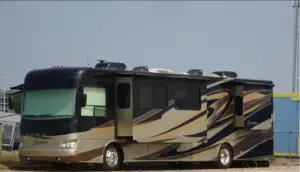
7 Most common RV Air conditioner problems and how to fix them
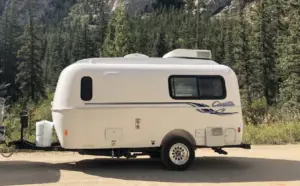
5 Easy Ways To Insulate a Fiberglass Camper
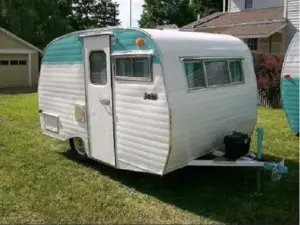
20 Best Ways to Decorate Travel Trailer
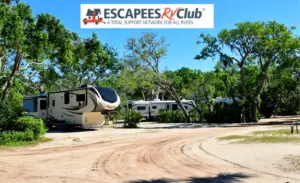
14 Reasons To Join Escapees RV Club (Review and Comparison)
FREE shipping over $99. Good Sam members: FREE shipping over $69. | Join Now
You are shopping
Find a Store
Don't have an account?
- Create Account
Enjoy the benefits of faster checkouts, easy order tracking and more
Need Help? (888)-626-7576

CAMP FOR LESS

RV & Outdoor Gear
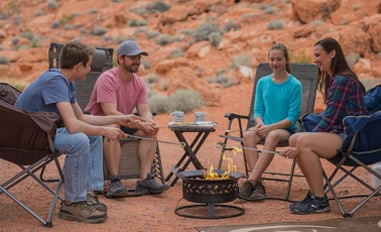
RV Maintenance & Repair
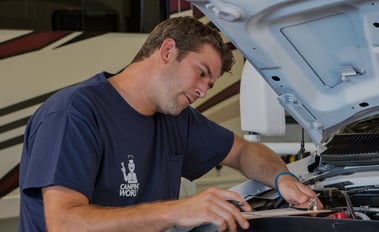
Good Sam Club & Services

Return Policy
We believe in offering the very best value, quality, and selection. Plus, we want you to enjoy your purchase! In the event you wish to send a product back to us, you may return most unused items for a refund or exchange, minus shipping, within 90 days from the date of purchase unless noted below under exceptions and exclusions. Refunds are issued to the original form of payment unless returned in-store where some exclusions may apply.
For web orders, please contact our customer service team (1-888-626-7576) to ensure your return or exchange is documented and any potential questions have been answered. In most cases, a return authorization will be provided, and, in every case, we’ll begin to keep an eye out for your return.
For web orders returned in-store, please take the item in original packaging, along with the invoice to any Camping World retail locations for a refund or exchange. Shipping charges are non-refundable. Refunds for web orders issued in-store are able to be refunded to a GIFT CARD or MAILED CHECK ONLY; some exclusions may apply.
For retail purchases returned with a receipt, please return the unused and unopened item, with the original sales receipt, for a full refund or exchange. All returns with a gift receipt will receive a store credit for the amount of the item at the time of purchase.
For retail purchases returned without a receipt, the refund will be issued as a store merchandise credit at the lowest price within the last 90 days. Proper ID will be required in the form of a valid, state-issued driver’s license or state ID card. We reserve the right to limit or refuse returns without a receipt.
Good Sam Members who have maintained a continuous active membership status may return any unused and unopened product, purchased on Feb. 9, 2018, or later at any time. Good Sam Club members must be active on the date of product purchase. (Some exclusions apply.)
For Good Sam Protection Plans, simply return any Good Sam Protection Plan purchase to the store for processing or give us a call at (1-888-626-7576) . Purchases paid for with a personal check are subject to a 14-day hold period prior to being eligible for return.
Exceptions & Exclusions
- Non-returnable items include outboard motors, trolling motors, EPIRBs, boats, SPOT, life rafts, PLBs, Class B AIS, items with expiration dates, custom-made/cut or special-order items, rigging, generators, electronic charts, mattresses, flares, hazardous items, licenses and gift cards. If proven defective, product returns or exchanges must be handled directly with the manufacturer.
- Items that can be returned within 30 days if unopened and unused are: electronics, skateboards, bikes, software, bedding, canoes, tents, drones and kayaks.
- After 30 days, defective product returns or exchanges must be handled directly with the manufacturer.
- Clearance and Outlet items are sold as is and cannot be returned at any time.
- Once an item is installed, we cannot accept a return or exchange. If the product becomes defective, product returns or exchanges must be handled directly with the manufacturer.
- Returns on items using a promotional discount - Any items returned as part of a promotional discount will be prorated and the value of the discount, free product, or gift card will be deducted from the reimbursement for items returned. Items received as part of a free gift promotion cannot be exchanged unless damaged or defective and for a direct replacement only. Gift cards cannot be exchanged for cash or applied to a previous purchase.
Remove Product?
Remove all products, missing points.
Please call our customer service department who can help get your points added.
8am - 11pm EST
Congratulations!
You have been enrolled in Good Sam Basic Membership! Start earning points today!
Confirm phone number
Please verify your phone number to sign up for Good Sam Basic Membership.
We ran into an issue.
Please try again and if you continue to have issues please call 800-700-1366 for assistance.
Your privacy is important to us. This website uses cookies to enhance user experience and to analyze performance and traffic on our website. By using this website, you acknowledge the real-time collection, storage, use, and disclosure of information on your device or provided by you (such as mouse movements and clicks). We may disclose such information about your use of our website with our social media, advertising and analytics partners. Visit our Privacy Policy and California Privacy Disclosure for more information on such sharing.
- Owner Login
- Dealer Login
Toy Haulers
- Fifth Wheels
Travel Trailers
- Destination Trailers
- Tent Campers
Helpful Tools
- Find A Dealer
- RV Definitions
- Our Company
- Owners Page
- Forest River Corporate Home
- Privacy Policy
- Terms of Use
- Accessibility
- Forest River Apparel
Explore Ibex
Home > Ibex > Ibex
- Find Your Local Dealer
- Contact Ibex
- Search Our Videos
- Local Dealers
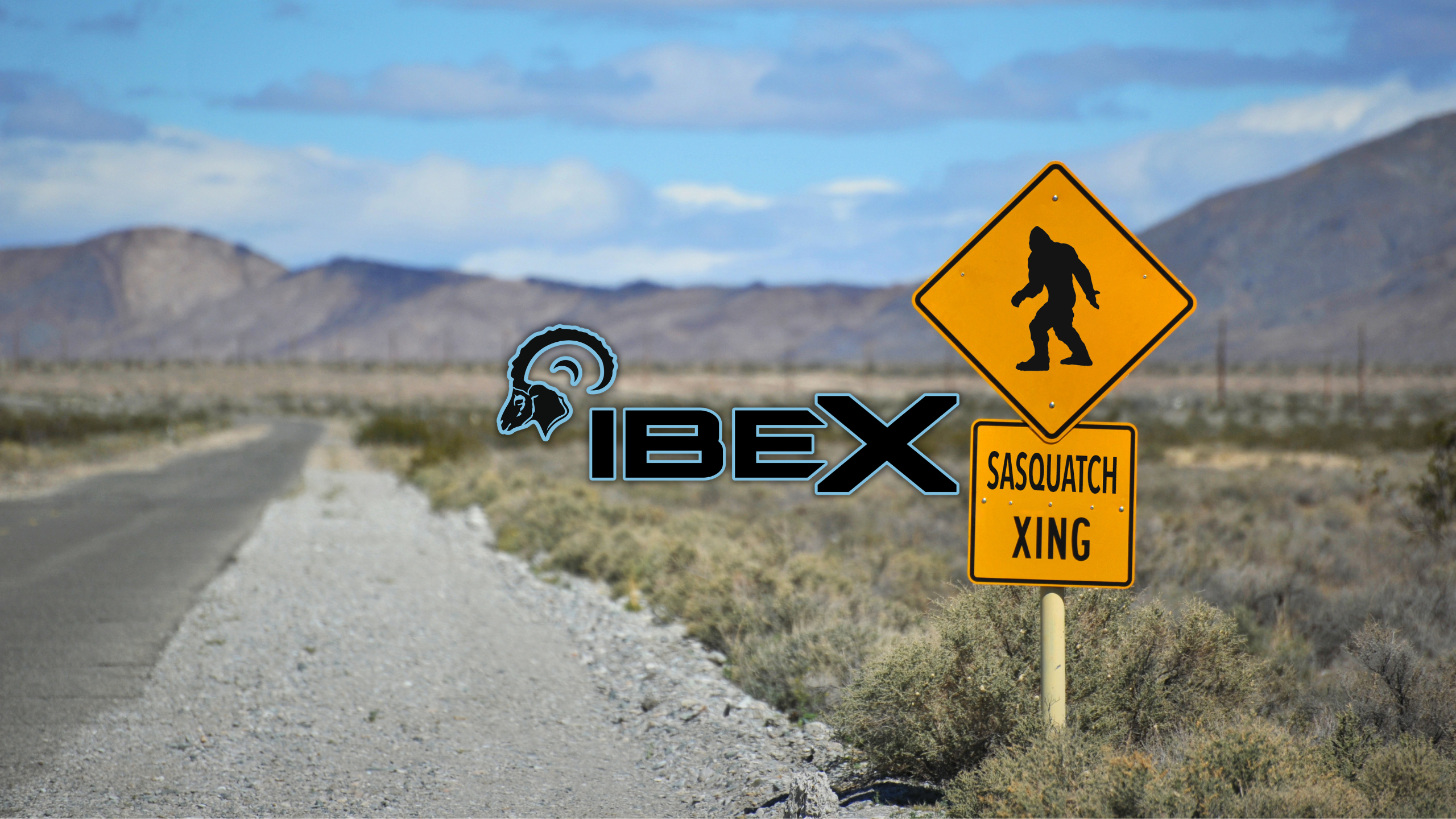
IBEX Travel Trailers
The IBEX lineup will feature eight floorplans: four are 7’ wide and weigh in at under 5,000 lbs., while four are 8’ wide and under 7,000 lbs. This focus on lighter-weight models makes the IBEX perfect for towing by SUVs and smaller trucks.
All IBEX models feature the following standard equipment and options: Azdel construction, Largest-In-Class Refrigerator on all floorplans, Solar system with large panel, controller, and 1000W inverter, Cold Weather Package: heated and enclosed underbelly, tank pad heaters, and enclosed termination system, 15K A/C, PVC roof with 15-year warranty, All terrain tires and increased ground clearance, JBL wireless Bluetooth audio system, Central vacuum system, 12V, 32” television, Rhino-Rack RTV tracks, Panoramic front window, Seamless countertops, Stainless steel appliances, and an Outside cooktop.
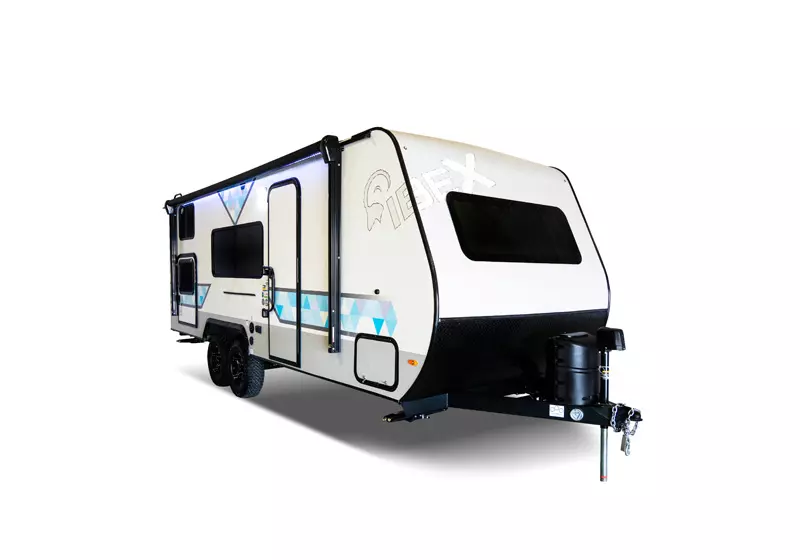
- The perfect trailer for us. We love the quality of the build, the style and the simplicity of the systems. With the Curt suspension, this trailer will happily go wherever our truck can pull it. - Dave B.
- The Ibex 19MBH has been the perfect camper for us!! Love the boon-docking capabilities!! - Lori D.
- We absolutely love our Ibex, from off-grid mountain hideaways to more accessible sites, this thing has it all. - Matthew J.
- My family has enjoyed more time together outside in nature without screen time! We grow closer and stronger an a unit with each trip! So glad to have the versatility and freedom of an Ibex! - Ethan W.
- We love of our Ibex 19QBS! We can pull off and camp anywhere! No power? No problem with the Ibex solar system keeping your batteries topped off. - Kenny D.
- We love our Ibex! The functionality and ease of towing is a winner. Floor plan is spot on-we love our Murphy bed and our growing teenagers can stretch out a bit more in this floor plan. We definitely don’t miss a slide! It’s so roomy! We’re looking forward to our next adventure! - Louise S.

2024 Ibex Floorplans

You must be logged in, or create an account to use the Forest River wish list.

Specifications Definitions
GAWR (Gross Axle Weight Rating) – is the maximum permissible weight, including cargo, fluids, optional equipment and accessories that can be safely supported by a combination of all axles.
UVW (Unloaded Vehicle Weight)* - is the typical weight of the unit as manufactured at the factory. It includes all weight at the unit’s axle(s) and tongue or pin and LP Gas. The UVW does not include cargo, fresh potable water, additional optional equipment or dealer installed accessories. *Estimated Average based on standard build optional equipment.
CCC (Cargo Carrying Capacity)** - is the amount of weight available for fresh potable water, cargo, additional optional equipment and accessories. CCC is equal to GVWR minus UVW. Available CCC should accommodate fresh potable water (8.3 lbs per gallon). Before filling the fresh water tank, empty the black and gray tanks to provide for more cargo capacity. **Estimated Average based on standard build optional equipment.
Each Forest River RV is weighed at the manufacturing facility prior to shipping. A label identifying the unloaded vehicle weight of the actual unit and the cargo carrying capacity is applied to every Forest River RV prior to leaving our facilities.
The load capacity of your unit is designated by weight, not by volume, so you cannot necessarily use all available space when loading your unit.
May Show Optional Features. Features and Options Subject to Change Without Notice.
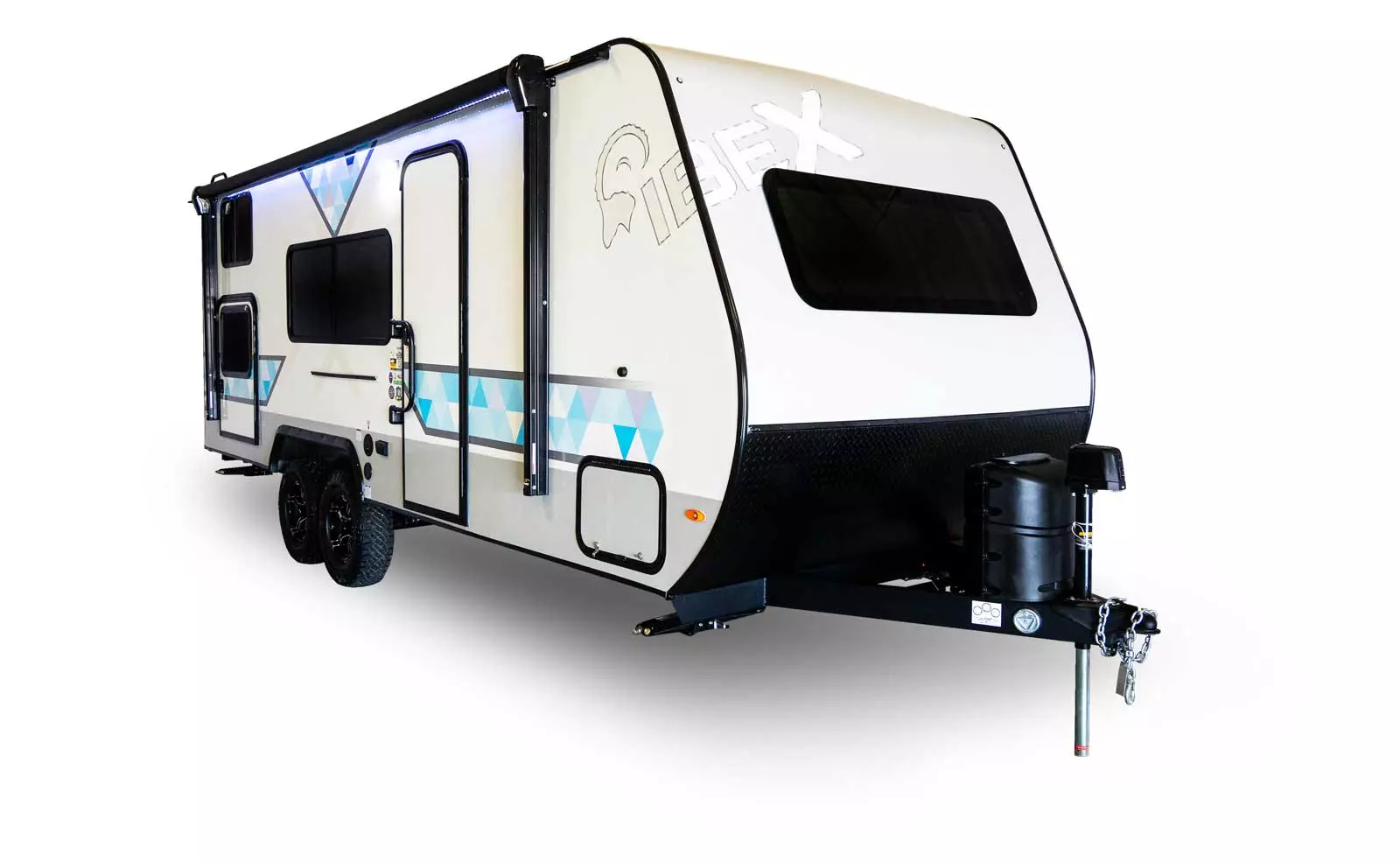
2024 Ibex Features & Options
Essentials only (eo) features & options.
- Azdel Exterior
- Aluminum Construction
- PVC Roofing Membrane
- Fully Enclosed Underbelly
- Gel Coat Fiberglass
- Dual 20 lb Propane Tanks
- 30 Amp Service
- Power Awning
- Friction Hinge Entry Door
- Convection Microwave
- Dry Fit Shower
- Large Refrigerator
- 30 Gallon Black Water, 40 Gallon Fresh/Gray
- Large Refrigerator & Water Heater
Little Horn Series Features & Options
- TST Tire Pressure Monitor System
- Solar On The Side
- Battery Disconnect Switch
- Bauer 7-Way Cord Keeper
- Detachable Power Cord
- Power Tongue Jack
- Roof Mounted RVT Tracks
- 270 Degree Batwing Awning
- Aluminum Rims W/ All-Terrain Tires
- Pet Leash Latch Connection
- Enclosed & Heated Underbelly
- Heated Tank Pads
- Freshwater Tank & Spray Port
- Large Outdoor Hose
- Large Rooftop Tent
- Curt Beast Mode Independent Suspension System
- All LED Lighting
- Best-In-Class A/C
- JBL FLIP 5 Speaker
- USB Charging Stations
- 15" Aluminum Rims w/ All-Terrain Tires
- Large Outdoor Cooking Accessories
19 & 20 Series Features & Options
- Panoramic Front Window
- MORryde Entry Step
- Black Tank Flush
- Friction Hinge Entrance Door
- LP Quick Connect
- 200W Solar Panel
- Aluminum Rims w/ All-Terrain Tires
- Large Folding Assist Grab Handle
- Enclosed Termination System
- Exterior Bush Kitchen
- Central Vacuum System
- Premium Accent Lighting
- Butcher Block Countertops
- 2000W Inverter
- 30 Amp Charge Controller
- Unplugged Package: Premium Lithium Ion Batteries, 3000W Inverter, Easyview Control Panel, 500W+ Solar Panels, & High Efficiency A/C, Where Applicable
- Tinted Windows
- Best-In-Class Refer
- Seamless Countertops
- Recessed Cooktop
- Morryde Entry Step
- Central Vacuum System (Where Applicable)
RV Suite Features & Options
- Aluminum Cage Construction
- 50 Amp Service
- Aluminum Wheels
- All-Terrain Tires
- Upgraded Sidewall Insulation
- Multi-Zone Heating
- Luxury Lavatory
- Shower Column w/ Jet Spray
- King Suite w/ Remote Work Area & Flex Space
- Multiple Charging Ports
- Premium Bluetooth Audio
- Dimmable Sunset Lighting
- Induction Cooktop
- Solid Surface Kitchen Countertops
- Washer/Dryer Combo
- Hitch Kitchen
- WFCO Artificial Intelligence
- Large Freshwater Capacity
- All Terrain Tires
- Tinted Frameless Windows
- Azdel & Aluminum Frame Construction
- Sliding Glass Entry Door
Beast Mode Package (N/A 10LHRK, 10LHG, 19BHEO, 23BHEO, RVS1, RVS2, RVS3)
- Updated Interior Color & Upholstery, Where Applicable
- Automotive Style Wrap
- TST Tire Pressure System
- Exterior Bush Kitchen, Where Applicable
Ibex Update Alerts
Please sign up below if you would like to receive notifications when we make updates to this brand. Or, if you only want updates on a particular floorplan, you can select to be updated on each one individually.
Get Update Alerts
Get update alerts for ibex, alert sections.
- Specifications
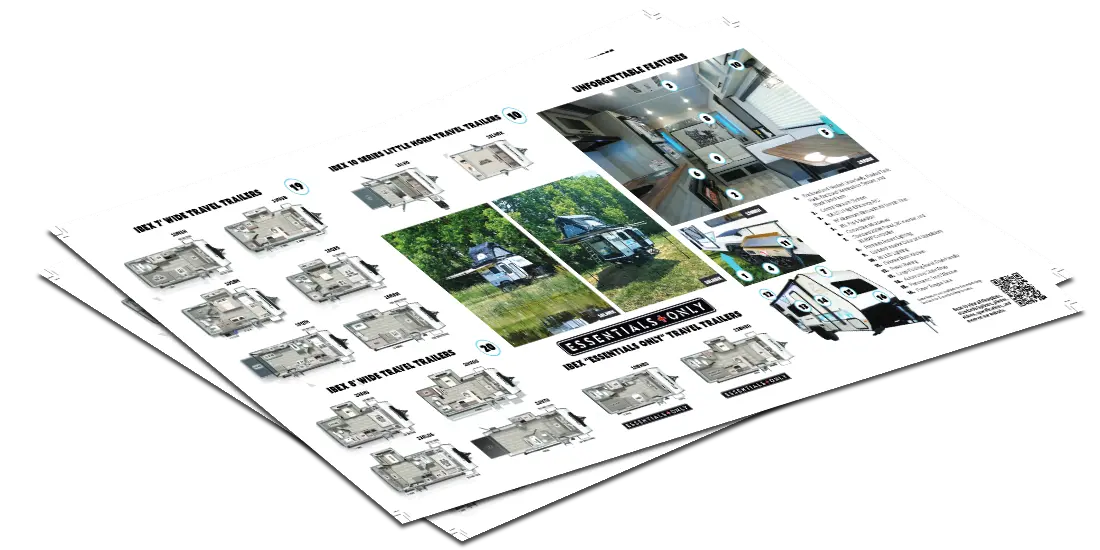
Ibex Brochure
English | French
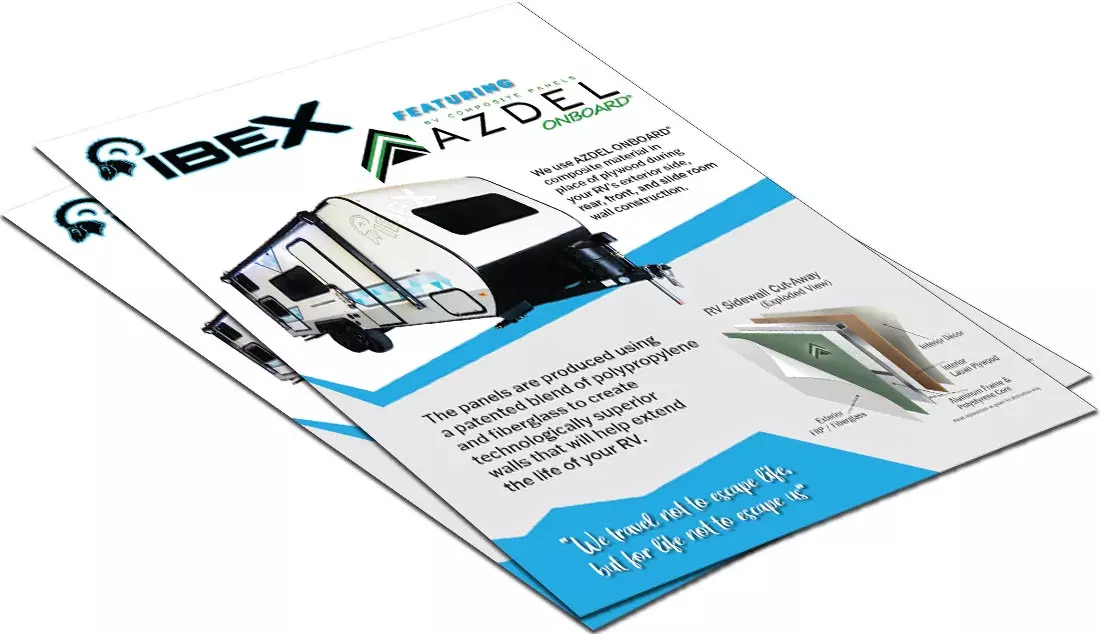
AZDEL ON BOARD FLYER
Please select your region.
Ibex has floorplans and standard features designed for the area where they are sold. Please select your region from the map below.

Somehow, Godzilla x Kong's Biggest Spoilers Weren't in the Trailers
The Skar King is in the trailers, but are there any other Titans?
It’s the ultimate marketing issue for a movie studio. You want people to see your new movie—so you tease something guaranteed to make them want to go. The problem is the filmmaker intended it to be a surprise . So, do you ruin the surprise in the trailers to ensure people go see the movie? Or do you save it so people who go have a better experience?
More often than not these days, studios choose the former. It’s the easier, safer move. But, for Godzilla x Kong: The New Empire , multiple major surprises were completely held out of trailers and director Adam Wingard was very happy about it.
“That was, initially, a conundrum for me because I know that some of the stuff we don’t show is some of our most impressive stuff from the movie,” the director told io9. “It’s exciting, though. I watch a lot of the reaction videos and stuff. And some people are like, ‘Oh, I’ve already seen the movie.’ It’s like, ‘No you haven’t seen the movie.’ And I think they’re going to be really pleasantly surprised when they realize, ‘Wow, the trailer seemed like it showed everything, but there’s so much left up its sleeve.’”
What specifically are we talking about? To reveal that, we have to get into spoilers.
Jia holding up the spoiler warning.
There are two large spoilers in the movie, both of which are Titans not revealed in the trailers. The first is Shimo, an ice titan created for the movie who is the slave of the Skar King—and then there’s the big one, Mothra, who arrives to defend the Iwi people and teams up with Kong and Godzilla.
Now, to be fair, Shimo is *briefly* teased in the trailers. We see its eyes through lava and Kong deflecting some of its ice. However, since it’s a creature created for this movie and not one of the famous Toho ones, showing it would’ve created more questions than excitement. “What monster is that?” fans would have asked. By keeping it out, it drove speculation and anticipation.
Mothra, though, is the one that surely created more problems. The iconic flying creature is one of Godzilla’s most famous friends, and foes, and a quick shot of her wings in the trailer would have spawned a ton of additional excitement. But there’s nothing. It’s so surprising Mothra in the movie, in fact, that when the scene happens where Jia starts to unlock her, I fully didn’t expect her to show up. But she does and adds a nice extra layer to the final battle.
Were you surprised by the reveals? Was it wise to keep them out of the trailers? Let us know below.
Godzilla x Kong: The New Empire is now in theaters.
Want more io9 news? Check out when to expect the latest Marvel , Star Wars , and Star Trek releases, what’s next for the DC Universe on film and TV , and everything you need to know about the future of Doctor Who .
For the latest news, Facebook , Twitter and Instagram .


Will There Be a Lopez vs Lopez Season 3 Release Date & Is It Coming Out?
By Abdul Azim Naushad
Fans are asking if Lopez vs Lopez has been renewed for Season 3 following the recent premiere of the second season. Lopez vs Lopez is a sitcom series that explores the relationship between a working-class old-school father and his modern Gen Z daughter.
Here’s all the Lopez vs Lopez Season 3 release date information we know so far, and all the details on when it is coming out.
Is there a Lopez vs Lopez Season 3 release date?
Lopez vs Lopez Season 3 does not have an official release date, but it will likely be announced in the future.
Since Lopez vs Lopez Season 2 has only just premiered on Peacock, it is too early to speculate as to whether a third season is happening. Moreover, there have not been any concrete reports or credible rumors suggesting a series renewal for a third season.
NBC is very likely waiting to see how the second season performs in terms of viewership and ratings before they decide on a renewal for a third season.
As such, updates about a third season will likely arrive on or after April 30, 2024, when all episodes have been aired.
The story of Lopez vs Lopez revolves around the relationship between working-class old-school father George and his daughter Mayan, who try to navigate their dysfunctional relationship and get acquainted after having been estranged during Mayan’s teenage years.
The cast of Lopez vs Lopez includes George Lopez , Mayan Lopez, Matt Shively, Brice Gonzalez, Selenis Leyva, Al Madrigal, Laci Mosley, Danny Trejo, and Melissa Fumero.
Where is Lopez vs Lopez Season 3 coming out?
Lopez vs Lopez could come out on NBC and Peacock.
This is because the first and second seasons of Lopez vs Lopez came out on NBC and Peacock .
The official synopsis for Lopez vs Lopez reads:
“The story of a working-class, old-school Latino father who moves in with his modern Gen Z daughter as they rebuild their dysfunctional relationship one argument at a time.”
LaKeith Stanfield Reacts to New Silver Surfer Julia Garner: ‘I Thought It Was Going to Be Me’
Hotel cocaine teaser trailer previews mgm+ crime thriller, exclusive ape x mecha-ape: new world order trailer previews the kaiju mockbuster, best seth rogen movies to watch on 420.
Abdul Naushad is a Contributing SEO Writer for ComingSoon. A Mass Comm graduate from Symbiosis University with a specialization in Audio-Visual communication, he finds himself rooting for Spider-Man or Batman in every battle. When he's not writing about SEO content, Abdul can be seen watching movies, aimlessly browsing YouTube and playing single player, story-driven video games.
Share article

Mr Selfridge Season 1 Streaming: Watch & Stream Online via Amazon Prime Video

LaKeith Stanfield Reacts to New Silver Surfer Julia Garner: ‘I Thought It Was Going to Be Me’

Dead Man (1995) Streaming: Watch & Stream Online via HBO Max
Marvel and dc.

The Fantastic Four Cast: MCU Movie Finds Silver Surfer Actress

Supergirl: Woman of Tomorrow Eyeing Dumb Money Director

Deadpool & Wolverine Release Date, Trailer, Cast & Plot

Dead Boy Detectives Streaming Release Date: When Is It Coming Out on Netflix?

Laid-Back Camp Season 3: How Many Episodes & When Do New Episodes Come Out?

Will There Be a Bartender Glass of God Season 2 Release Date & Is It Coming Out?

The Lost Symbol Season 1 Streaming: Watch & Stream Online via Peacock

IMAGES
VIDEO
COMMENTS
A tent trailer will often cost $10,000 less than a traditional trailer when purchased new. That's a huge amount of money, so be sure you have a good reason to pick a travel trailer when you could save a lot of money. Not only are tent trailers less expensive to buy, they are also significantly less money to insure because they have fewer ...
With a travel trailer, I can easily park, level, and connect utilities without much hassle. In contrast, setting up a tent often involves more labor-intensive tasks such as staking, erecting poles, and securing guy lines. Mobility. Another key advantage of choosing a travel trailer over a tent is its superior mobility.
Last Updated on February 19, 2024 by Grant. After roughly seven years of tent camping (four major road trips and several other shorter ones), we finally upgraded to a camper. We always figured we would get a travel trailer (which you pull) or a motor home (which you drive) eventually, but for a variety of reasons we ended up making the purchase a bit sooner than we expected.
If you're shopping on a budget you could easily keep it under $1,000. In comparison, even the cheapest new trailer is going to cost you over $10,000, probably closer to $20,000. You can save some money going with a used trailer, however, you will want to really do your research if you go that route.
Let's delve into the key differences that set campers and travel trailers apart, helping you make an informed decision when selecting the ideal RV for your adventures. 1. Design and Size: Campers: Campers are smaller and designed to be affixed to the bed of a pickup truck or towed by a smaller vehicle.
Tents. Camper Trailers. They are smaller in size. They are larger in size. They are less durable and do not include amenities. They are more durable and include amenities like a kitchen and washroom. A tent may require practice to pitch them. Trailers are already set up and don't need anyone to pitch them.
While they are significantly cheaper than a larger camper or "destination" trailer, they still can cost a pretty penny—at least, when compared to your average tent that costs a few hundred bucks. Most brand-new pop-up campers range from as little as $7,000 to over $20,000 for the larger, more lavishly equipped models.
Tent camping costs vs RV costs. Tent camping is usually the cheaper option. Good tents can be as cheap as $40 and primitive campsites without hook-ups are usually cheaper than spots for RVs. However, you'd be surprised at the deals you can find RVing. With platforms like Outdoorsy, renting a cushy RV is more affordable than ever before. If ...
The tent trailer is incredibly easy to store and takes up the least amount of space among all RV body types. Tent trailers are often bought as a first trailer for families, they are lightweight enough to be towed by virtually any car and can be found in many lengths with options such as hot water, refrigerator, air conditioning and washrooms.
The cost of a tent trailer will be at least $10,000 cheaper than a travel trailer when new. That's a large difference in the amount of money, so you'll have to make sure that a travel trailer is really worth it for you. We were able to get our pop-up camper used for a really good deal on Craigslist.
Tent campers that hate trailers and RVs are just jealous. Having a trailer or RV doesn't mean that you can't still sleep in a tent at night. In fact, many avid explorers will travel around in their camper and use it as a base camp. They leave the trailer behind to hike to campsites that are inaccessible to a trailer or RV.
It is also relatively affordable at a rough price of $2900. The interior is fairly spacious, and the tent itself is lightweight at only 130 pounds. Inside, the tent is 83 inches long by 49 inches wide, and there is a 7.5 ft ladder that attaches to the side of your car so that you can easily access the rooftop tent.
Also known as tent trailers, the pop-up trailer features collapsible canvas walls and pull-out bunks fitted on a lightweight trailer. The camper folds into a compact square unit when being transported, and is completely locked and secure. Like any other RV type, what you get in a pop-up camper just depends on the make and model.
The different types of travel trailers are: Classic Travel Trailers. Toy Haulers. Teardrop Trailers. Stand-up Trailers. Pop-up Trailers (aka Camper Trailers) Airstreams. Each of these individual types come with different amenities, floor plans, layouts, and dimensions. There are so many different companies and manufacturers as well, and this ...
Jayco Jay Sport Pop-Up Camping Trailer. Dry Weight of 1,875 lbs. Payload Capacity of 875 lbs. GVWR of 2,750 lbs. Hitch Weight of 225 lbs. Fresh Water Tank Capacity of 28.2 gallons. Sleeps up to 8 people. Jayco is known for being one of the strongest names in the RV industry.
Travel Trailers: Rather than durability or efficiency, travel trailers pride themselves on convenience. Most require an RV hookup and take up more space than a camping trailer. Of course, these differences usually mean a more robust power system, more storage, and larger bedrooms. Many also possess well-equipped kitchens, living areas, and ...
Black water tank: 18 gals. Base MSRP: $55,000. The Tribe Trailers Expedition 500 is a rugged and compact hard-side pop-up camping trailer with a long list of amenities and creature comforts. It ...
EMBRACING THE PINNACLE OF VERSATILITY. The Rockwood Hard Side Series emerges as a harmonious feeling of a travel trailer's exterior and the effortless towing convenience of a tent camper. Within this remarkable synthesis, every model features both an air conditioner and a furnace, ensuring your inner sanctum remains cozy, regardless of external ...
Camping trailers offer a more economical alternative to travel trailers and provide more features designed to make the camping experience more comfortable. While they may not be suitable for long-distance road trips, camping trailers are usually lighter and simpler than their travel trailer counterparts and can often fit in shorter camp sites ...
Pros of Hybrid RV. 1. Lightweight. One of the reasons to choose a hybrid RV over other campers in the market is their lightweight. Compared to traditional or standard travel trailers, hybrid RVs are lighter. When you go camping, you will need a lighter trailer to tow for conveniences.
OBi Campers is not a new name in the off-roading and camping industry and thanks to the quality of its trailers, enthusiasts love it. OBi Graveler is a new product that takes trailer tents to next level, with its rugged build and equipment, exceptional features, and onboard amenities. Like other folding campers, it looks sober on first look but ...
Viking travel trailers invites you to #CampEasy by getting out of that old tent and into a new travel trailer. Winner of the Quality Award in Q4 2021 and Q1 2023, we invite you to explore the NEW Viking travel trailer product line. Fall of 2022 marked a new era for us, as we launched the most diverse and largest product offering in the single ...
IBEX Travel Trailers. The IBEX lineup will feature eight floorplans: four are 7' wide and weigh in at under 5,000 lbs., while four are 8' wide and under 7,000 lbs. This focus on lighter-weight models makes the IBEX perfect for towing by SUVs and smaller trucks. All IBEX models feature the following standard equipment and options: Azdel ...
Mothra, though, is the one that surely created more problems. The iconic flying creature is one of Godzilla's most famous friends, and foes, and a quick shot of her wings in the trailer would ...
Lopez vs Lopez Season 3 does not have an official release date, but it will likely be announced in the future. Since Lopez vs Lopez Season 2 has only just premiered on Peacock, it is too early to ...
Square Enix has released two news trailer for SaGa Emerald Beyond. The first introduces Diva No. 5, one of the game's six protagonists, while the second acts as the game's "Final" trailer ...